
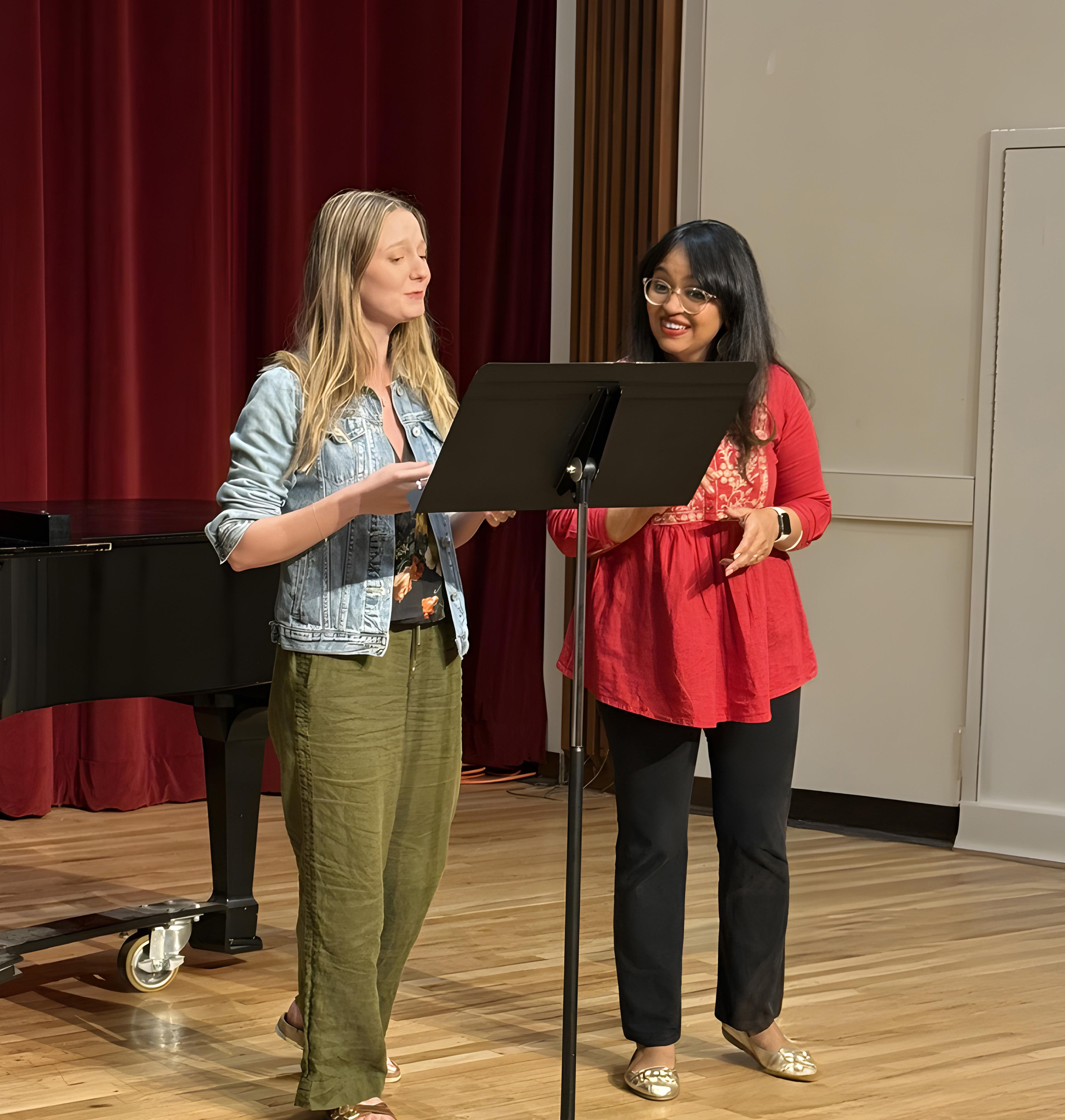



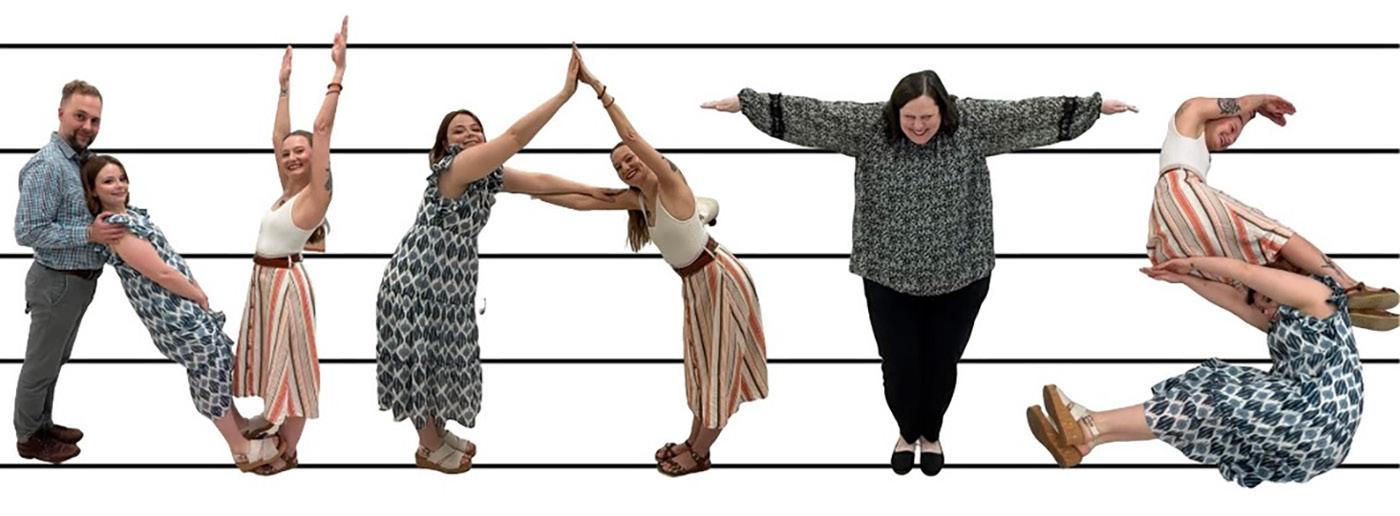
JANUARY 3–5, 2026
NEW YORK CITY
A progressive experience connecting how we hear and assess singing, develop mind-body awareness through vocal and physical exercises, and navigate diverse styles for authentic and versatile singing.

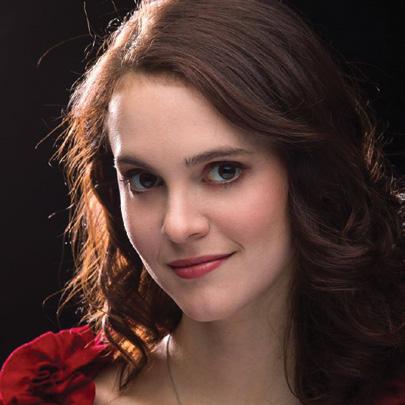
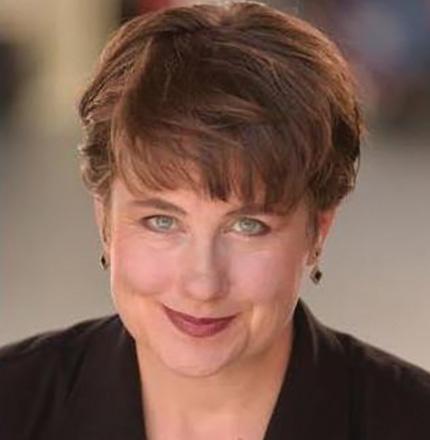

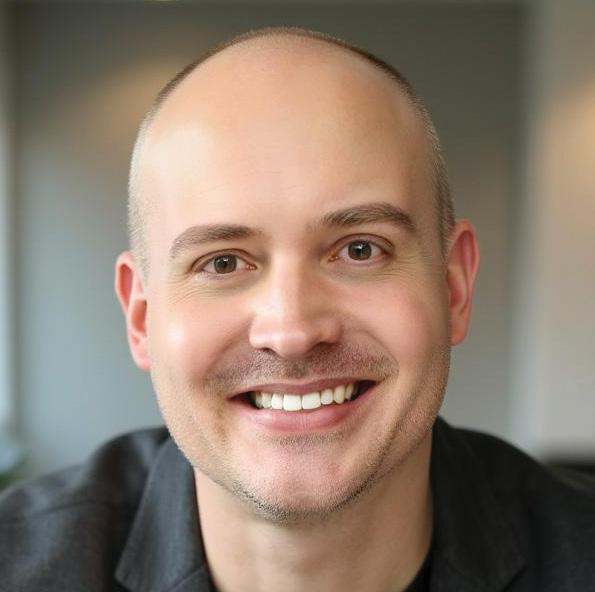
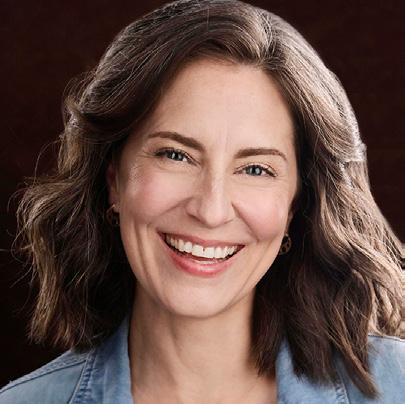

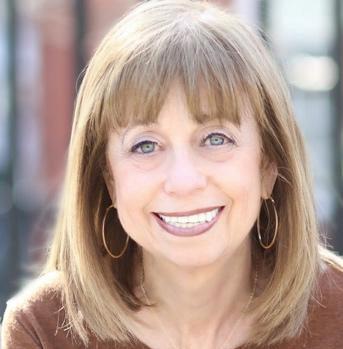
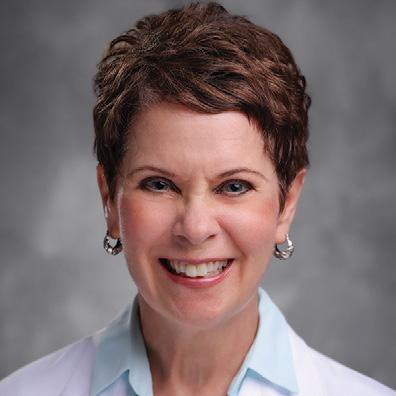




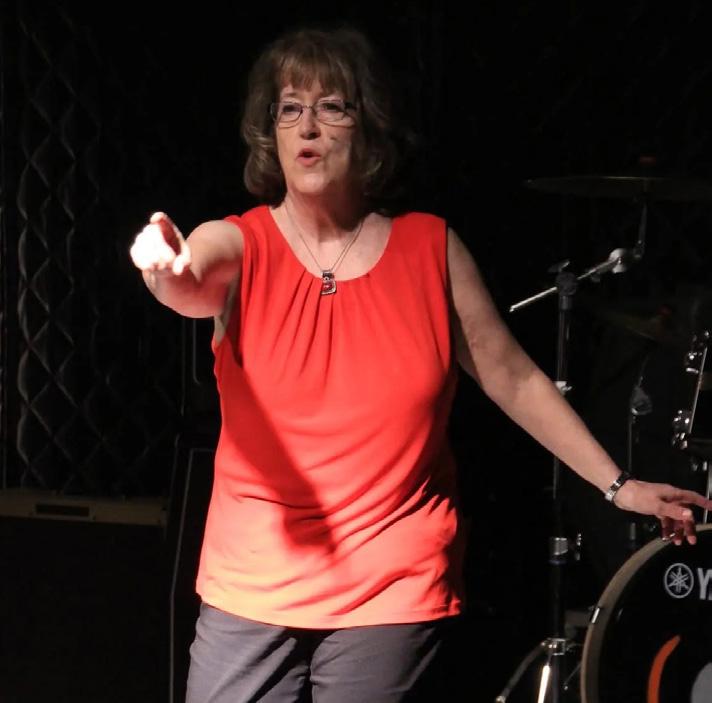
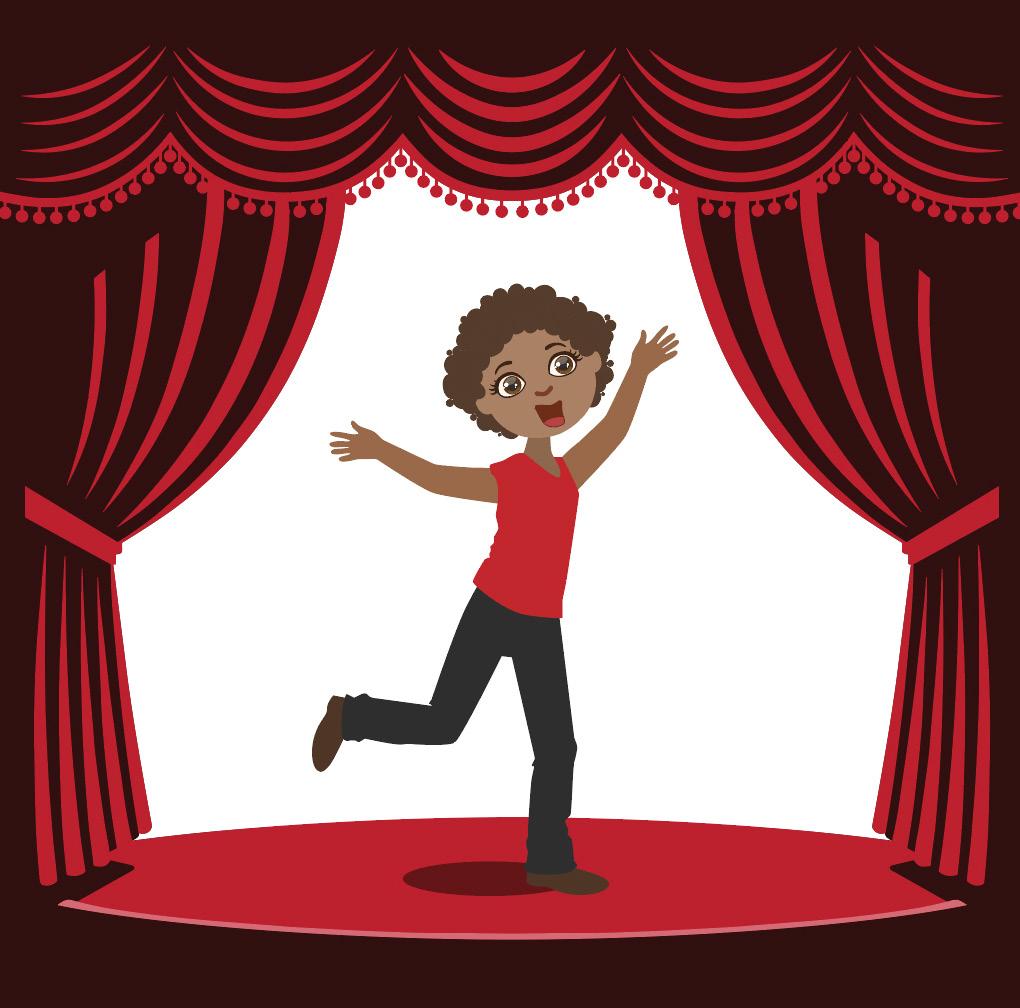
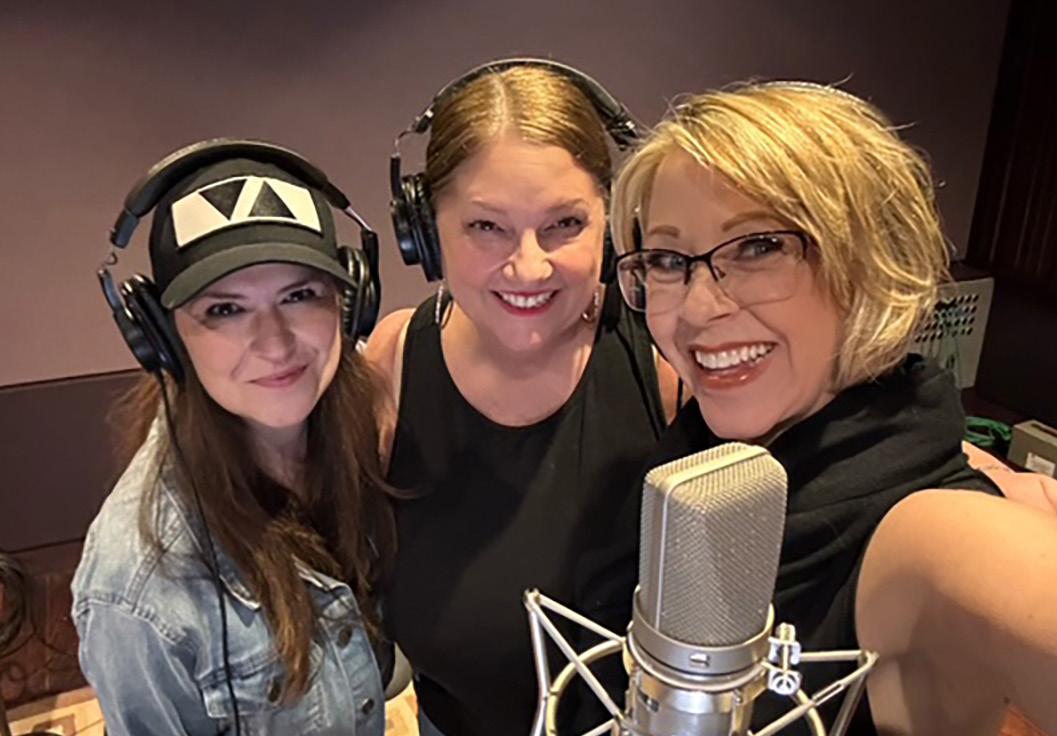
By Allen Henderson, NATS Executive Director
The time has come to pen my last Inter Nos column as executive director of NATS. I ruminated a lot in recent months about what to say in this final column. There are so many directions I could go after a total of 18 ½ years in this chair. Many of you have heard me speak over the years and expound upon the fact that in my very first voice lesson in college, Dr. Thomas Teague mentioned NATS to me. As a result, NATS has been within my consciousness since my entry into our wonderful profession; first as a student, then a young artist, and later a teacher and arts administrator — I grew up in NATS. It was due to being heard at a NATS audition my senior year that the entire trajectory of my life and career changed when I was encouraged to audition for and subsequently offered a graduate assistantship that supported my graduate studies and provided my first professional operatic gigs. When I made the important decision to pursue a teaching career, it was mentors I had met through NATS who were sounding boards and provided sage advice. Because of NATS I have been changed, for good.
As an early career teacher, I found the resources and programming NATS provided so important to my growth and development. I met leaders in our field who believed deeply in the mission of NATS, the sacredness of our profession, and the great responsibility entrusted to us when each individual enters our studio, classroom, or clinic. It was also where I heard debates about how our profession was expanding, should expand, or was not changing fast enough; how expanding knowledge and research about the voice was transforming our profession; how we can and should partner with our colleagues in science, medicine, and other fields to benefit our teaching and students; and how we should balance the artistic focus of teaching with scientific knowledge. As a result, my network of colleagues and mentors expanded and grew. I could call, write, or later email authors of articles and books I had read and because of our mutual connection in NATS, they responded. We connected and deepened those connections over time. If we only saw each other in person every few years, after a few
pleasantries we could easily move into deep conversation on a matter of mutual professional interest. Because of NATS, my professional network expanded for good.
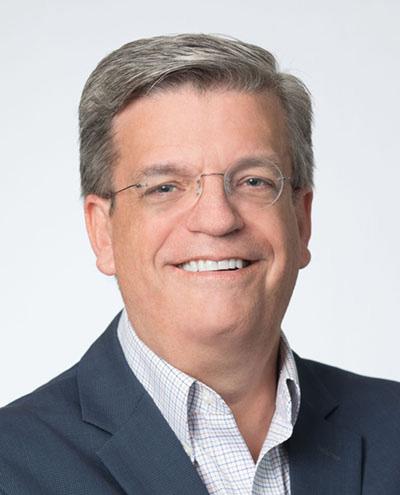
VOL. 58, NO. 2
PUBLISHER
Allen Henderson, Executive Director, allen@nats.org
EDITOR
Beth Buchanan, Marketing and Communications Manager beth@nats.org
My opportunity to begin serving within the NATS community began at the chapter level. I was later elected to national office as Secretary/ Treasurer. It was here that I truly began to understand the mission of NATS at a global level. The volunteer leadership that so many members devoted to NATS and the deep conversations that the Board of Directors engaged in expanded my view of the impact NATS was having on our profession and how its international impact was growing. I was in the right place at the right time when President Martha Randall asked if I would step in as interim executive director for a year after an unexpected staff resignation. After a year, many issues had been resolved, the organization was running smoothly, and the board asked me to continue permanently. The opportunity for me to use my entire skillset in service of my broader profession has been rewarding and fulfilling. The opportunities to celebrate and mourn with colleagues, to walk with them in difficult professional circumstances because they reached out for advice and support, and to connect people who I realized needed to know one another because they had similar interests will remain cherished memories for me. Because of NATS, my opportunity to serve has changed me for good.
Allen Henderson NATS Executive Director
For sure there have been difficult times as well, we all remember COVID, but a deep bench of leaders in our profession have always been on hand for sage advice as sounding boards, idea generators, and problem solvers. So much of what we do today as an association is due to the many leaders who have served NATS, inspiring us all to do better and be better as professionals and humans. We certainly could not be successful as an association without a
INDEPENDENT TEACHER
ASSOCIATE EDITOR
Cynthia Vaughn, cynthiavaughn@icloud.com
ADVERTISING TEAM advertising@nats.org
DESIGN
Regina Troyer, Carter Publishing Studio
inter nos is the official newsletter of the National Association of Teachers of Singing. It is published two times per year (spring and fall) for all NATS members.
team of dedicated staff members whose professionalism and support for our work helps us all advance in our careers. Our current team of Tina, Heather, Kelly, Jen, Beth, Mark, Karen, and Lindsay Kate all have a heart for NATS and care deeply for our mission and each and every member. Because of dedicated volunteer leaders and staff at NATS, I have been changed for good.
I certainly would not have been successful in many endeavors without the support and advice of my wife Ann, a trusted confidante and advisor for 40-plus years, and my children. They have often been present at various NATS events throughout the years and have also developed friendships with members who have followed our children’s growth through high school and college, and their entry into their professions as “productive members of society” as I like to say. They were instrumental in encouraging other members to bring their children to NATS events and have friendships they continue to maintain with a few children of members they have met over the years.
As I return to the status of professional member of NATS on January 1, 2026, I leave you with some of the lyrics from the song which inspired the title of my column, a pivotal song from Wicked.
“I do believe I have been changed for the better
And because I knew you… I have been changed for good.”
In fact, if the mission and vision of NATS could be boiled down to the fewest words possible, in my opinion, it would be — for good
The National Association of Teachers of Singing invites you to submit abstracts for poster paper presentations at the 59th NATS National Conference, July 3–7, 2026, in San Antonio, Texas. Topics may include: ◾ Voice Pedagogy ◾ Voice Science ◾ The Private Studio ◾ Technology and Teaching
Commercial Styles
Musicological Studies
…or any other topic related to the art and science of singing and teaching singing.
Abstracts should not Exceed 500 words and should be completed through the NATS.org portal. Only electronic submissions will be considered.
By Cynthia Vaughn, Associate Editor for Independent Voices
This will be my final issue as associate editor of “Independent Voices” for NATS Inter Nos. For the past 10 years, since fall 2016, I have edited or written 94 articles and columns by and for independent voice teachers. (Yes, I counted!)
I firmly believe that if we have been given opportunities to lead and create, at a certain point we are obligated to share that opportunity — to pay it forward, to step aside and let someone else to take our place.
I am so grateful for all of the independent NATS members who have submitted articles on a wide-range of topics including mentoring, virtual recitals, connection, mindfulness, teaching children, teaching senior adults, vocal health, composer collaborations, memory care choirs, semi-private and group lessons, piano skills for singers, naming your studio, diversity and inclusion, complementary modalities, transitions (from academia to independent, from big city to small city, from teaching to a career change, from full studio to retirement), social media, virtual assistants, studio management, boundaries, pets in the studio, singers’ health and more.
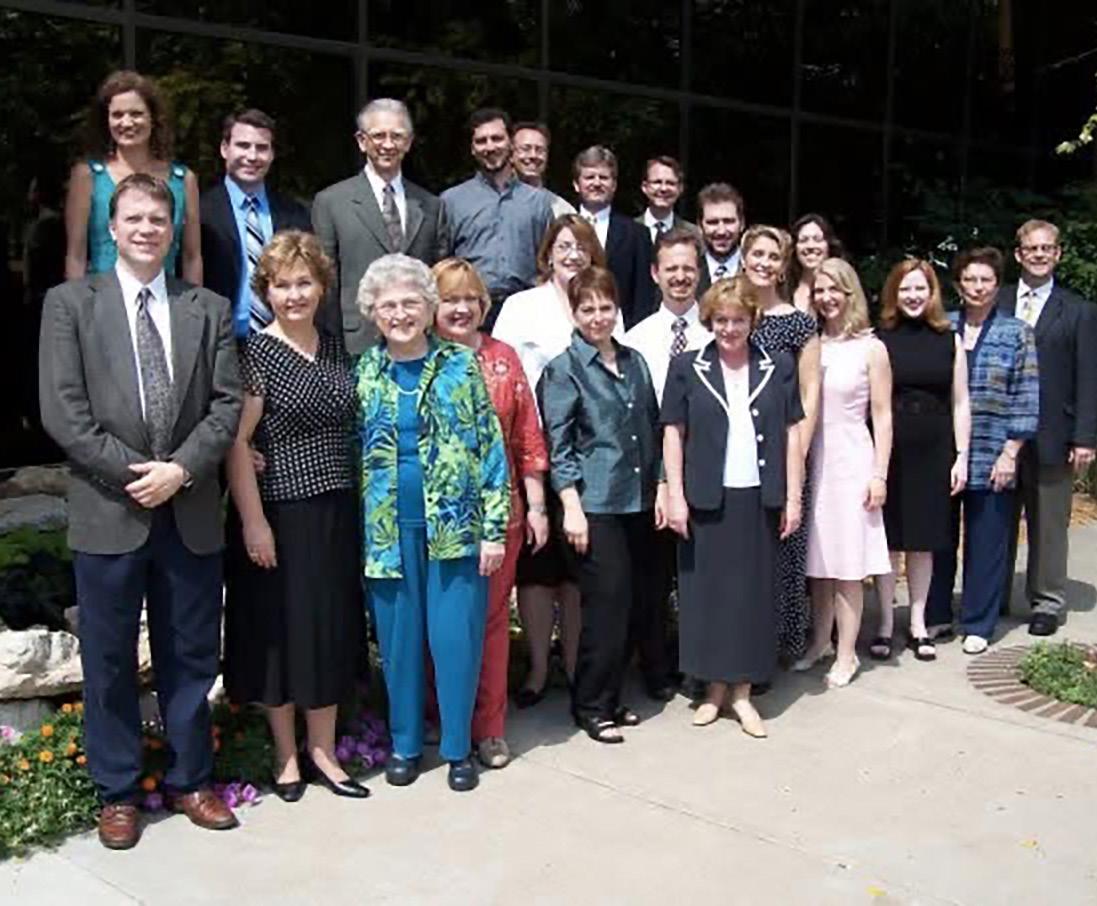
I firmly believe that if we have been given opportunities to lead and create, at a certain point we are obligated to share that opportunity — to pay it forward, to step aside and let someone else to take our place. A life-changing moment for me happened in 2006 while I was the vocal literature coordinator and publishers’ liaison for the NATS Intern Program at University of Missouri, Kansas City. One of the guest speakers was a UMKC dean who encouraged the interns and faculty to “pay it forward.” He told us to hold lightly to esteem, honors and hierarchy, to thank those who have helped us up the career ladder, and, most importantly, to use our power, privilege, and place to help others achieve their own. I was so inspired by his speech, that during the Q&A period at the end, I raised my hand and said,
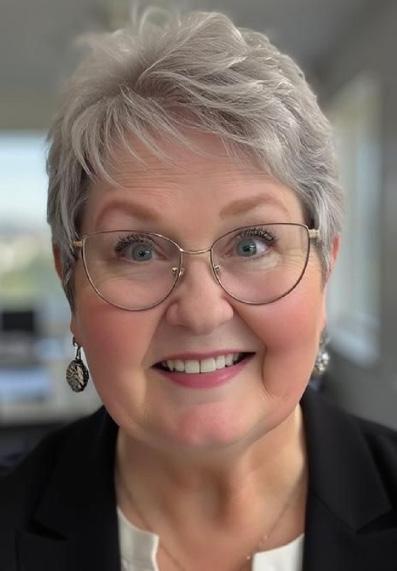
Cynthia Vaughn Associate Editor for Inter Nos CynthiaVaughn@icloud.com
“Several years ago, I started something called NATS Chats as a way to connect members online to discuss voice-related topics. I would like to step aside and offer the opportunity to host NATS Chat to anyone in this group of NATS Interns. You are the future of our organization. Who will take this opportunity?”
Matthew Hoch, one of the 2006 NATS Interns raised his hand almost immediately. “I’ll do it!” Matthew (who would become a lifelong friend and my book editor 20 years in the future!) became the new volunteer host of NATS Chats, adding his own innovations. A few years later he passed that opportunity on to Kari Ragan, the outstanding current host who reaches hundreds of voice teachers each episode. NATS Chats had started very small as an offshoot to the VocaList listserv in the 1990s, expanded to a designated America Online chatroom using dial-up internet, and finally as a dedicated audio-video interview format available live and recorded.
Fast forward to 2012, my final year as vocal literature coordinator and publishers’ liaison for the NATS Intern Program, a volunteer position that Roy Delp had offered me beginning in 2005. Over the years, I had been keeping my eyes out for a NATS Intern who would be ideal as the next vocal literature coordinator, someone who was just as nerdy about vocal literature as I was and who would take on the huge task of reaching out to publishers to request donations of music for the interns, as well as preparing
and presenting interactive vocal literature sessions for the interns and faculty. I found my successor at the 2011 NATS Intern Program that took place at University of WisconsinEau Claire. Tana Field and I talked for hours about favorite vocal repertoire, composers, and new publications, and when I asked if she might be interested in serving as the next NATS Intern Program vocal literature coordinator, she immediately said, “Yes!” Not, “Let me think about it” or “I’m too busy” or “What does it pay?” (PS: It pays nothing. It’s a volunteer position.) I highly recommended Tana Field to NATS leadership and Tana took over the role as NATS Intern Program vocal literature coordinator and publishers’ liaison in 2013. She currently continues in this important role and is doing an amazing job.
There are two things necessary to pay forward a volunteer leadership role: someone to let go and someone to say “Yes. I’ll do it!”
In 2016, I was on the receiving end of such generosity. Nancy Bos, associate editor for “Independent Voices” for NATS Inter Nos, recommended me as her successor. I had contributed a few articles for “Independent Voices” at Nancy’s request during her editorship, and she knew I was an experienced author and editor. At that time I had co-authored three editions (now four) of “The Singing Book” group-voice textbook/song anthology with Meribeth Dayme. I had previously been a paid assistant editor and writer for Classical Singer Magazine. I had left academia to found and direct a multi-teacher community music school, Magnolia Music Studio.
There are two things necessary to pay forward a volunteer leadership role: someone to let go and someone to say, “Yes, I’ll do it!”
Nancy could have assumed I was too busy or not interested in an unpaid editorship. Instead, she recommended me to the NATS leadership, and I received a phone call from the executive director, Allen Henderson. After our lengthy conversation, I said, “Yes. I’ll do it.” I had a caveat. “I’d like the “Independent Voices” articles to be available in the public area of the NATS website (not behind the member pay-wall) so that they can be freely shared by the writers and even be a recruiting tool for new independent NATS members. “I’m pretty sure we can do that.” Thanks to that conversation and the NATS tech wizards, you can now read all of the issues of Independent Voices from 2014 (when the publication went digital) to present in the public area of the NATS website.
Side note: I had nearly forgotten that I had already written for Inter Nos! In the 1990s when Julie Fortney was editor of the print version of the Inter Nos member “newsletter” she had invited me to author a new column called “Currents.” It was a play on words — all about current trends in voice teaching and an introduction to the internet for voice teachers. Now, 35 years later, information technology and artificial intelligence is so common that I can barely remember when the “world wide web” was a new thing.
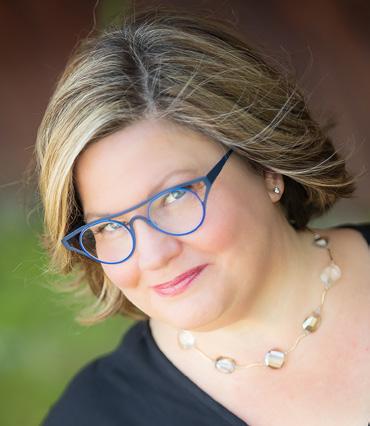
Now it is 2025, and I am ready to pay it forward. Last year I told NATS leadership that I was thinking about stepping down after the fall 2025 issue. I recommended my successor and NATS began the vetting process a few months ago, which included submitted materials, writing samples, and an interview. I am thrilled to announce that beginning with the spring 2026 edition of NATS Inter Nos, the new associate editor for “Independent Voices” will be Deborah Conquest.
Deborah is already familiar to Inter Nos readers as she has contributed past articles and referred other writers to “Independent Voices.” She is an accomplished voice teacher, performer, and writer based in Rochester, New York. Deborah runs an independent voice studio — Conquest Voice Studio — where she trains singing actors worldwide. She is a longtime NATS member, recipient of a Joan Boytim Independent Teacher Award, and proud alumnus of the Cincinnati College-Conservatory of Music and SUNY Fredonia. Deborah loves hiking, rockabilly tunes, competitive powerlifting, house plants, and chocolate cake — not necessarily in that order. Lately, she’s been exploring the visual arts — mostly pretending she can paint — and aspires to write her memoirs entirely in haiku. Deborah shares insights and inspiration on her blog at conquestvoicestudio.com. Fun fact: she started her career as the “Ivory Snow Baby” and became a SAG-AFTRA union member at the age of six months.
This fall 2025 issue of “Independent Voices” is one of the best, jam-packed with great articles from esteemed colleagues on a wide variety of topics: Jessica Fielder shares some great strategies and resources for guiding teen students to choose musical theatre songs. David Sisco writes an insightful article about what teachers can do when students “ghost” us and don’t return to lessons. (Hint: try not to take it personally.) Karen Michaels reminds us that you don’t have to limit yourself to one traditional niche — you can lean into being a “multi-hyphenate,” embracing all of your creativity. Learn why Kim Lamoureux swears that she will never give another
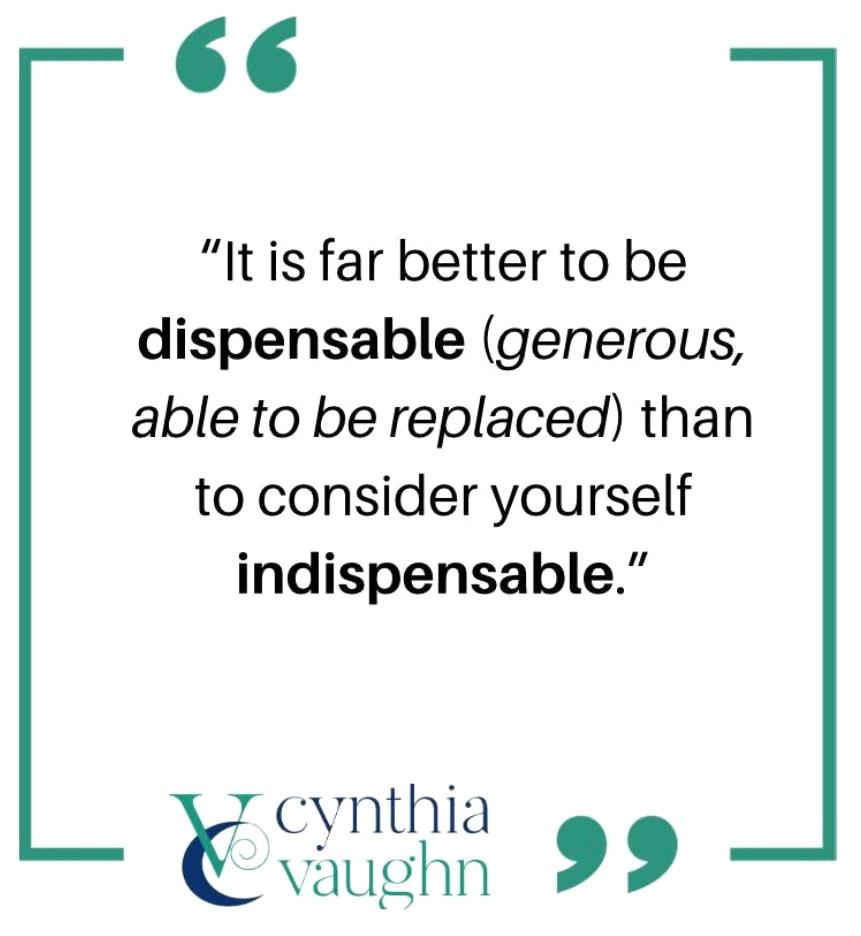
traditional student recital. Megan Durham and Christina Kent encourage teachers to give our students a safe place to fall, to unlearn their perfectionism and ours. And finally, John Seesholtz, co-founder of The Canciones Project, writes a personal and powerful essay about overcoming imposter syndrome and finding his true authentic voice and work.

I hope that you, too, will be inspired to explore your own thoughts about independent studio teaching and to submit an “Independent Voices” article to associate editor Deborah Conquest for consideration for the spring 2026 issue. The deadline is January 15, 2026. In the meantime, I’ll still be around! Look for me in-person at NATS chapter, region, and national workshops, as well as auditions and conferences. You can also find me on Substack (Singing in the Key of Me), Facebook, and my website CynthiaVaughn.com
Cynthia Vaughn, associate editor for NATS Inter Nos “Independent Voices” fall 2016 to fall 2025 has been a proud NATS member and independent teacher since 1983. She has been active in NATS leadership at the chapter and region levels, and was an invited master teacher for the 2020 NATS Intern Program (postponed to 2021 due to COVID). Before moving to Norfolk, Virginia, in 2022, Vaughn retired from Magnolia Music Studio, the multi-teacher studio she founded and directed in Colorado and Washington from 2008 to 2022. In addition to her independent studios, Vaughn previously taught voice at Colorado State University, Cedarville College, and Art Connects International. Publications include The Singing Book group-voice textbook and song anthology with co-author Meribeth Dayme. The new 2024 fourth edition with editor Matthew Hoch is available from Bloomsbury Publishing/ NATS Books (formerly Rowman & Littlefield).
Spring deadline: July 15 Fall deadline: January 15
• Current independent member of NATS (not teaching primarily at a university): Professional/Emerging Professional/Pre-Professional, Emeritus
• 1,000 to 2,500 words
• Preferably written in “first person”
• Any topic that is relevant to independent voice studio teachers, collaborative pianists, choral directors…
• Attach as Word doc or Mac Pages, standard font (Times New Roman, Arial, Helvetica)
• Include 100-word or less author bio at the bottom of the document. (See bio examples in past articles.)
• Photos: required high resolution headshot (jpg) and optional additional photos (jpg) related to the article. Important: Do not imbed photos into the document. Send as separate attachments.
Email to Independent Voices Associate Editor Deborah Conquest at internos@nats.org
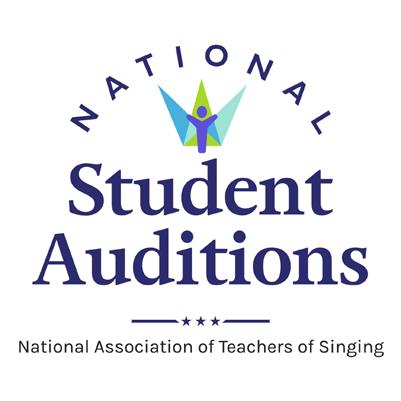
NATS celebrated an exciting 2025 National Student Auditions this summer, awarding more than $89,000 in prizes. The event welcomed 459 student singers to Temple University in Philadelphia as part of the first-ever NATS AuditionCon. Students advanced through multiple levels to compete in 38 categories spanning classical, American Negro Spirituals, musical theatre, and commercial music. The 2025-26 NSA cycle has already begun in some regions, and will culminate with the semifinals and final rounds in San Antonio next July 2026 as part of the NATS 59th national conference. Read more
Ten art song composers will serve as mentors for the NATS Mentoring Program for Composers. Early-career composers selected for the program will receive one-on-one guidance over eight months. NATS also commissions a song from each mentee, culminating in a concert premiered by Cincinnati Song Initiative. More than 50 new art songs have been composed since the program’s inception. NATS is accepting mentee applications through Oct. 3. Read more
Another exclusive mentoring program is back! NATS National Mentoring Collaborative pairs members with veteran colleagues for three one-hour, one-on-one sessions tailored to each teacher’s goals, such as improving teaching skills or navigating career decisions. Participation is $100 for mentees, and applications are due Oct. 3. Read more
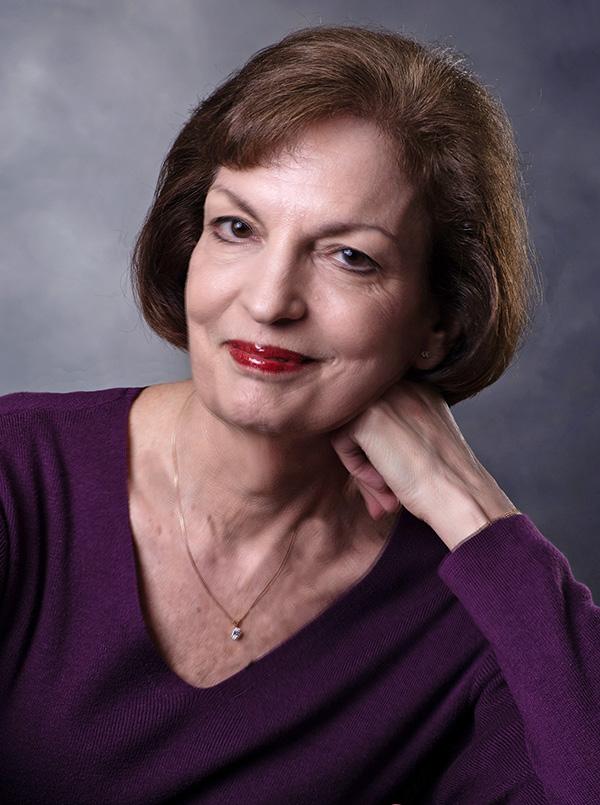
Longtime NATS member and author Brenda Smith was appointed chair of the NATS Books editorial board, succeeding Matthew Hoch. Smith will guide the program’s publishing efforts with Bloomsbury (formerly Rowman & Littlefield), building on the success of the “So You Want to Sing” series. NATS members can enjoy a 30% discount at Bloomsbury on individual titles with code NATSBOOKS30. Read more
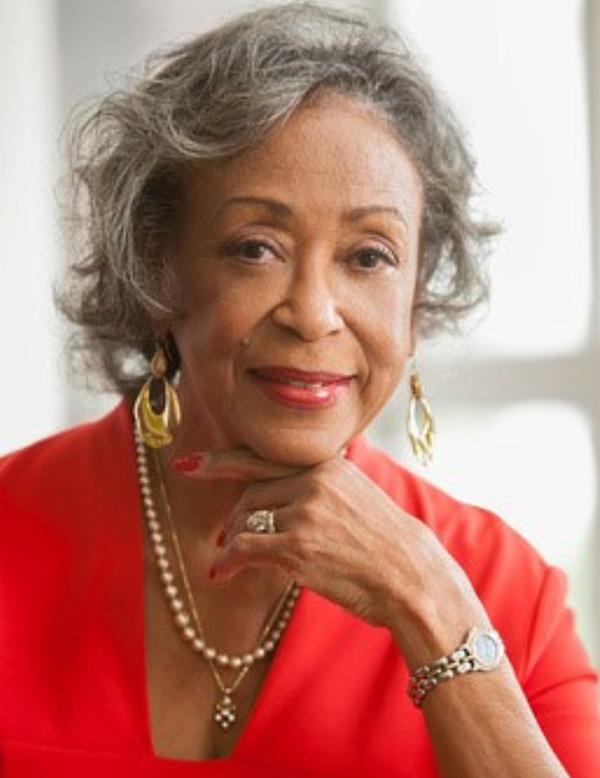
NATS recently launched the Barbara Hill Moore Emerging Teaching Artist Award to support voice professionals pursuing both teaching and performance. Applicants aged 33–43 with active singing careers can compete for a $3,000 prize and a recital opportunity at the 59th national conference in San Antonio, July 3-7, 2026. Applicants from underrepresented communities are encouraged to apply. Deadline: Jan. 15, 2026. Read more



NATS welcomes three new region governors: Maribeth Crawford (Mid-South), Daniel Hunter-Holly (Texoma), and Sandra Oberoi (International). They began two-year terms on July 1. NATS thanks outgoing governors for their dedicated service and looks forward to the new leaders’ contributions across their regions. Read more

Lily Guerrero, assistant professor of voice and pedagogy at the University of Texas at Austin, was named the 2025 Clifton Ware GroupVoice Pedagogy Award recipient in June. Her project will offer free group-voice classes for residents at a retirement community in Austin taught by doctorate-level voice pedagogy students. Matthew Markham received an honorable mention. Read more


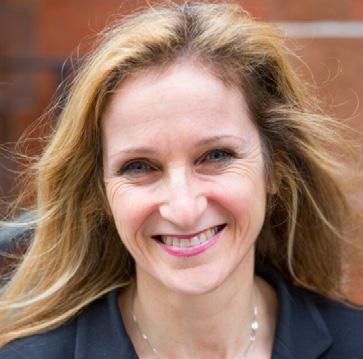
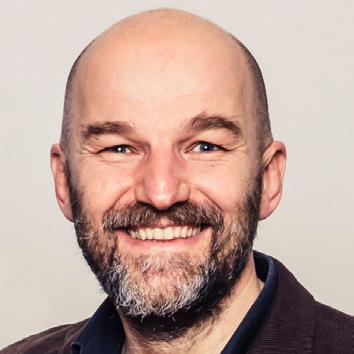
Editor in Chief Matthew Hoch has appointed four new associate editors for Journal of Singing: Linda Lister (“Mindful Voice”), Jeanne Goffi-Fynn and John Nix (“Voice Pedagogy”), and Christian T. Herbst (“Practical Voice Science”). Nine new editorial board members also join, bringing their expertise to shape the journal’s future content. Read more
SNATS chapters and student leaders will celebrate the start of a new year of activities at the SNATS Virtual Kickoff on Sunday, Oct. 19 at 7 p.m. ET. Attendees will hear updates from other chapters, learn about SNATS grants, as well membership opportunities and ways to get involved at the 2026 national conference in San Antonio. The session will be led by Nicholas Perna (NATS VP for Outreach). Read more
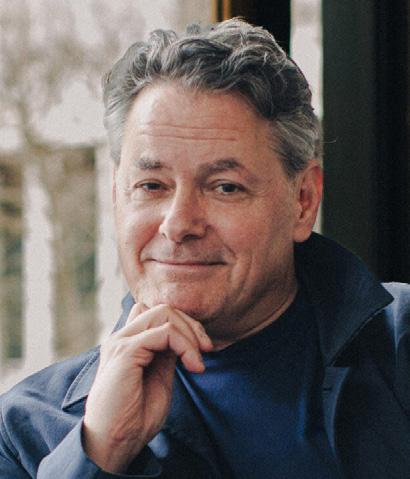
Tony Award-winning composer and lyricist Adam Guettel is opening his New York City studio to lead an exclusive performance class on Monday, Oct. 13. This event offers two sessions and a meet-and-greet with Broadway special guests in between. Tickets: $100 for NATS members, $125 for non-members and $50 for students (with valid ID). Proceeds support the NATS National Musical Theatre Competition. Read more
You’ve got a friend in “we.” :)
Affinity groups are memberled communities that bring NATS members together around shared interests or experiences. Current groups are thriving, and more will be added as member interest grows. To get involved, connect directly with a group leader. Scan to learn more.
• Independent and Multi-Teacher Studio Owner Affinity Group
• Black Perspectives @ NATS Affinity Group
• Latinx/Hispanic Teachers Affinity Group
• Adjunct Voice Teachers Affinity Group
• Asian and Asian Pacific Affinity (AAPA) Group
• NATS Group-Voice Pedagogy Affinity Group
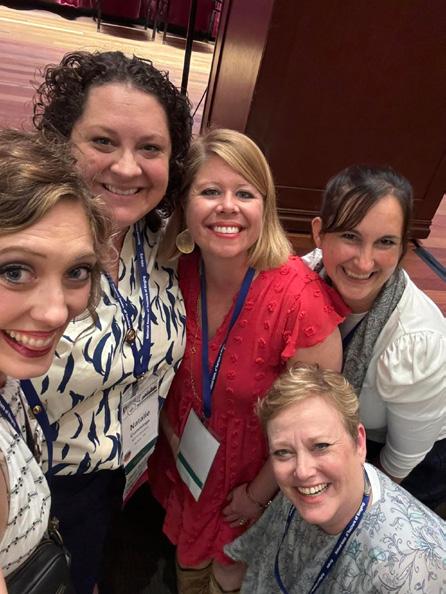
• Voice Teachers for Children and Youth Affinity Group
• Queer Affinity Group
• Mothers in Academia
REQUIREMENTS - The work must be:
(1) a song cycle, group of songs, or extended song between 13 and 25 minutes in length. Genres other than the classical “art song” are discouraged.
(2) composed for single voice and single acoustic instrument (solo instruments other than piano as the collaborative instrument will be accepted).
(3) English (or English translation), either in the public domain* or for which the composer has secured appropriate permission.
(4) composed within the past 2 years (after January 1, 2024).
ENTRY FEE - $30 for professionals; $15 for full-time students each entry (payable in U.S. funds to NATS).
ENTRY DATES - June 1, 2025 through December 1, 2025.
ELIGIBILITY - Open to anyone meeting prescribed requirements.
PROCEDURE - All applications must be submitted electronically via www.nats.org. Please read the complete details posted on the NATS website. The following are required materials for entry:
(1) A PDF copy of the song score(s). Copies must be legible and should include composition title; poet’s (or poets’) name(s); public domain status or information regarding permission; length and date of composition. THE COMPOSER’S NAME MUST NOT APPEAR ANYWHERE ON THE SCORE.
(2) Digital audio file(s) of the composition(s).
(3) Recordings must be of the highest quality possible (performance or working).
(4) The title of the composition should be the only labeling on the recording(s).
(5) The song order on the recordings must match the song order of the scores.
$2,000 PLUS the composer’s expenses to the NATS 59th National Conference in 2026, where the performance of the winning composition will be given.
$1,000
Cash prizes generously sponsored by composer Lori Laitman
NATS reserves a non-exclusive right to sponsor performances of the winning work for two years without additional remuneration to the composer.
* For U.S. publications, a summary of works in the public domain is available on NATS.org

Editor’s Note: The 2025 NATS Intern Program was held May 20-30, 2025, on the campus of the University of Louisville in Louisville, Kentucky, with 16 interns. The 2025 master teachers included: Justin John Moniz (NYU Steinhardt), Sandra Oberoi (Harmony-The Music School), Amelia Rollings Bigler (Coastal Carolina University) and Noel Smith (Noel Voice Studio). The collaborative piano interns worked with pianist Rachelle Jonck (Bel Canto Boot Camp).
Each morning began with master teacher cohort observations where the Interns rotated teaching volunteer students for one another. After a full morning of teaching, the cohorts broke for a lunch break with their master teachers, engaging in meaningful discussions on different techniques and questions that came up over the course of the teaching morning. Afternoons were filled with performance classes, master teacher and intern presentations. Dinners were a chance to recharge batteries, reflect on new discoveries, and socialize with new colleagues and friends. The program culminated in a final performance given by the volunteer
students. It was a joy to hear these singers and the journey they took in such a short period of time. The recital and the reception that followed was a beautiful celebration that embodied the spirit of NATS, its mission and values.
Thank you to Past President Diana Allan for your organizational leadership of the 2025 NATS Intern Program. Thank you, Katherine Donner, Chad Sloan, and Emily Albrink Katz, for being such amazing and gracious hosts. Thank you to the donors of the NATS Intern Program who make this financially possible. Thank you to the master teachers: Justin John Moniz, Sandra Oberoi, Amelia Rollings Bigler, Noel Smith, and Rachelle Jonck for giving so generously of your time, wisdom, and expertise. And thank you to our Intern Class of 2025: Katie, Barr, Rachel Bennett, Susan Dantoni, Anna Diemer, Meredith Eib, Lesley Friend, Alexandria Hanhold, Mirim Kim, John Lindsey, Kellie Motter, Lexie Rains, Alex Ritchie, Katilyn Sanders, Grace Steiner, Laura Thomason, and Emily Venturella who represented the best and brightest early-career teachers from across our association. We are forever grateful to this amazing program, for its life-changing impact, and to the association for affording such deeply meaningful opportunities to its early career members.
“This is one of the best experiences I have had in my professional career (including my experience with opera young artist programs, residencies, and professional contracts). Thank you all for the effort, care, and thoughtfulness you invest in this program and the people you invite to participate.”
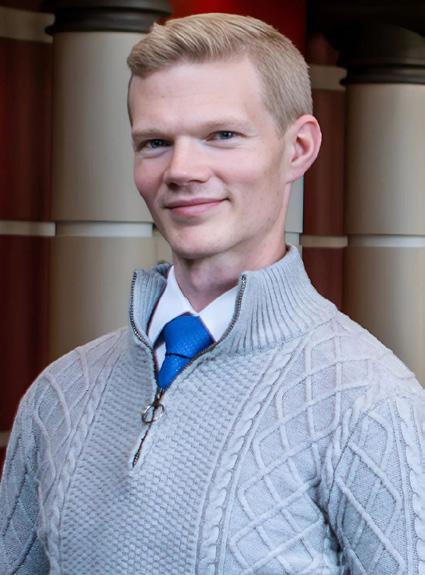
— John Lindsey
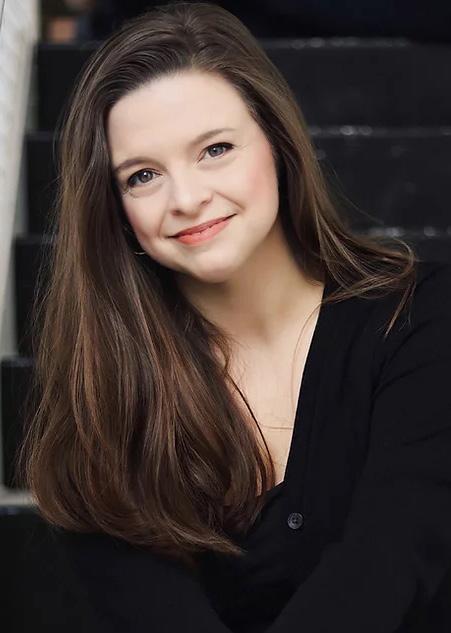
“I found the professional development afternoons most valuable. It was great learning from my peers in their presentations, practicing presenting myself and participating in masterclasses to see different teaching styles. This was such a great experience overall! I felt very well matched personality-wise and teaching philosophy-wise with my master teacher. All of the other interns were wonderful to talk to, and I was pleasantly surprised by how well we all bonded and got along over the 10 days. I truly feel as though I have 15 new colleagues all over the country. I’m also so grateful for the resources! I would heartily recommend this to any early career professional voice teacher.”
— Meredith Eib
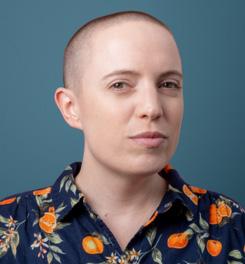
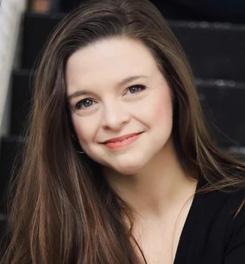

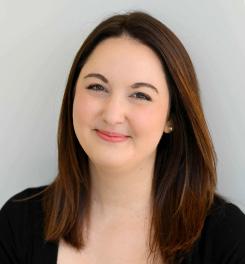
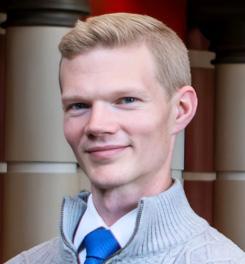

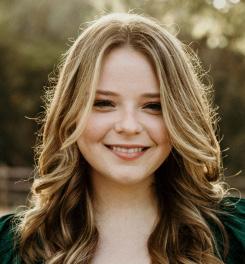
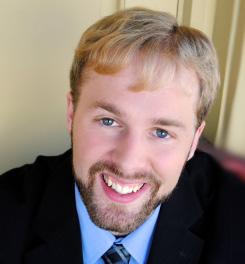
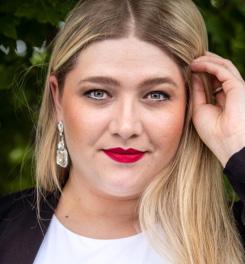
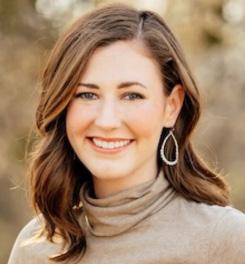

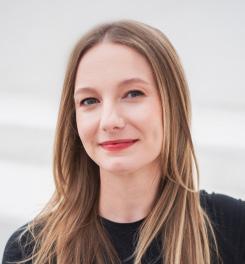
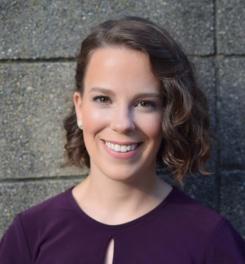
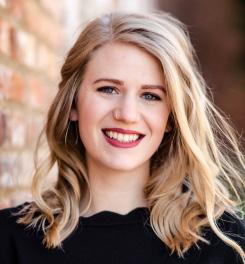
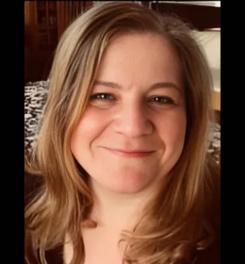
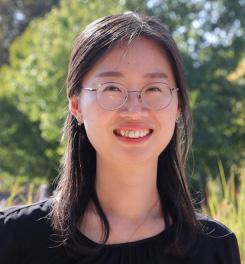
May 19–29, 2026
Furman University in Greenville, South Carolina
Director: Diana Allan, NATS Past President
Local Coordinator: Randall Umstead, Furman University & NATS President-Elect
Vocal Literature Liaison: Tana Field, Murray State University
The NATS Intern Program is a highly immersive experience pairing experienced and recognized master teachers with talented early-career members of NATS. We invite both independent and academic voice teachers and collaborative pianists to apply. Voice interns teach students, participate in master classes, and receive daily feedback from master teachers. Collaborative piano interns coach singers, accompany lessons, and train under the guidance of master teachers. All interns engage in educational sessions, master classes, and special lectures led by distinguished faculty and guests.
• Conroy Cupido, South Africa, International Region
• Jerry Elsbernd, Minnesota, North Central
• Amanda Flynn, New York, Eastern Region
• Jan McDaniel, Oklahoma, Texoma
• Yvonne Redman, Illinois, Central Region
• NATS member, in good standing. (Non-members may apply with the understanding that all interns who are chosen will be required to join NATS.)
• Early career teacher: less than 5 years of full-time teaching or the
part-time equivalent. (Working as a graduate teaching assistant does not count toward the 5-year limit.)
• Master’s degree or higher, OR commensurate experience is required.
• Completed application form
• 150-200 word biography
• 300-word Statement of Interest
• Resume/Curriculum Vitae (PDF only). Please make sure this includes information on your experiences in teaching and types of repertoire taught. This should be more than just your performance resume.
• High-Resolution Headshot. Please upload a JPEG only labeled with your name.
• Recordings:
– Performances: 2 video recordings of recent performances, demonstrating contrasting styles and genre interests
– Teaching: 1 video recording of a 15-min sample voice lesson. Description of video should include length of study with student and lesson objective.
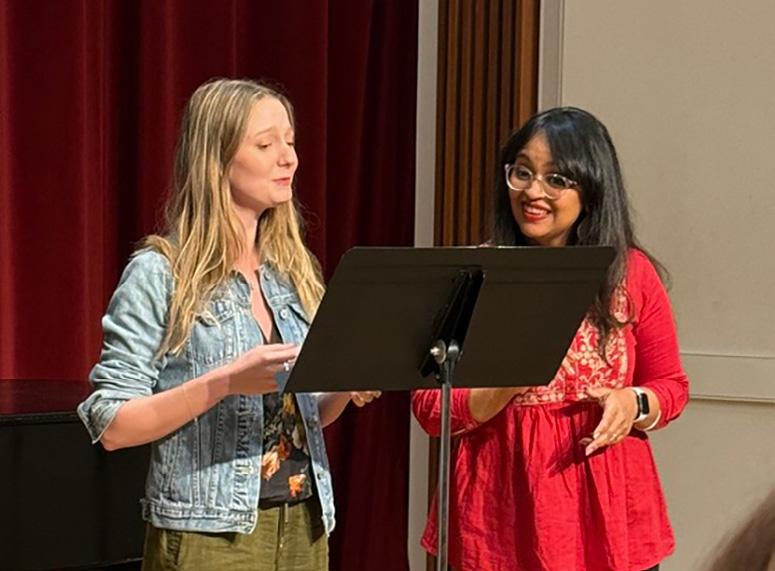
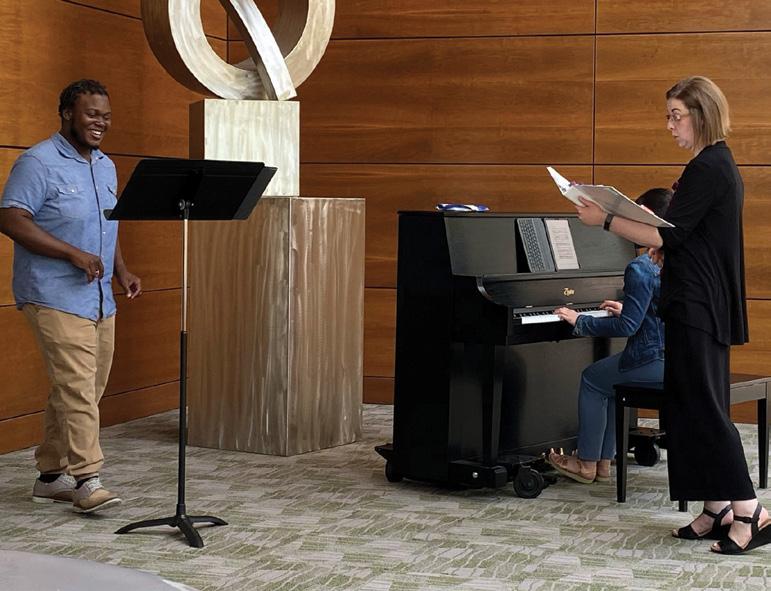
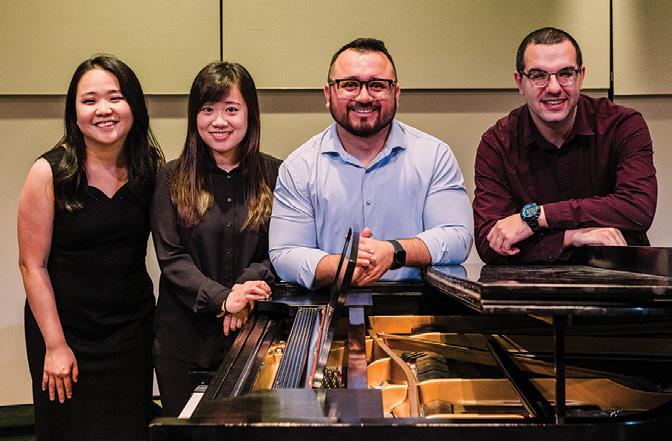
Testimonials from recent interns:
“This was an unforgettable experience and I am forever grateful to NATS and the NATS Intern Program! I will cherish everything I have gained from this experience for the rest of my career.
Thank you, thank you, thank you!!!”
“I am so grateful to NATS for creating this program. It has been an incredible, heart and soul filling experience. I have made friends and colleagues for life from this event.”
“Just thank you. I feel incredibly grateful and humbled to now include myself among the NATS interns. I learned so much . . . I feel like I am still processing the knowledge gained, and the relationships formed will last a lifetime.”
How the KLVS Showcase Experience has transformed my teaching and my studio
by Kim Lamoureux
It was three years ago, in the early spring, and I was out for a walk on the bike path near my house to clear my head in the middle of a busy day of lessons and admin tasks.
I had been thinking a lot about the shape that my work in my recently-transitioned-to adults-only voice studio had been taking. I had been hosting traditional general recitals for my studio twice a year for nearly a decade at this point … and it just wasn’t feeling aligned anymore.
Sure, I mused, recitals could be a great opportunity to “show what you know,” and they were certainly motivating for the singers in my studio. My clients appreciated having a tangible goal to work toward, and they genuinely valued the sense of community these gatherings fostered — something that can be hard to find as an adult pursuing music outside of a professional track.
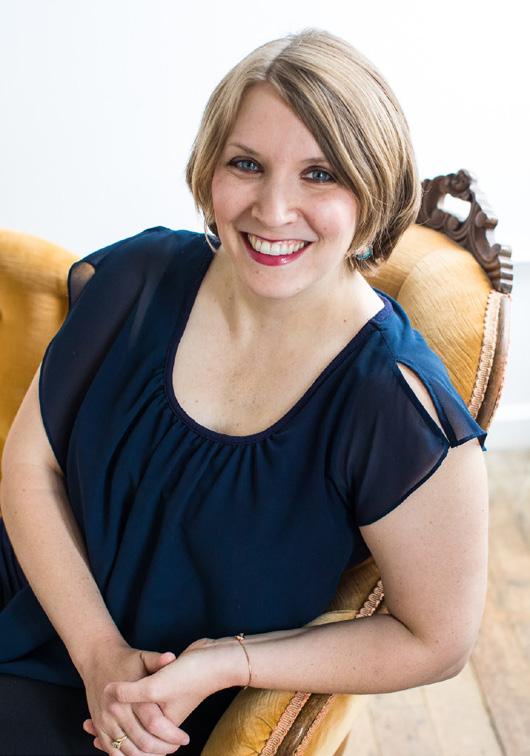
In that first season, I invited my studio members to dream up a concept and curate a set of 10-20 minutes of solo vocal music. The sky was the limit in terms of theme, genre, shaping, and style. Each student chose songs and themes that were uniquely relevant to them, and we worked over a period of about four months to develop, hone, and prepare their sets.
The inaugural Showcase Series proved to be a huge success, and the wins were innumerable — increased confidence, joy, ownership, exploration, stamina, artistic self-realization, self-trust, and more.
We are now three years into this grand experiment, which has turned out to be the only vocal capstone event I will ever do with my adult singers.
Why?
Still, I found that the traditional studio recital format posed some consistent challenges for my clients. Preparing intensively for just one or two songs often placed a lot of pressure on singers. While that worked well for some, more found the high-stakes nature of a single moment on stage to be quite daunting. This often led to a perfectionistic mindset, preparation anxiety, and, too often, the end result of this combination was a performance that my students couldn’t help but be disappointed with.
Was this model really the best way to serve my clients’ growth? There had to be a better way — something that kept the sense of purpose and community, but allowed for more creative expression, deeper growth, and a more positive performance experience overall.
As I walked, my thoughts floated. I knew that my current students were ready for more, vocally and artistically, and that I had a real opportunity in front of me to push the growth edge of their confidence. It came to me that what I really wanted for my studio community was a performance experience that would be more than a general recital. I thought, we should do a long-form performance.
It was on this walk that the idea for the KLVS Showcase Experience was born.
Recitals can be fun, rewarding, or even chill, in the right circumstances.
But, more often — it’s so much pressure, for so little reward. And it perpetuates both the master/apprentice model, and the culture of striving for perfection in music.
Now, I’m all about quality results, but perfection is a myth. What do you remember when you see a great performance? The flaws, the mistakes, the flubs? No. If you even noticed those imperfections in the first place (debatable) — you remember the impact. How you felt in that moment. How the artist on stage moved you.
Our industry (especially if you’re coming from a classical background, as I am) has historically been way too focused on getting it right at the expense of all else.
What if instead, we could focus on getting it real? Being in the moment? Having all that skill and confidence and technique to back you up, so that you are free to communicate in an extended moment through the music that you love?
This is what the Showcase has done for the singers in my studio community. I’ll never go back to traditional recitals.
To singers who are new to the program, it can seem like a big ask. But, I work with them every step of the way and
relentlessly cheer them on and advocate for them as they develop confidence, clarity, and self-expression through the process.
To singers who are new to the program, it can seem a daunting task. But, I work with them every step of the way, and relentlessly cheer them on and advocate for them as they develop confidence, clarity, and self-expression through the process.
And for the singers who are now returning for their second or third Showcase performance? They are now offering more songs, exploring new genres, expanding their vocal range, and creating even more cohesively themed programs. It’s a joy to witness and be a part of this growth with them.
If you’re burned out or feeling uninspired by the traditional studio recital model — there are other options available to you! Long-form performance opportunities allow your students the ability to create a project that is personal and meaningful to them, and gives them time in the main event to settle in to (and maybe even enjoy!) their performance — and that can’t help but expand their ability to communicate and connect with an audience.
To get started with a long-form performance opportunity in your studio, consider the following:
• Who do you serve?
Do you work with kids and teens? Adults? College students? Are they pro track or hobby singers? Wherever your clients fall on this spectrum will determine how much scaffolding and/or handholding they will require to prepare for an event of this nature.
• How much runway do you need? Based on the above, you may need anywhere from 2-6 months to prepare your students adequately. Plan accordingly.
• What’s your pay structure?
An event like this is a high-ticket item! If you’re already on a tuition or subscription model, will you spread the fees across an existing payment plan? Will you charge a one-time fee that covers the event? Or, do you want to create a separate program altogether that is allinclusive for everything that goes into this performance experience?
• What’s your venue?
In my opinion, one of the non-negotiable key factors of this kind of event is that it doesn’t happen in a church.
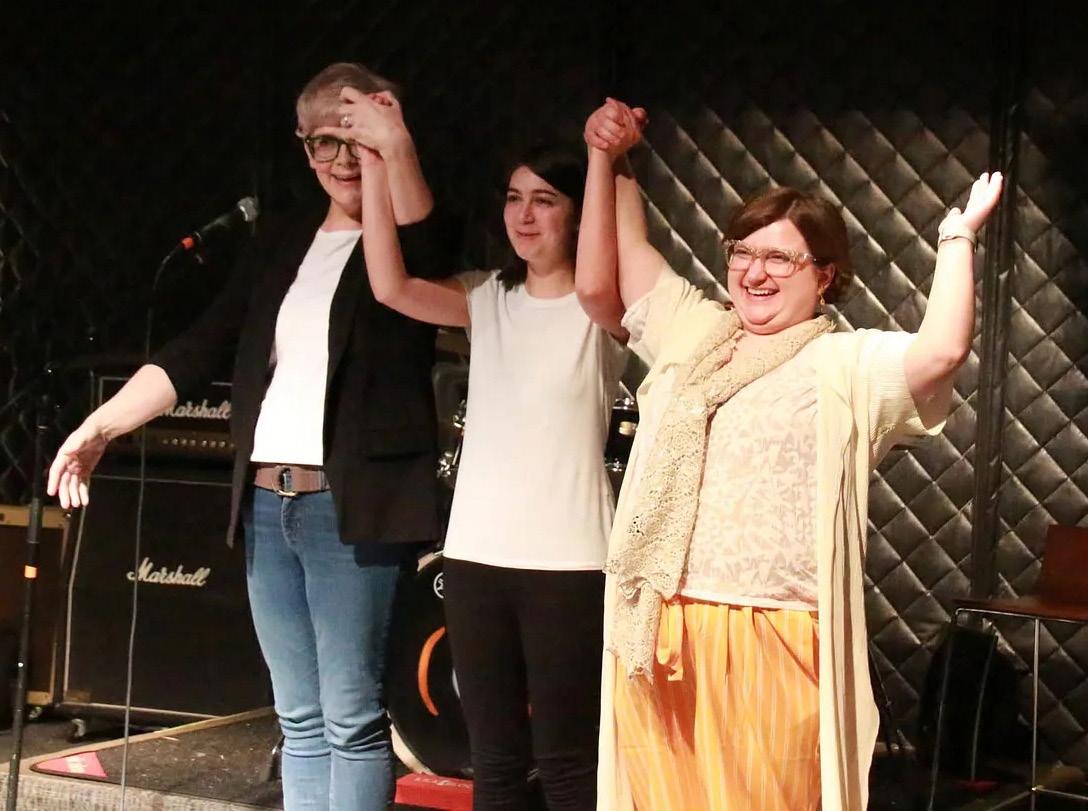
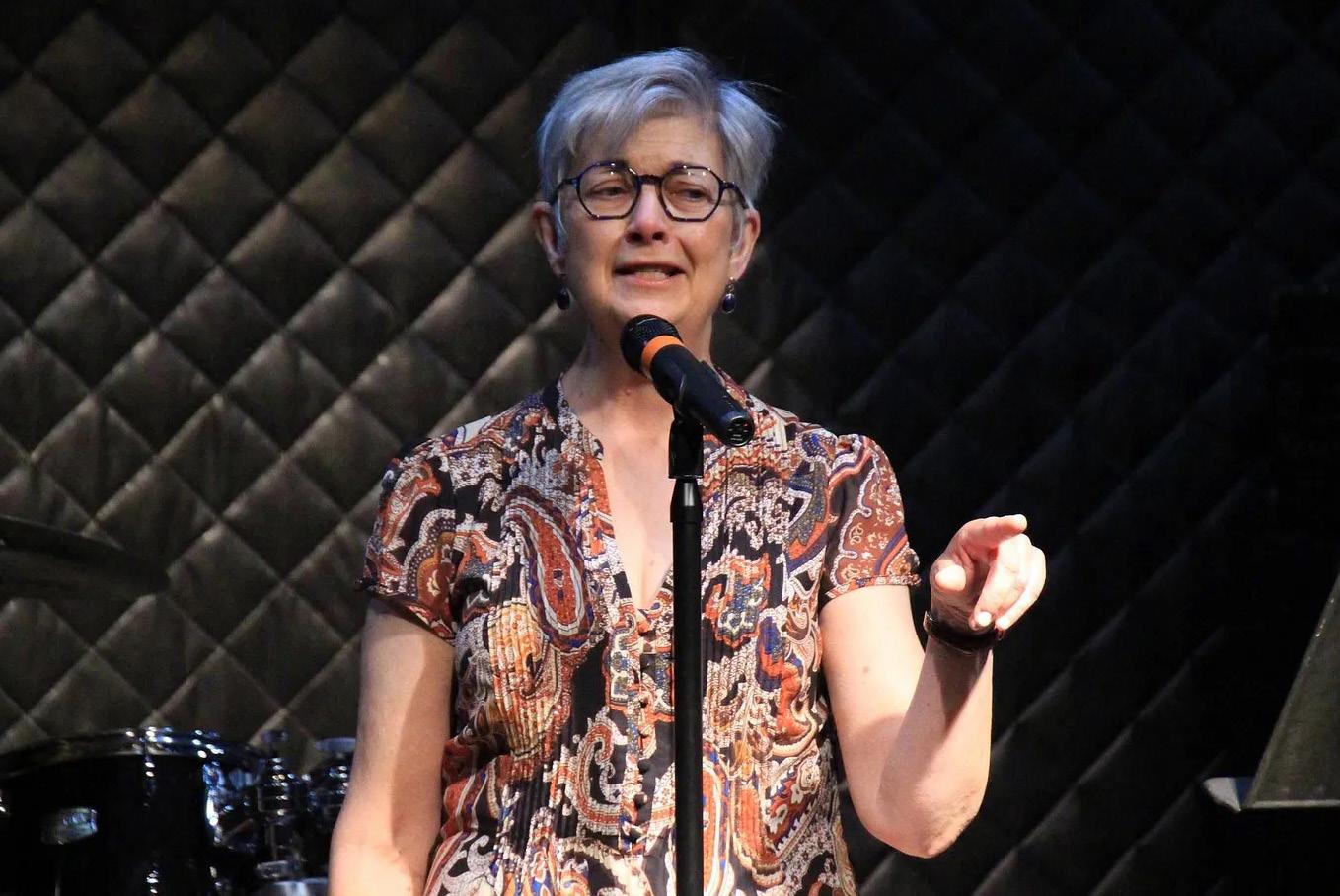
Now, I’m not knocking churches. They have great acoustics, typically have a good piano, and are usually happy to rent out their space. However, no matter how you slice it, there’s an intrinsic air of formality that is inherent in these spaces. Your goal with a show like this is to encourage intimate communication — and a church space is just not the vibe. Instead, look into the non-traditional venues in your area:
Is there a small black box theater? A coffee shop? A local jam space? Maybe you’re interested in an outdoor performance with a gazebo setup. The sky’s the limit in terms of location. Think outside the box!
• Who will you hire/what will you rent?
Would you like your students to work with a pianist? A guitarist? A band? Will you accompany them? (not recommended, as there are many other elements for
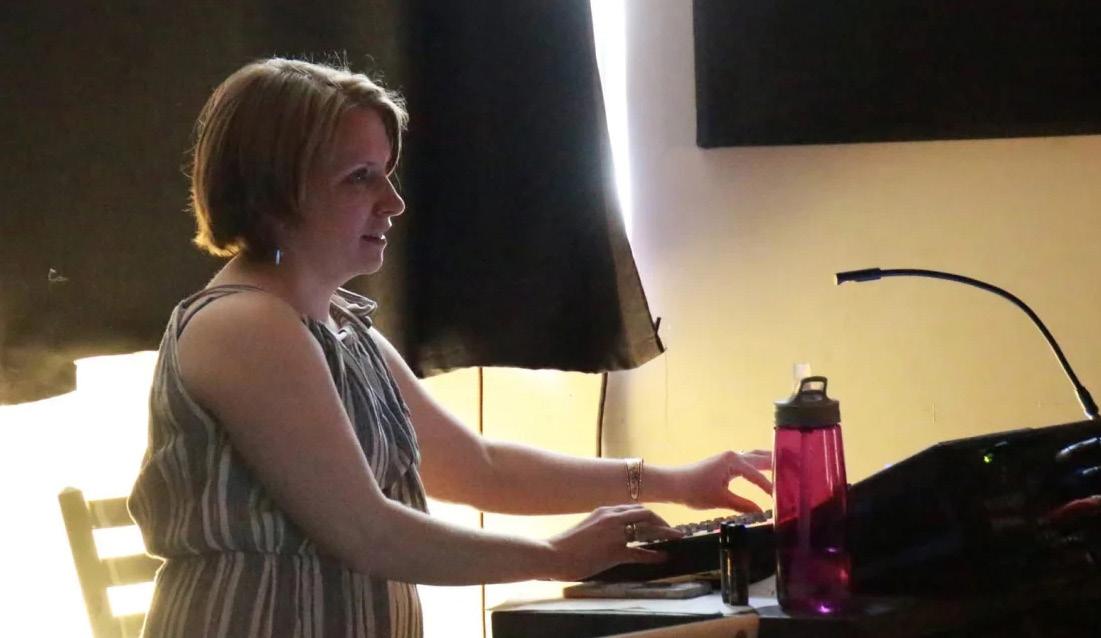
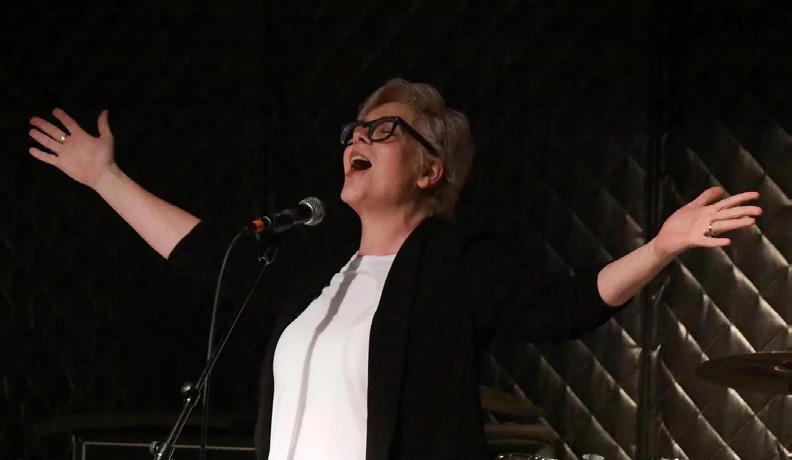
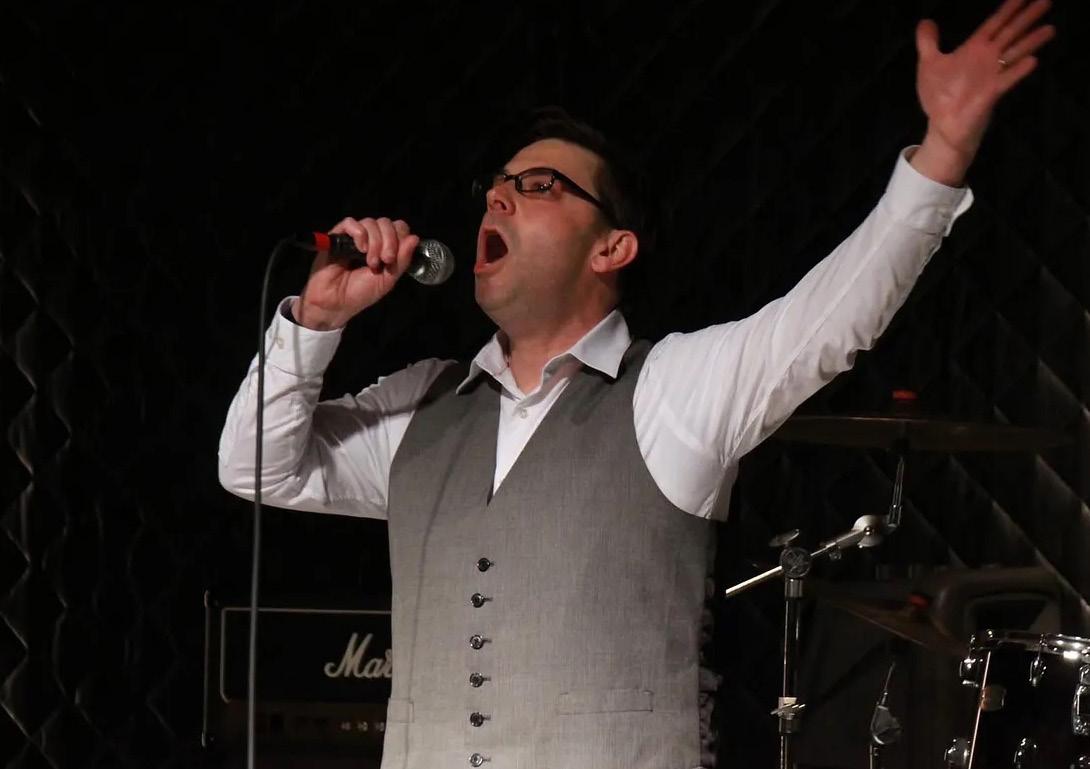
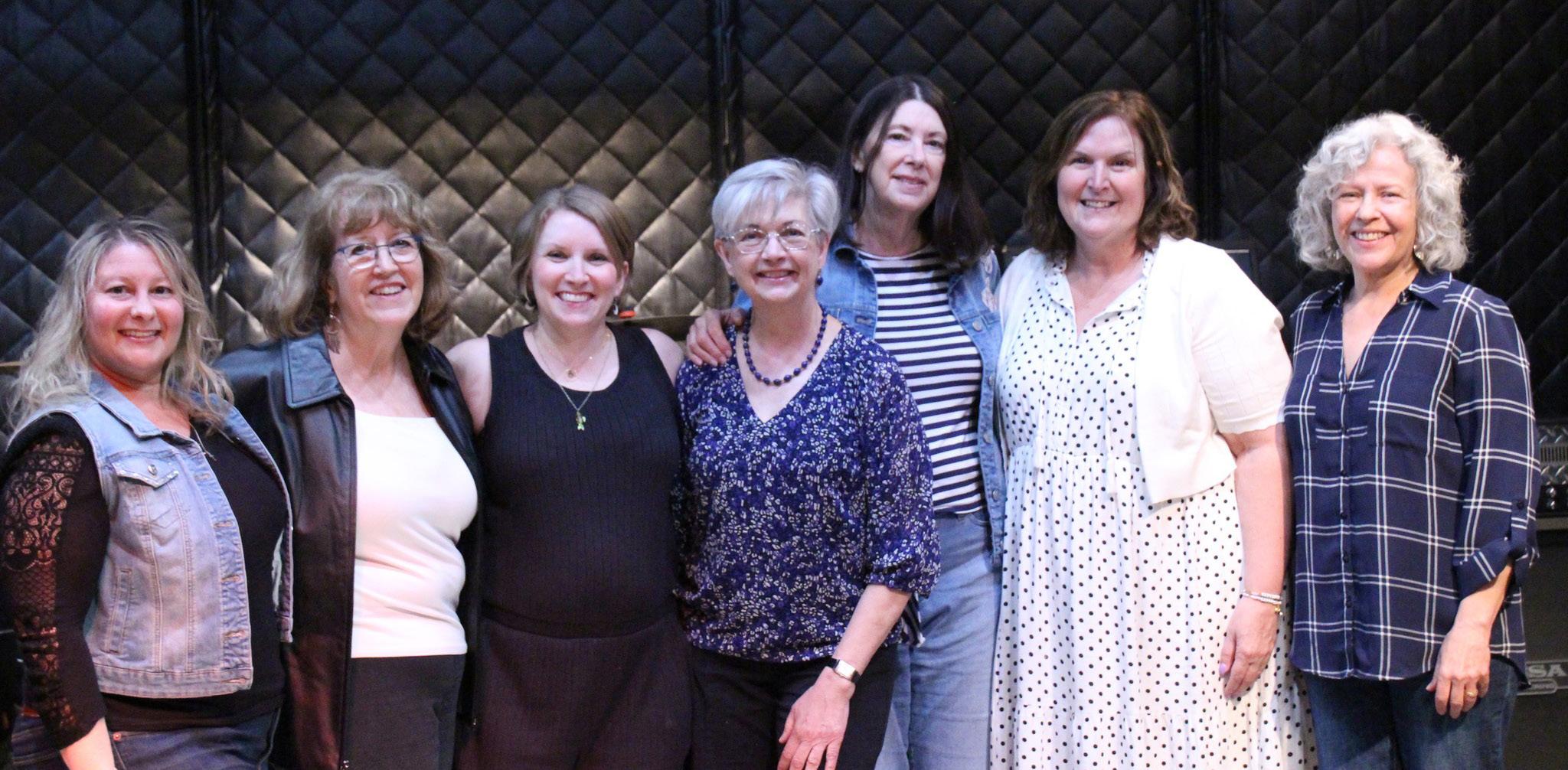
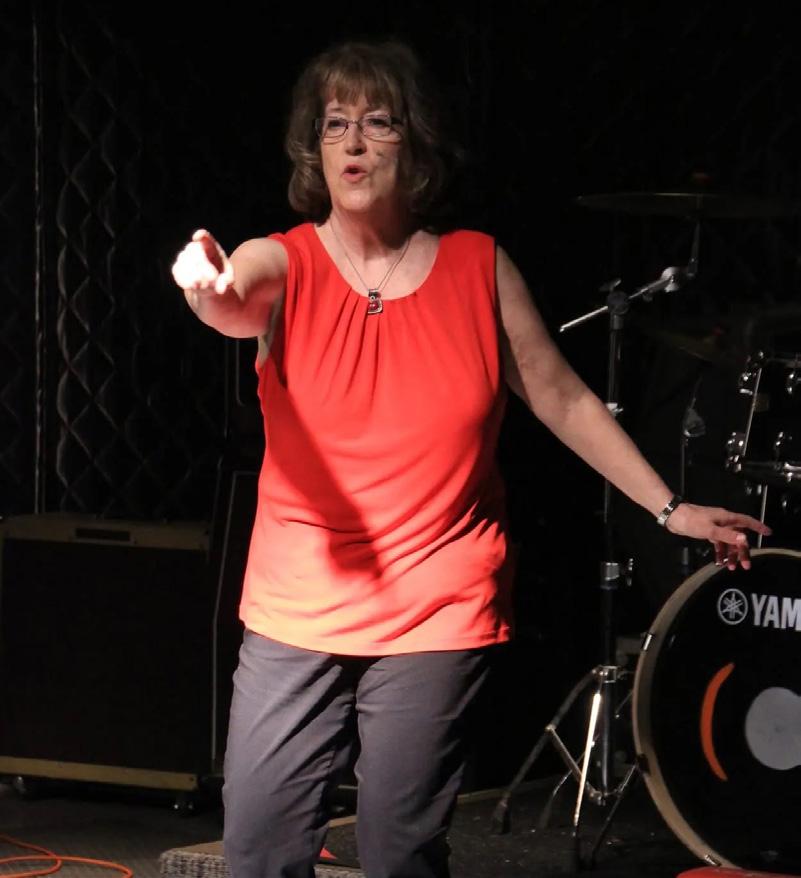

you to attend to as the producer of this event — but you do you!) What’s your sound setup? Who’s running that? Will you have lighting? Are you livestreaming or recording?
There’s more to consider, but this is a good starting point.
If you’re curious about what an event like this could look like in your studio, feel free to check out some of the Showcases I’ve produced on my YouTube channel: youtube.com/@ kimlamoureuxvoice
And, if you’d like help getting started, my inbox is open! Shoot me a message at kim@kimlamoureuxvoice.com. I’m happy to chat.
If the traditional studio recital model is no longer serving you and your students, consider this your invitation to reimagine
what’s possible. Your students are expanding their skills every day — and in that, you get to evolve right alongside them.
Kim Lamoureux is a performer, producer, and voice teacher based on Boston’s North Shore. She maintains an active performance career in classical and classically adjacent spaces, bringing her background in immersive theater and love for offthe-beaten track movement modalities to her work. As founder of Kim Lamoureux Voice Studio (KLVS), she is dedicated to cultivating technically grounded, creatively empowered singers. Her work emphasizes vocal freedom, expressive clarity, and personal authenticity. She is also a co-founder of North Shore Voices, and co-producer and host of Vibrato Bar — the region’s only classical karaoke piano bar. Across all areas of her work, she brings curiosity, rigor, and a passion for helping singers connect with their most authentic selves.
By Jessica Fielder
Helping a singer find the right musical theatre audition piece — one that truly showcases their skills, identity, and authenticity — can seem almost mystical. But in reality, it comes down to thoughtful work, dedicated time, and a strong grasp of the ever-evolving catalogue of musical theatre repertoire. It’s not enough to fall back on the songs we’ve performed ourselves or the ones we’ve seen bring down the house. We need a deep familiarity with the shows, songs, composers, lyricists — and most importantly, the individual singers in our studios.
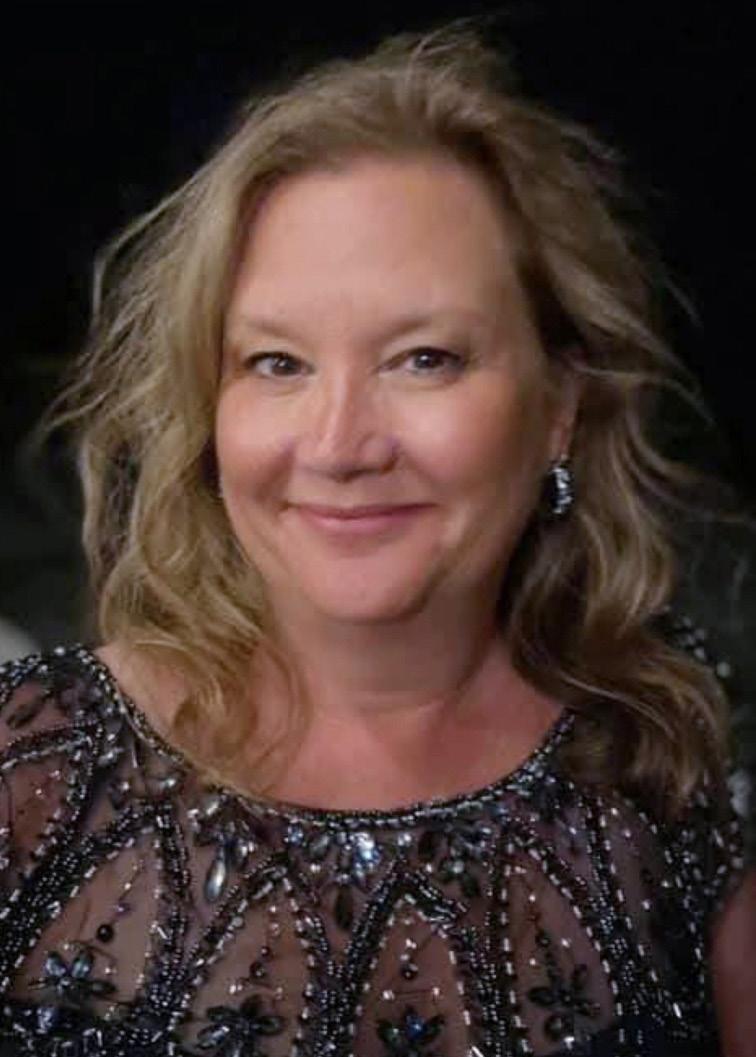
One of my favorite moments as a teacher is when a student brings in a song they’ve discovered and truly love — one I might never have chosen for them. That’s when I know they’re taking ownership of their artistry. That’s when the real magic begins.
“We need a deep familiarity with the shows, songs, composers, lyricists — and most importantly, the individual singers in our studios…Ideally, we’re finding songs that feel like a natural extension of who they are.”
If your studio is anything like mine, many new high school students arrive eager to tackle the latest “belt-your-face-off” musical theatre hit. They’re often convinced that because a friend wowed everyone with a powerhouse performance, they need to do the same to be taken seriously. That’s where my work begins. I need to get to know this student — not just their voice, but who they are at their core. And I say “the work begins” intentionally, because this kind of discovery doesn’t happen in a single lesson, or even in the first month or two. It takes time.
Every lesson in my studio starts with a simple, “Hey! What’s new?” Before long, students are excited to share something about their week, and I’ll do the same. We might talk about what music we’re listening to, new musicals that have caught our attention, a show or movie that moved us, or even a big moment from their day. Sometimes it’s casual conversation;
other times, it’s deeply meaningful for both of us. But whatever is discussed during those few minutes becomes part of a shared understanding of the singer’s world — and it helps lay the foundation for building their repertoire book.
Do they listen to rap, pop, or country? Are they drawn to drama or comedy? What stories resonate with their own experiences? What roles can they see themselves play? The questions — and insights — are endless. And ultimately, I’m reminded that guiding a student to repertoire that fits like a glove revolves around their understanding of their lived experience, culture and skills as a singer and actor.
With all of this in mind, we can begin making more intentional connections between the student and their repertoire. Maybe I’ll ask if they’ve seen or heard of a musical that relates to a conversation we’ve had. Perhaps a rhythm from a favorite pop song sparks an idea for a piece from a classic show.
Or maybe a tough day at school calls for a contemporary ballad that reminds them of their resilience and worth. I’m just brainstorming here — but ideally, we’re finding songs that feel like a natural extension of who they are.
As students grow and evolve, so should their repertoire — expanding to meet new vocal challenges, explore deeper character work, and reflect their broadening artistic identity. This journey starts in the studio, but it doesn’t end there. It continues through each singer’s personal exploration, research, and lived experience. And ultimately, it leads to something powerful: a confident, well-rounded performer with a strong understanding of the musical theatre repertoire that best aligns with their voice, personality, and potential.
I’d be completely remiss if I didn’t address vocal range, style, and ability. For most voice teachers, this is a top priority — and rightly so. So let’s take a moment to break it down. Understanding a singer’s vocal range is essential. But when it comes to musical theatre auditions, flexibility is key — literally. Traditional vocal ranges do not necessarily apply here. It’s generally acceptable to adjust the key of a
song to best suit the singer’s voice (unless, of course, they’re auditioning for a specific role in a production, in which case the original key is often required. While special permission to alter a key in a production is occasionally granted, it’s rare and costly.) That said, if you and your student have found the perfect audition piece, but singing it a step higher or lower is the difference between a good audition and a great one — go ahead and change the key. There’s no shame in that. The goal is to showcase the singer at their very best.
“Many of us have strengthened our own teaching by seeking out professional development opportunities and collaborating with colleagues who specialize in rock, pop, and contemporary commercial styles. So don’t hesitate to reach out.”
Vocal styles — now this is a big one in musical theatre. Is your student a classic-style singer/crooner with a smooth, even vibrato? There’s a wealth of repertoire to explore with them: think Rodgers and Hammerstein, Lerner and Loewe, Cole Porter and Leonard Bernstein. Or maybe your student is a full-on rock god/goddess, strutting into the studio each week with powerhouse energy and a killer belt. There’s incredible material out there for them too — start with jukebox musicals, and dig into shows like Lizzie, Six, Alice by Heart, and Hands on a Hardbody. You’ll also find great rock and popinfused scores from composers like Andrew Lloyd Webber, Elton John, Green Day, and a wave of newer composers reshaping the genre.
You’ve got a rapper in house? Yes! There are full on rap musicals as well as single songs from amazing shows like Bring it On, Suffs, Hamilton, Mean Girls, The Connector, Bare, In The Heights and so many more.
And let’s not forget the beautifully subtle folk-rock singers. These artists might be quieter in the room, but their storytelling runs deep. Shows like Dogfight, Giant, Once, and Spring Awakening offer emotional depth and stylistic nuance that can truly light up a student’s artistry.
Here’s the kicker: it’s not just about recognizing the style a student naturally brings in — it’s also about helping them stretch beyond it. Expanding their stylistic range is part of nurturing a well-rounded performer. Of course, that can feel daunting if you haven’t had much training in certain genres yourself. But you’re not alone in that.
Many of us have strengthened our own teaching by seeking out professional development opportunities and collaborating with colleagues who specialize in rock, pop, and contemporary commercial styles. So don’t hesitate to reach out. Partner with these experts. Learn from them. Your students — and your teaching — will be all the better for it.
But what about the singer who’s new to training but already eager to step into the audition room? Friends, there is music for everyone. And sometimes — honestly — simple is best. There’s absolutely nothing wrong with choosing a song that sits right in the singer’s sweet spot, exactly where their voice lives in that moment. Maybe the range isn’t huge, and that’s okay. Maybe their superpower is how they act the song — how they connect emotionally in a way that’s undeniable. That kind of authenticity can leave a lasting impression.
Sure, a particular vocal tone might strike some as unconventional. But to others, it’s exactly the quality that makes a character come alive. Embrace that uniqueness. Help your student shape it into something original — something no one else will bring into the room.
Everyone has to start somewhere. So let them go out and do the thing. Then, back in the studio, keep building. Keep stretching. Keep refining. That’s the journey.
As you may have noticed throughout this article, I keep coming back to roles, character, and acting the song. And I’ll go out on a limb here: this might just be the defining feature that sets musical theatre apart from every other vocal genre.
We’ve all seen it — “doll hands,” eyes glued to the floor, stiff posture, and a beautiful voice with zero connection to the lyrics. Or, on the other extreme, a student who mimics every move from a video, down to the exact eyebrow lift, with no personal ownership of the performance.
That’s why it’s so important to dig into the acting of the song with our singers. Once they’ve internalized the notes and rhythms, giving them the freedom to explore how the piece feels in their body can be transformative. They start to embody the story — not just sing it. And in that space, free from the interruptions of technique and registration concerns, something glorious happens: they connect. It’s not about perfection. It’s about being human. Humans move, gesture, notice, react, and respond. Let them feel it. Let them find what’s authentic. And once that connection is made, there’s time to go back and shape the movement with intention and nuance. Helping students develop that mindbody flow gives them true ownership of their performance — and that’s when their artistry really begins to shine.
I’d also like to take a moment to talk about song selection for specific musicals and roles. This process can feel overwhelming — especially for high school singers preparing for auditions at their own school. These auditions often feel incredibly high-stakes; they’re happening in front of peers, faculty, and directors they admire. For many students, this is the most important audition they’ll face outside of a college audition for a competitive musical theatre/BFA program.
In moments like this, it’s no surprise that many students immediately turn to the internet and search for “the best audition song for the role of….” While that approach isn’t inherently wrong, it rarely takes into account the individual singer’s strengths, style, or unique voice. It also misses the opportunity to surprise the panel with a song that’s been carefully chosen — and deeply personalized — for the audition.
Instead, we can recommend a more strategic and creative approach. Start by exploring other musicals by the same composer and lyricist. Then branch out into shows with similar vocal styles or storytelling tones. After that, look for musicals that share the same vibe as the show they’re auditioning for. For example, if the school is producing The Addams Family, it’s a blast to dig into repertoire with a quirky, creepy edge — think Tom Lehrer’s classic “Poisoning Pigeons in the Park” or songs from The Toxic Avenger, The Rocky Horror Picture Show, Zombie Prom, etc. It’s not just useful — it’s fun!
Sometimes, students may even ask if they can step outside the traditional musical theatre canon altogether. In certain
cases, especially when the show draws heavily from a specific musical era — Bandstand, for example — this can be a smart and stylistically appropriate choice. A World War II-era standard could beautifully match the tone and context of the show while demonstrating a deeper understanding of its world.
That said, this kind of choice is ultimately at the discretion of the director. It’s important that the student checks in and gets approval before going in that direction. A well-informed, collaborative approach not only shows professionalism — it can also help the student stand out for all the right reasons.
Whew — it is a lot! But the good news is, there are plenty of resources out there to support both teachers and students. From streaming platforms and cast recordings to educational websites, social media accounts, and online masterclasses, high-quality material is more accessible than ever. With a thoughtful, curious approach, we can guide our singers toward smart, personalized repertoire choices — and help them grow into confident, expressive artists along the way.
There’s no shortage of tools out there to support thoughtful repertoire selection and stylistic development. Here are a few of my go-to resources for both teachers and singers:
Musical Theatre Resources: Curated and managed by NATS member Kevin Michael Jones since 2013, this free site is a goldmine of repertoire suggestions, audition tips, and educational content. It’s comprehensive, regularly updated, and incredibly user-friendly.
Theatre Trip – Best Audition Songs: This site offers a multitude of audition song and monologue suggestions organized by show and voice type. It also features a helpful “Find a Musical” tab that gives background info on hundreds of shows — style, voice types, character breakdowns, and more. It’s a one-stop shop for early research.
Spotify: Almost every cast album ever made lives here!
Beyond that, Spotify also hosts countless curated song lists focused on voice type, musical style, and era.
Some of my favorite Spotify accounts and playlists:
• NATS member Sheri Sanders: Playlists organized by rock history eras, musical styles, and individual shows. A musthave resource for anyone diving into pop/rock MT styles.
• Performerstuffofficial: Offers audition song suggestions for specific shows, styles, vibes, and voice types — including golden age, contemporary, and 16-bar cuts.
• NATS member Phyllis Horridge: Extensive Spotify playlists tailored to various needs, including one specifically for teen performers. Her catalogue now includes hundreds of thoughtfully selected songs, organized by voice type, style, and character fit. See also, Horridge’s TikTok series called “Musicals A to Z”: Horridge started the series as a personal project in 2022 with a goal to listen to one cast recording or soundtrack per day, alphabetically, using the Wikipedia list of musicals as her guide. “While my schedule no longer permits daily listening, the series continues, currently approaching the end of the letter “H,” and has become an ongoing exploration of the vast and diverse world of musical theatre.”
Podcasts: Podcasts galore about all the ins and outs of musical theatre. Take your pick!
• HeatherStatham.com – Rock Out Your Rep: Still stuck? Heather Statham offers an amazing service called Rock Out Your Rep. After a 75-minute consultation, she creates a long, customized playlist tailored to the singer’s style, voice, and artistic goals. I’ve done this myself — it was priceless.
• newmusicaltheatre.com: This is your one stop shop for new trending musical theatre sheet music for purchase.
• Musicnotes.com: Digital and print sheet music for purchase.
• SheetMusicDirect.com: Digital and print Sheet individual music for purchase or an unlimited PASS subscription with over two million songs and arrangements available for streaming.
Jessica Fielder is the owner and instructor of FielderStudio located in Farmington Hills, Michigan. She specializes in college audition preparation for musical theatre performers. Her students and alumni perform on stages around the globe. A respected adjudicator and vocal clinician, Fielder regularly works with organizations such as the Michigan School Vocal Music Association, the Sutton Foster Awards, the Michigan Educational Theatre Association, and the National Association of Teachers of Singing (NATS). In addition to her independent studio work, she serves as the vocal music director at University Liggett School in Grosse Pointe, Michigan. She has also held leadership roles as president of NATS Michigan, The Livonia Piano Teachers Forum, and Camarata.
The Van L. Lawrence Fellowship was created to honor Van L. Lawrence, M.D. for his outstanding contribution to voice, and particularly to recognize the importance of the interdisciplinary education he fostered among laryngologists and singing teachers. The Fellowship is a joint award from the Voice Foundation and the Foundation Heritage Fund of the NATS Endowment.
Candidates for the Van L. Lawrence Fellowship shall be:
1. A member of the National Association of Teachers of Singing who is actively engaged in teaching.
2. The Fellowship shall be awarded to candidates who have demonstrated excellence in their professions as singing teachers, and who have shown interest in and knowledge of voice science.
Members of NATS wishing to apply for the fellowship should write a letter of intent to The Voice Foundation along with your CV — combined into one PDF. Include the area and methods of your proposed study plan. E-mail: office@voicefoundation.org
a. Current application of scientific knowledge in the studio;
b. The area of intended study and/or research project and the study plan and methods;
c. How the Fellowship and research project will benefit your teaching;
d. NATS Chapter to which you belong;
e. A detailed curriculum vita.

Foundation Heritage Fund of the NATS Endowment
The fellowship will be awarded at the next Symposium: Care of the Professional Voice. For more information, contact The Voice Foundation at 215-735-7999 or email office@voicefoundation.org. Visit nats.org for complete application instructions.
By: David Sisco
Acouple of years ago, a new client came to me through a recommendation from a current student. We hit it off right away — they were progressing quickly and seemed enthusiastic about my song suggestions. One day, I reached out to ask how a particular audition went. Their response? Radio silence. I never heard from them again.
There is nothing quite like being ghosted by a student. It’s like a pratfall into the abyss. It can be especially hard on the independent voice teacher, who prides themselves not only on cultivating a healthy, flourishing studio, but also on maintaining steady income through consistent clients.
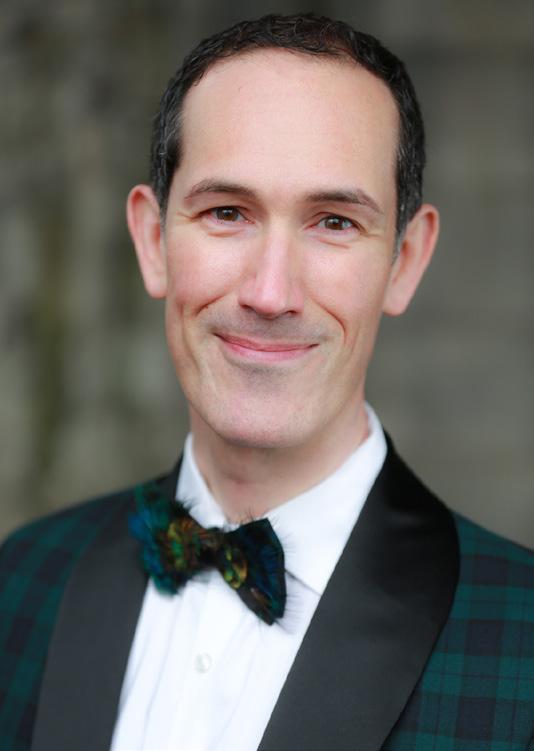
I am struck by how rarely we discuss how to process a student leaving our studio, despite many of us having experienced it. What keeps us from having a frank conversation? Can we move past the vulnerability of perceived failure long enough to learn how to navigate this unfortunate — and hopefully rare — occurrence?
There are a couple reasons such a conversation might be challenging. For starters, many of us are deeply invested in our jobs — perhaps too invested. As Derek Thompson argues in an article for The Atlantic, “workism” — the act of centering one’s identity around their vocation — has become an epidemic, especially among college-educated, whitecollar workers. This is partially due to the fact we do not produce a concrete product — our work is more ephemeral.1 Given this, we may be more prone to take failure personally. Psychologists offer the following definition of failure within a vocation:
Failure is defined as an experience in which (a) achievement is integral to one’s personal identity and accompanying sense of self-worth; (b) one feels a personal sense of responsibility for the outcome; (c) lack of success has significant consequences in psychological, professional, and/or inter-personal domains; and (d) one’s personal definition of self, the experience, and the success-failure continuum is integral to the process.2
Assuming we can acknowledge and move beyond these challenges, what are some practical solutions for handling
the sting of a student leaving our studio? Let’s consider some proactive measures and healthy responses.
First, as Thompson’s article suggests, creating a work-life balance is a wonderful antidote. This includes things like setting healthy boundaries with clients, fostering relationships outside of the voice studio, and investing in regular self-care. Of course, these are easier said than done. I, for one, struggle with boundaries. I want to be seen as accommodating by my clients, and yet, this sometimes leads me to overextend myself and feel resentful when it is not acknowledged. In her book, “Connected Teaching,” Harriet L. Schwartz discusses the importance of developing healthy boundaries while also allowing them to remain complex and evolving.3 This reminds us that work-life balance requires a similar blend of mindfulness and flexibility.
“It’s important to remember that, 99% of the time, it is not about you at all.”
Next, we can create an initial assessment process that is hospitable and is centered on our clients’ goals and challenges. As Elizabeth L. Blades writes in A Spectrum of Voices, “The first meeting and lesson with a new student is very significant. It initiates the relationship between the student and teacher, establishes the learning climate, and serves as a catalyst for ensuing work.”4 How do we assess a new client’s skills and opportunities for growth while still centering their own goals? How do we discuss our work as voice teachers and how this may intersect with the student’s interests? How do we co-create a definition of safety in the voice studio, knowing every student is different? Developing a clear outline for the work to come may give both you and the client a sense of purpose and help develop a healthy, equitable student-teacher relationship.
When interviewing psychologist Dr. Ritu Agarwal for my podcast “Wholehearted Voice Pedagogy,” they noted following a research-based assessment framework while
asking clients, “How are things going for you?”5 What would it be like for us to adopt a similar framework in the voice studio? Can we ask clients for feedback on what’s working and what adjustments they may need as we continue? “The more opportunities we provide students to share input about their vocal journey, the better we can adjust our approach, which can strengthen the psychological contract.”6
There will be times, of course, when a client will leave us, regardless of any proactive measures we may take. Independent voice teacher Felix Graham offers this word of comfort:
It’s important to remember that, 99% of the time, it is not about you at all. It may be that the client has things going on in their life that make it not a good time to be working on this. A lot of times, there are financial considerations. Sometimes, you’re saying things they absolutely need to hear, but they’re not ready to internalize the process and they need to be at that point before they can move on. There’s also what I call “the specter of teachers past,” where there are things this person has going on in their experience that just prevent you from reaching them.7
Knowing this, how can we find closure? We might start by attempting to objectively assess the severed relationship. In a 2022 article, researchers outlined a Competence Measure of Individual Teacher-Student Relationships (COMMIT) questionnaire to assess three aspects of teacher competence: affect-motivation (attitudes or beliefs), knowledge of theories related to dyadic relationship-building (e.g. attachment theory, self-determination theory, etc.), and self-efficacy (keeping emotions in check during conflicts, etc.).8 While perhaps more academic than practical for our purposes, could we adapt the questionnaire into a simple SWOT (Strengths, Weaknesses, Opportunities, Threats) analysis of our client relationship? What can we glean from this assessment and how might it inform our relationships with other clients?
Next, we can follow the advice of psychologist Nancy A. Newton and her colleagues, who outline how to navigate failure in the workplace:
• Stop — “Acknowledge failure in a timely way that minimizes negative impact on self and others. Maximize capacity for effective decision-making: gathering of relevant data, consultation with key players.”
• Regroup — “Establish emotional equilibrium. Instill a perspective that facilitates effective management of

the practice repercussions of failure and psychological integration of the experience.”
• Lean — “Restore and strengthen self esteem, developing a more accurate self-concept” and a “deeper commitment to transcendent personal values.”9
“Creating a work-life balance is a wonderful antidote. This includes things like setting healthy boundaries with clients, fostering relationships outside of the voice studio, and investing in regular self-care.”
Sometimes, time itself offers the best perspective. Luvada Harrison shares the story of a student who reached out to her several years after abruptly leaving her studio:
Fast-forward to 2021, that same young lady called me on my phone and said, “I know this is a shock. I just had to call you because I’m teaching now, and I hear your voice in my head. And I knew I had to call you and say, ‘I’m sorry.’ It was immaturity on my part with some of the things I said to you, because what you were doing was in my best interest. And now that I’ve matured and am teaching, I have a better understanding of the way you did things.” You could have picked me up off the floor. I never expected that.10
Losing a student may never feel comfortable, but I believe it can be less painful when we take proactive steps and
develop healthy responses. We hold the amazing capacity to simultaneously offer ourselves grace in the midst of failure while striving for excellence. Our ability to live within that duality will not only strengthen our resilience, it will keep us open to growing alongside our clients.
1. Thompson, Derek. 2019. “Workism is Making Americans Miserable.” The Atlantic, February 24. 2019. https://www. theatlantic.com/ideas/archive/2019/02/religion-workismmaking-americans-miserable/583441/
2. Newton, Nancy A., Khanna, Charu, and Thompson, Jennifer. 2008 “Workplace Failure: The Last Taboo.” Consulting Psychology Journal: Practice and Research, Volume. 60, No. 5. 229.
3. Schwartz, Harriet L. 2023. Connected Teaching: Relationship, Power, and Mattering in Higher Education. New York: Routledge, 41.
4. Blades, Elizabeth L. 2018. A Spectrum of Voices: Prominent American Voice Teachers Discuss the Teaching of Singing, 2nd ed. Lanham, MD: Rowman & Littlefield, 109.
5. Sisco. David. 2025. “Teachers & Therapists: Similarities & Differences.” Wholehearted Voice Pedagogy (Series 1, Episode 4). Video: 27:03. https://www.youtube.com/
watch?v=QWN2VcAeJ88.
6. Sisco, David. 2025. Wholehearted Voice Pedagogy: An Integrative Approach to Training Vocal Artists. London: Routledge Press, 109.
7. Sisco, 107.
8. Borremans, Liedewij F.N. and Spilt, Jantine L. 2022. “Development of the Competence Measure of Individual Teacher-Student Relationships (COMMIT): Insights Into the Attitudes, Knowledge, and Self-Efficacy of Pre-Service Teachers.” Frontiers in Education, Vol. 7 (March). https:// doi.org/10.3389/feduc.2022.831468
9. Newton, Khanna, and Thompson, 234.
10. Sisco, 109.
David Sisco (he/him) is adjunct voice faculty at NYU Steinhardt and maintains a private studio in New York City. In addition, he regularly lectures and leads workshops nationally and internationally. Sisco co-authored “Mastering College Musical Theatre Auditions” (3rd ed) and “Performing in Contemporary Musicals” (Routledge) with Laura Josepher. His latest book, “Wholehearted Voice Pedagogy: An Integrative Approach to Training Vocal Artists,” was just released by Routledge this past summer. He is also the creator of the “Wholehearted Voice Pedagogy” podcast, available on all streaming platforms. davidsisco.com

Intermezzo is a weekly compilation of news clips about the singing profession, in addition to NATS news, that is delivered to each member’s inbox. Intermezzo tackles today’s most relevant issues, gathered from sources like the Associated Press, the New York Times, Financial Times, and the leading industry publications. It is delivered to the inboxes of teachers of singing in the United States, Canada and more than 35 other countries.
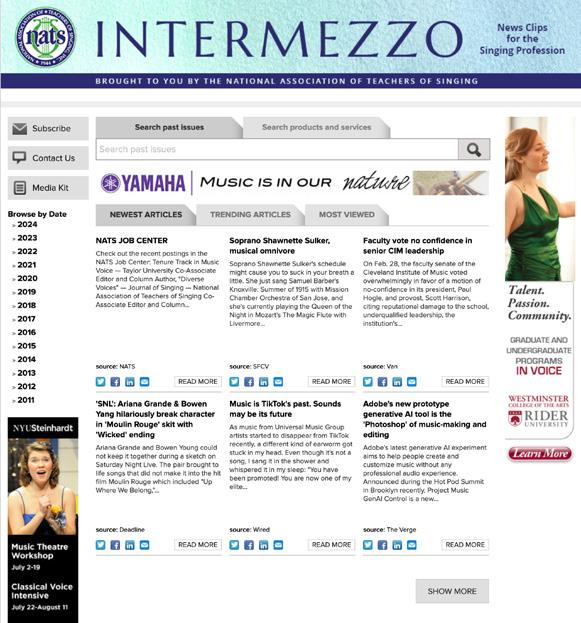
Designed to recognize and support NATS teachers with no more than 10 years of teaching experience, this grant will help selected winners attend sessions, network with colleagues, and enjoy all the benefits available at the NATS Conference.
Winners will receive up to 59 th NATS NATIONAL CONFERENCE
$750.00
San Antonio, Texas July 3–7, 2026 to pay for expenses for travel, housing, registration, food, and other related costs for attendance at the
Materials and Procedure –Submit the following materials via online application:
◆ Cover letter explaining your reasons for applying for this award.
◆ Résumé including a summary of Chapter, District, and Region NATS activities, including names and contact information for two references, plus two letters of recommendation.
Completed applications with all required materials must be received in the NATS National Office by the deadline date. Late entries will not be considered for the award.
◆ Applicants must be an Emerging Professional or Professional member in good standing, with no more than 10 years of full-time teaching, or the part-time equivalent.
◆ Applicants should be active in NATS Chapter and Region activities.
◆ For 2026, applicants must be from Cal-Western, International, Mid-Atlantic, Mid-South, New England, Southeastern, Southern, or Texoma regions. Applicants from other regions will be eligible for the 2028 awards.
◆ Prior participants in the NATS Intern Program and winners of the Emerging Leaders Award will not be eligible to apply.
Submit your application today at nats.org

Ayear ago, I left the mountains of Colorado and what I had once envisioned as my dream job. I now live in Paraguay, working on an education-based nonprofit, an idea conceived somewhere between a canceled opera and a flight to South America.
By John Clayton Seesholtz
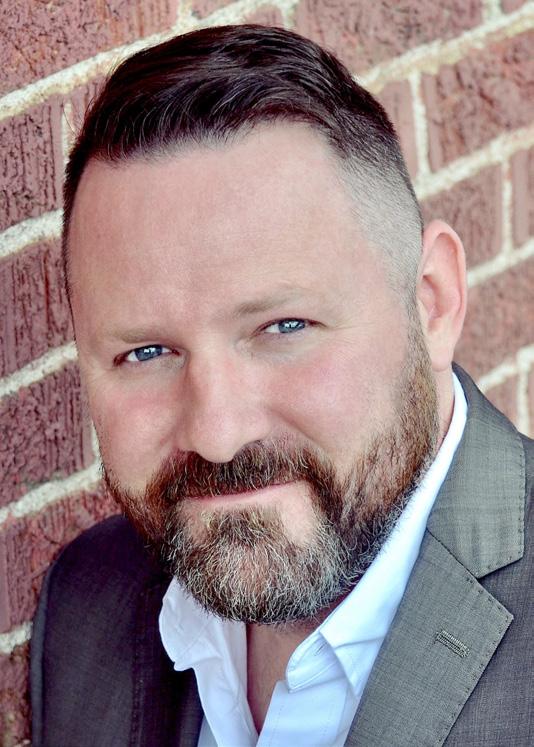
In the spring of 2020, we were all reconsidering what the future might hold. I had just completed preparations for the title role in Verdi’s Macbeth, an opera that is largely an exploration of psychological unraveling. It felt like an oddly fitting parallel. The production was, of course, canceled due to the emerging pandemic. At the time, I held a prestigious academic position I felt wholly unworthy of. Impostor syndrome is an exhausting force. That exhaustion intensifies when one labors endlessly to convince others, and oneself, that the quiet voice of self-doubt is unfounded.
This is a familiar experience for many people with dyslexia, who are often first marked as “different” in childhood. From that point forward, the act of learning becomes entangled with inherited labels such as “slow” or “behind.”
In the years that led to the pandemic, I unconsciously placed myself beneath the towering performance legacies of my colleagues. An internal narrative began to emerge, one that told me I had to achieve greater accomplishments, and that through continued effort, I might someday be worthy of the recognition I had received. An endless modality of becoming.
“For the first time in years, I paused. The world paused. Silence took hold.”
As time went on, I accepted every opportunity that I believed might further my career. During my tenure review, a colleague described me as a “yes man.” I believe he intended it as praise. I heard it as a diagnosis. I lived in a constant state of low-grade anxiety, perpetually wondering if I was doing enough. Enough for tenure. Enough for my students. Enough to silence the inner voice of inadequacy. Ironically, all of that fear had built an impressive eight-page CV that I could puff my chest out to and say “Here, here is the proof that I belong here,” absent of the feeling that it was enough.
When academia shifted to online instruction, I resolved to “lean in,” a phrase that sounds empowering until one realizes it often just means never stepping away. By April, I was falling asleep with my phone in hand, still composing responses to unfinished emails. Each morning, my inbox renewed itself with a fresh tide of obligations. I worked tirelessly through our jury process, offering detailed feedback with curated resources and links. All I cared about was ensuring my students had something, anything, that might sustain their artistic growth. But I was rapidly approaching total depletion.
Then, unexpectedly, stillness arrived. The semester ended. There were no conferences, no rehearsals, no deadlines, and no summer teaching programs. What emerged was a sense of calm, what people with boundaries might simply call a break. For the first time in years, I paused. The world paused. Silence took hold.
During the pandemic, I lived in a remote mountain cabin where the midsummer air hummed with energy. That first season, the world felt impossibly distant, like a piano playing in another room. The aspen trees moved as if with breath itself, rippling like a forest in communion with the sky. The world unfolded around me. My dog Sage stirred minor conflicts with the local wildlife. Squirrels quarreled. Birds made their declarations. All of it blended into something reminiscent of urban noise, a background hum only perceptible when one truly listens. It was vibrant, alive, and unconscious of its own richness. Most days, the sky was impossibly blue, as if the clouds had gone on strike.
In that space, I began listening to Eckhart Tolle and archival recordings of Alan Watts. Their voices, set against the natural world, formed an unusual counterpoint. Resting in my hammock, I often drifted into sleep amid this new atmosphere, a reprieve from the weight of the semester. In those moments of listening, Tolle, Watts, and that hum of the forest I began to hear helped illuminate my ego — not as an adversary, but as a patterned response within myself, one that required compassion rather than condemnation.
Academia is, in many ways, an ideal environment for constructing an elegant, productive, and highly functional ego. One reinforced and modeled at every turn. That ego brings titles, deadlines, curated biographies, and
applause. These are the costumes of meaning. Releasing my attachment to it has been slow, imprecise, and difficult. It’s like cutting an orange with child safe scissors. It’s messy. The years that followed were a confrontation. Life brought with it a raw kind of clarity, though not always in real time. There was illness, discomfort, professional dissonance, the end of a long-term relationship, the sudden death of my sister, and the upheaval of a carefully constructed life. At times, it felt as though my inner world stood in direct opposition to the external one. These were the emphatic hurdles that offered a north star toward a more honest way of being. Amid the chaos, a deeper shift occurred. I began to recognize the cognitive static I had long mistaken for identity. As things unraveled, a new perspective emerged, one that held rationality and compassion in balance. I started to feel the freedom of releasing beliefs, roles, and patterns that no longer served me.
“If you are grateful for your life — which I think is a positive thing to do — then you have to be grateful for all of it.
You can’t pick and choose what you’re grateful for. ‘What punishments of God are not gifts?’”
—Stephen Colbert, quoting J.R.R. Tolkien
Gaining perspective on the ego allowed me, at last, to set it down. That mind-made version of Self, so hungry for validation and so afraid of stillness, could finally rest. I saw how easily I had confused ego with purpose. Yet the more closely I observed its construction, the more I saw how it obstructed connection, equanimity, and presence.
“I am not the sum of my accomplishments. And impact does not need to be indelible to be meaningful.”
In the quiet undoing of my former life, I was drawn inward. To memory. To a younger self. I remembered a boy of 14, earnest and defiant, who once protested McDonald’s over their use of Styrofoam. A child who believed that poster board and markers could reshape the world. He danced barefoot in the grass. He trusted love as a compass. Through his eyes, I began to glimpse what would become The Canciones Project. Not an act of ambition, but an expression of alignment with my essential self. What we have created with The Canciones Project is modest. Some may say we have merely produced editions of forgotten art songs. But for me, it is something more. It is
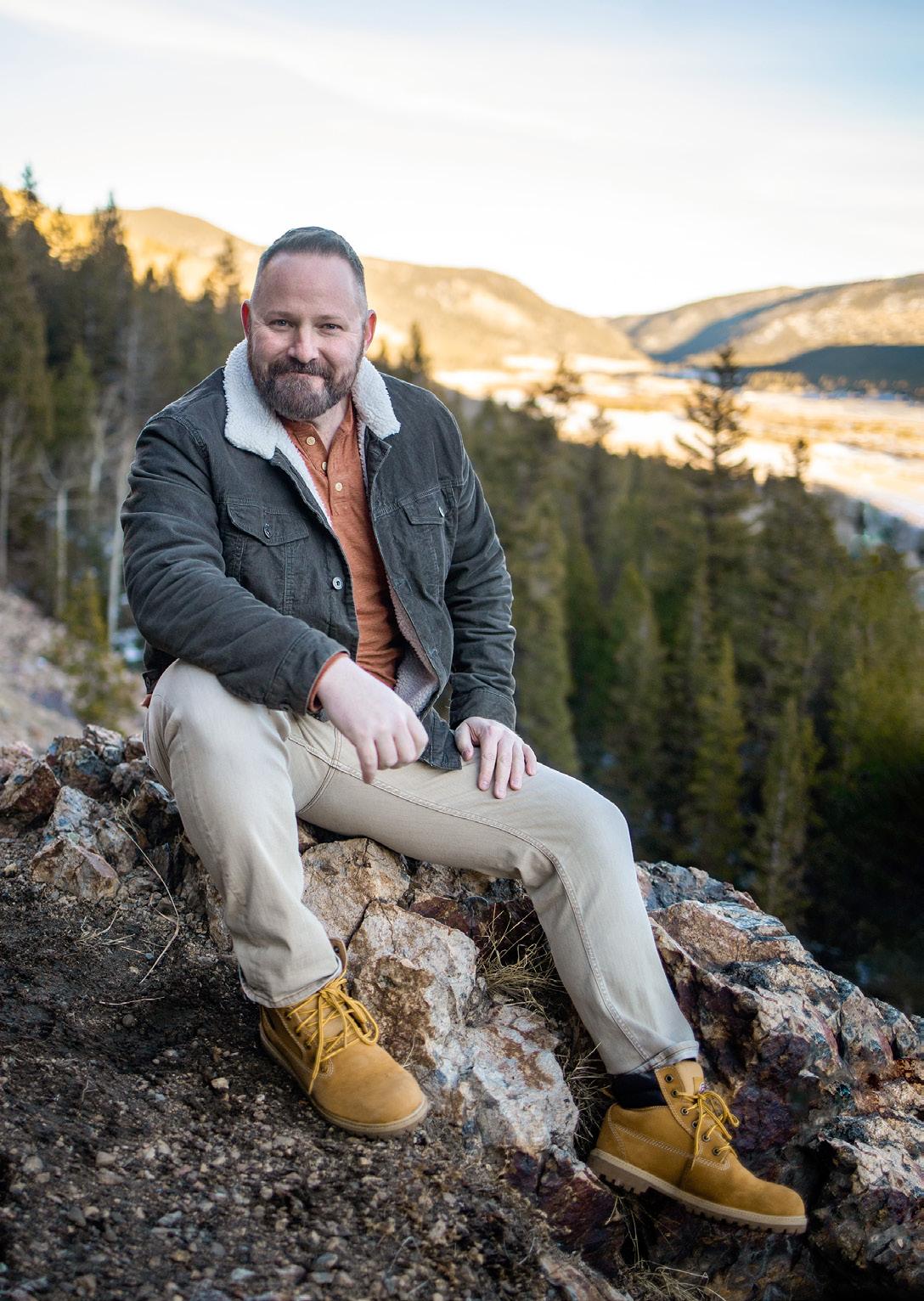
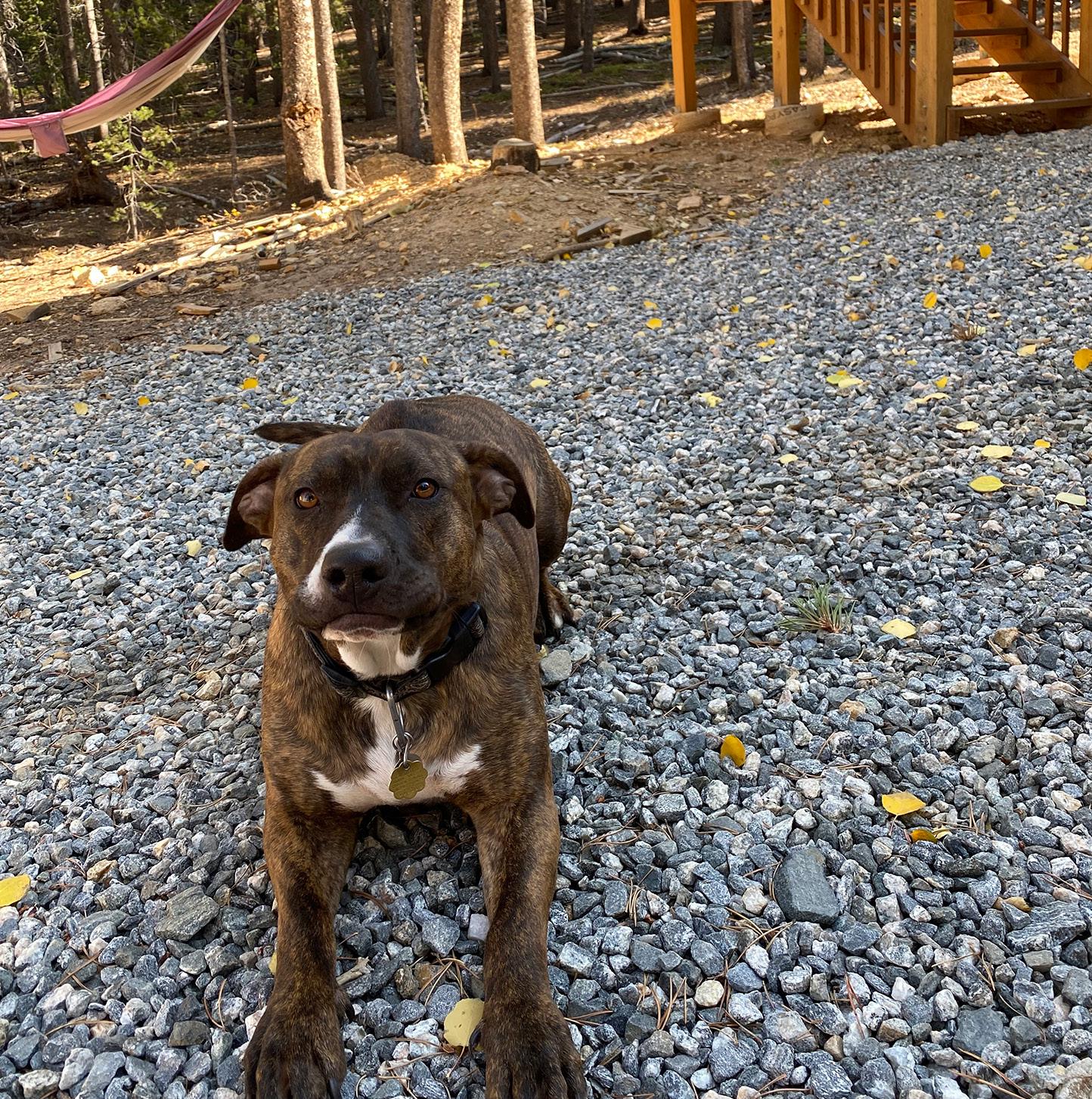
a gesture, a moment of refusal. Refusing to allow artistry, heritage, and beauty to be lost. It is our way of declaring that the music of Latin America belongs in every rehearsal room, on every stage, within every conservatory. Especially in the hands of students who have never seen themselves reflected in those spaces.
I once thought that leaning in meant doing more, working harder, exceeding every expectation. Now, I believe that leaning in means remembering who you were when no one was watching. It means returning to your truest nature. To the child who sang, who played, who built entire worlds from soil and imagination. Everything unnecessary must eventually fall away, worn down by friction, until the self that remains is smaller, simpler, more authentic. A self no longer driven by excess but anchored in truth.
I am not the sum of my accomplishments. And impact does not need to be indelible to be meaningful.
That kind of deep change, that once felt institutionalized within my being, required disruption. In order to make the huge life shift I felt called to pursue, I had to be okay with upsetting people. In that final year of academia, I worked multiple jobs, sold most of my belongings, traded in my vehicle for a travel van, and practiced the art of letting go. All of it was to make space for something unknown, but something I knew I had to pursue.
you moved, changed your contact information, or your email?
So now, when I think about leaning in, I allow myself to feel. To soften. To be loved. To surrender. And in that softness, I find myself fully here, still listening to the hum of the world in this beautiful country of Paraguay. Traveling through Latin America. Meeting new friends. Surrounded by music, laughter, and community…
And perhaps, for the first time in a long while, it feels like enough. * * *
These reflections have been shaped not only by lived experience but also by the insights of Eckhart Tolle, Alan Watts, my son Bradley, Gabe, Melissa, and the broader cultural dialogue around ego, ambition, and the narratives we inhabit.
Dr. John Seesholtz, baritone, is executive director and cofounder with Dr. Melissa Lubecke Sarabia of The Canciones Project, a non-profit organization promoting Latin American music in academia. In 2025, he serves as resident professor at CEMTA Universidad in Paraguay. A seasoned performer, Seesholtz has sung across the U.S., Europe, and Latin America, with recent roles including Germont, Gianni Schicchi, and Iago. His publications explore bel canto, voice health and longevity, vocal pedagogy, and elevating marginalized communities through music literature. In August 2025, he debuted Elías (Mendelssohn) in Latin American Spanish. He studied at the University of Michigan, University of North Texas, and UT San Antonio. thecancionesproject.org

Members: Now is a good time to update your information on NATS.org. Keeping your contact information up-to-date ensures that you won’t miss any of our member benefits or upcoming events.
To make updates, log on to your Member Home Page (your email address for NATS correspondence is your Login). Then, click the “My Profile” link on the right.
You also can call the NATS National Office at 904-992-9101 for assistance.
March 2025 – August 2025
Jacqueline Collett
Carol Kimball
Deanna McBroom
Elayne Soltz Penn
By Karen Michaels
Ifinally get it. It took me a while, no doubt. “No” to multitasking. “Yes” to multihyphenate. That small shift in mindset changed everything for me. I was diagnosed with “hyperactivity” as a kid. Many of my teachers would say:
“Karen is so nice, but she needs to sit still and stop talking and trying to help everyone!”
Today we call that ADHD — but back then, it was just:
“Karen, you’re too much.”
Thank goodness for supportive, loving parents — and an incredible 4th–6th grade teacher (Ms. Schwisow, I’ll NEVER forget you!) who allowed for my “idiosyncrasies.” Like singing an Elton John song as a book report. Or writing a book about horses and snow when the assignment was, well… just a bit different.
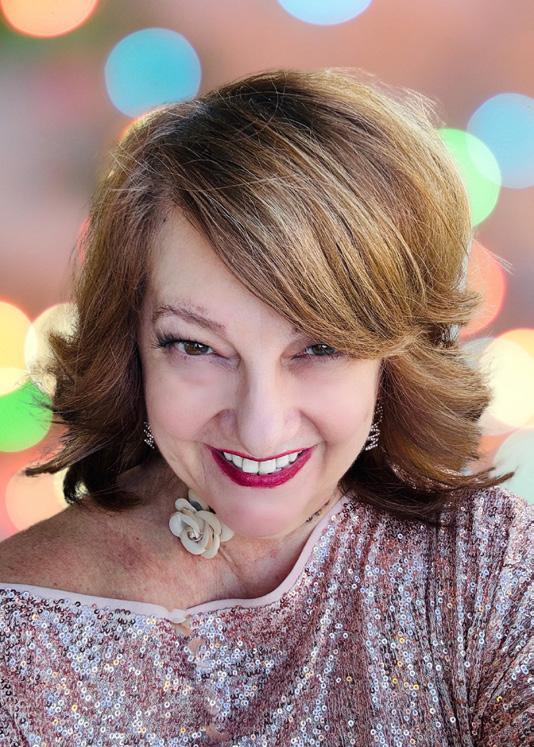
“Leading a multi-hyphenate life allows me to have multiple creative outlets without chaos.”
And admittedly — it’s true: Traditional multitasking doesn’t really work for me. Honestly, it doesn’t really work for anyone. Trying to do all the things at once? That’s messy, inconsistent, and TIRING. But realizing I’m a multi-hyphenate? Wait — that’s different. In fact, the first time I heard someone say that to me — my friend and colleague Nicole — it clicked. “Multi-hyphenate” made perfect sense.
Why Multi-Hyphenate Living Works (Especially for Brains Like Mine)
Leading a multi-hyphenate life allows me to have multiple creative outlets without chaos.
It gives me structure and purpose. I get to work in different modes throughout the day:
• Teacher
• Performer
• Coach
• Content creator
• Writer
• Podcaster
And here’s the magic: each one fuels the others. It’s not about doing everything at once; it’s about building a life where passions fit together instead of competing. As an independent teacher and multi-business owner, this isn’t just a preference — it’s a survival strategy. It keeps me energized, and keeps my brain deeply engaged, focused, and, frankly, organized. When your career becomes your own creation, for independent teachers like me — those of us not tied to institutions — the work is personal. We create the studio we want. We choose the students we want to teach. We build the curriculum that feels right — for them and for us.
For a long time, I thought that meant sticking to one clear path: typical techniques, traditional repertoire — so-called tried-and-true methods many of us grew up learning. But over time, my students wanted more. And so did I. They wanted to:
• Sing pop
• Accompany themselves at parties
• Create audition videos for musical theater
• Post clips of their singing online — and get help doing it
At first, I wasn’t sure if that “counted” as teaching. Spoiler alert: It absolutely does. That’s when I leaned into something that’s now at the heart of my teaching: hybrid learning.
With the help of my own mentor — not just my music coach, but a life mentor — I worked through how to make it work. We had long conversations about how I taught myself to play pop music by ear mixed with music theory, how I arrange for my gigs, how I could bring all of that into lessons while still teaching solid technique. Now, my studio is built on a hybrid approach:
• Student-led learning (What excites them?)
• Pop and jazz piano by ear and patterns (The way I taught myself)
• Pedagogy and vocal health (Because technique does matter)
It’s not one or the other. It’s both. And it works.
That openness to multi-hyphenate life led me to new creative paths, something else I never expected. It started small. I helped a local company with their “socials” (social media), guided students making performance videos and “self-tapes” for auditions, offered friends tips on Instagram captions and hashtags, and I showed teachers how to do social media without feeling (as the kids say) cringey. Then it snowballed. Other performers, educators, and creative entrepreneurs started asking for help. Before I knew it, I had another business.
When the pandemic lockdowns hit, that side of my work exploded. Singers, teachers, actors all had to be online, and fast! They needed help telling their stories digitally, building their brands, and learning how to connect in new ways. So I leaned in. I taught what I knew. And I learned even more along the way from all of those brave people. The surprise was that “side path” didn’t take away from my music life. It enhanced it. Helping others find their voice online has actually made me a better voice teacher in the studio, and a better performer, too.
One of my core beliefs is something I call the butterfly effect. In scientific and mathematical chaos theory, the butterfly effect is “the sensitive dependence on initial conditions in which a small change in one state of a deterministic nonlinear system can result in large differences in a later state.” In my simple creative application of the theory, it’s the idea that showing up in different ways — even in small ways — creates ripples that can change your life, your work, and the lives of others.
“That’s the power of saying yes to new creative outlets. Sometimes you discover skills you didn’t even know you had.”
Here’s what I’ve noticed. Writing blogs and newsletters made me a sharper communicator in lessons. Learning to make short videos improved how I explain concepts to students. Helping people build their online presence reminded me how to refine my own. I didn’t expect writing to become so important to me. And honestly, I didn’t think anyone would read what I wrote. But they do. And it matters. I’m so grateful I could cry.
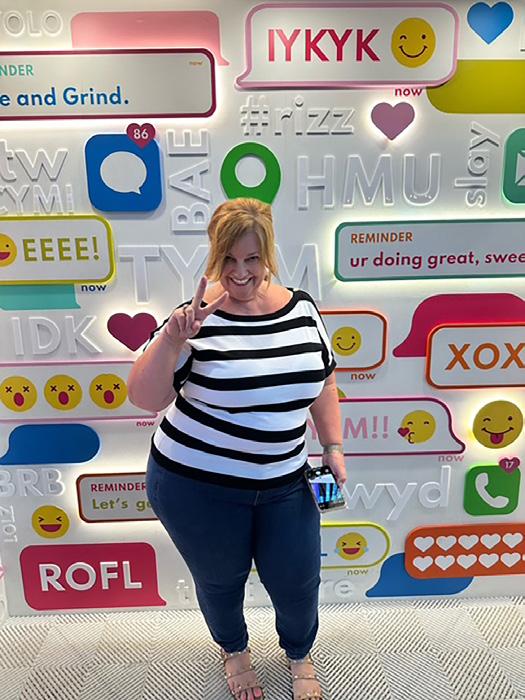
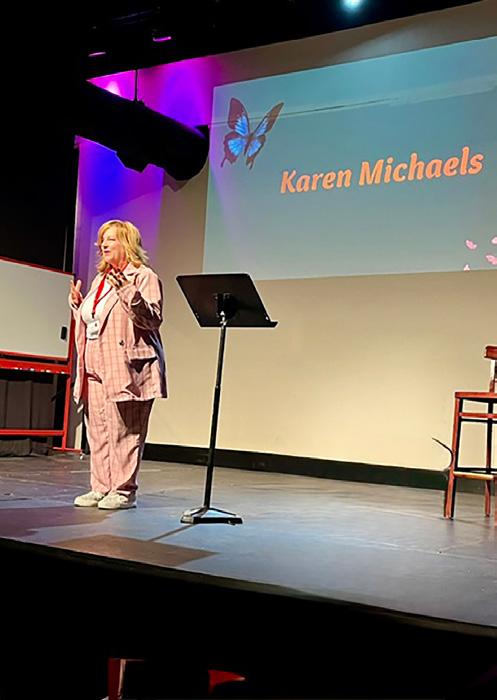

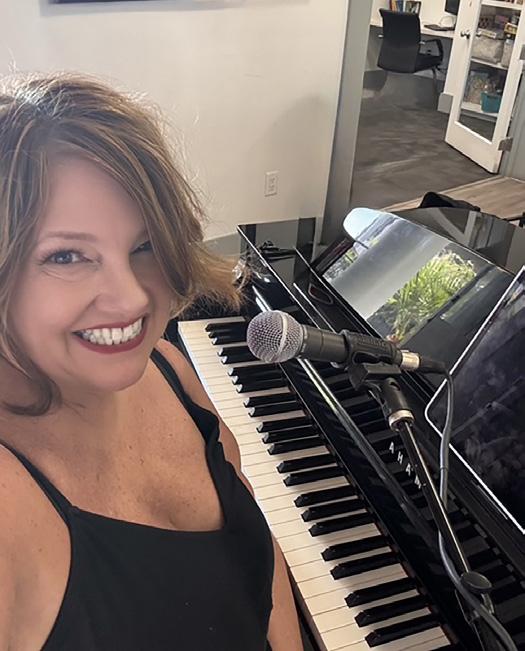
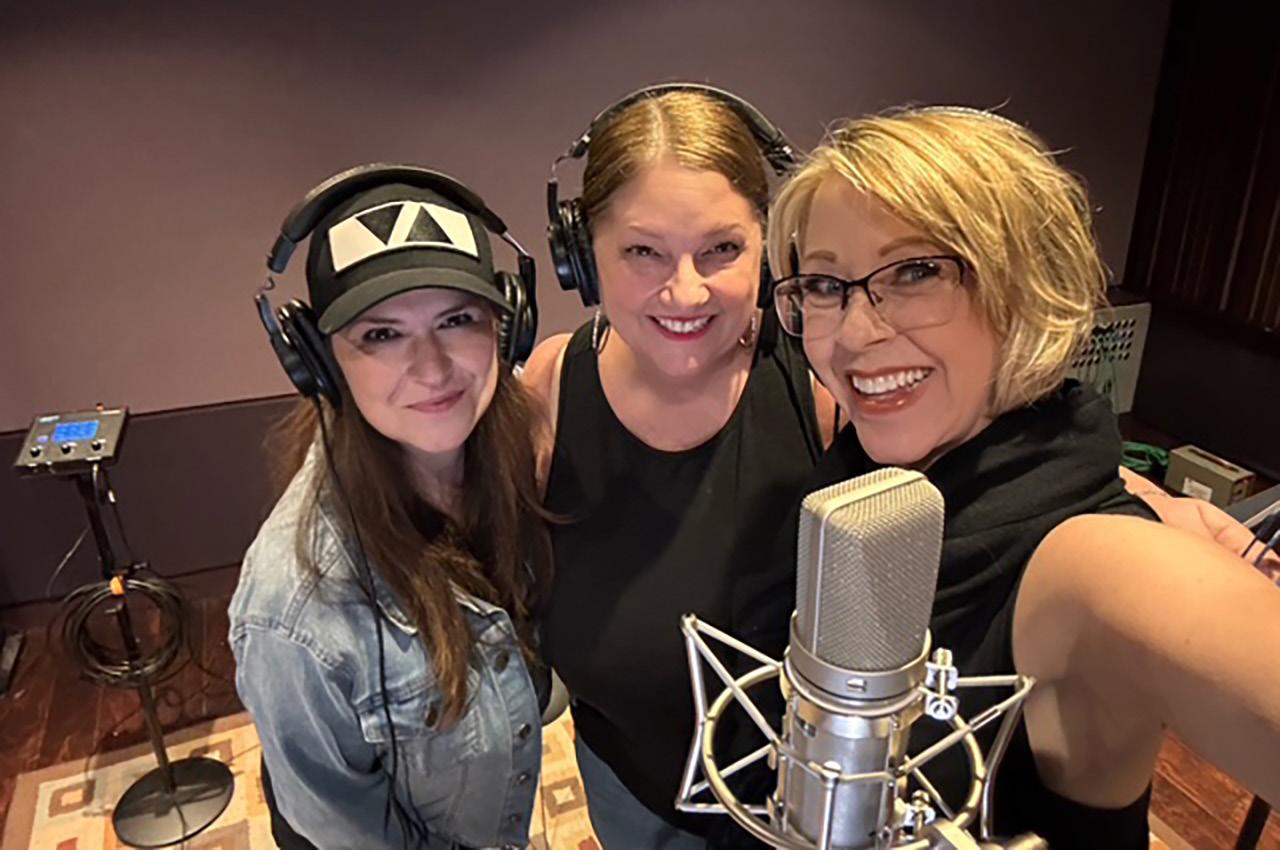
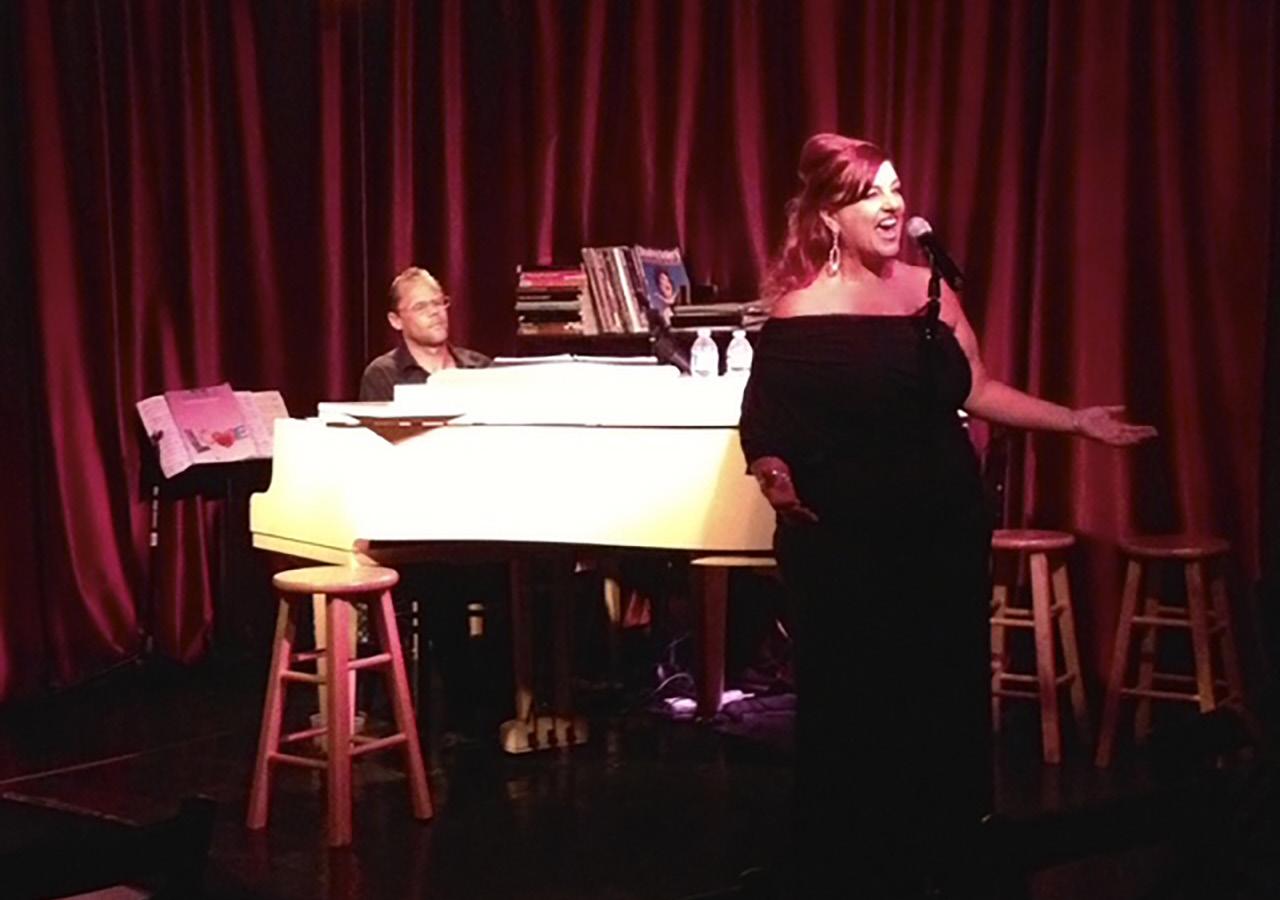
That’s the power of saying yes to new creative outlets. Sometimes you discover skills you didn’t even know you had. Sometimes you help others in ways you never planned. The world needs more creative professionals who aren’t afraid to cross-pollinate their skills. If you do want to build a multihyphenate career? Do it.
“The world needs more creative professionals who aren’t afraid to cross-pollinate their skills.”
One of the reasons I’ve been able to grow this way is because of National Association of Teachers of Singing and the work I do as the official Social Media Manager for NATS.
Being part of this community has kept me learning and connected, up to date with voice science and new teaching strategies. It has also given me an opportunity to listen to other teachers’ experiences. For me, NATS has been a place to grow — not just as a teacher, but as a performer, a business owner, and a creative person. That’s the beauty of this organization. There’s room for all of us.
• The university professor
• The private studio teacher
• The musical theater coach
• The pop singer
• The crossover artist
• The classical singer
• The multi-hyphenate
Through NATS, I’ve been able to learn from the best — and also share what I’ve learned in return.
That kind of exchange is exactly what helps independent teachers like me build careers that are flexible, modern, and real.
I’m in the Worktirement phase of my life. It’s not about quitting work. (That’s a LONG way off.)
It’s about building a creative life I love: working with clients and students I care about, performing gigs that make me happy, and choosing projects that align with my values AND my time with family and friends. Truthfully, I don’t have plans
to retire in the traditional sense. (As you can tell, there’s not much “traditional” about me.) Can you imagine this brain without assignments?! Yikes! But I am working on living a life that feels free. My goal is to work because I want to work, not because I have to work. And when I need to shift or rest, I will. Worktirement, for me, is creative freedom, meaningful work, and time for the people and experiences that matter the most. Creative freedom.
One thing I always tell my students and clients is that you don’t have to turn every hobby into a side hustle for it to be valuable. It’s okay to write because you love it. It’s okay to make videos because it’s fun. It’s okay to create content, sing, play, teach, mentor — or do all of the above — because it makes your life richer.
If you’re reading this and you’ve been wondering if it’s okay to have more than one passion, here’s my answer: Yes. Please do. All the permissions given. Say yes to those hyphens. Say yes to building a life that’s uniquely yours. Whether you’re teaching, playing gigs, writing, coaching, creating content, mentoring or more.
Know this:
You’re not “all over the place.” You’re expanding.
The world doesn’t need more people stuck in one lane. It needs more artists and educators who are willing to evolve, try new things, and show up fully as themselves. Say no to multitasking. Say yes to multi-hyphenate. Say yes to a creative life that’s flexible, meaningful, and joyful.
Karen Michaels (she/her) is a multi-hyphenate creative professional based in Las Vegas. She’s a voice and piano teacher, social media strategist for creatives, professional singer-pianist, talent agent with FSE Talent Agency, CEE (Chief Executive Everything) of Social Butterfly Group and a writer on Substack with hundreds of subscribers @socialbutterflygroup. As the Social Media Manager for NATS, Karen helps independent teachers and performers share their voices both on stage and online. Her teaching philosophy blends student-led learning, pop and jazz piano by ear, and solid vocal technique. Karen’s Worktirement approach includes working with joy, purpose, and flexibility while building a life that thrives creatively and personally.
The excitement continues with cash prizes after two national levels of auditions to be held July 3–5, 2026, at the Marriott Rivercenter in San Antonio, Texas.
Audition in YOUR Region’s NSA Event. Singers placing 1st through 5th in each national qualifying category advance to National Preliminary Online Screening.
NATIONAL ONLINE SCREENING
Friday, April 10, 2026 – Deadline for online digital submissions.
SEMIFINALS AND FINALS
Top 15 student-singers in national Semifinals
Top 3 in national Finals
Cash prizes awarded to 1st, 2nd, and 3rd place ELIGIBILITY
All singers ages 30 and younger on September 1, 2025. (no lower-age limit)
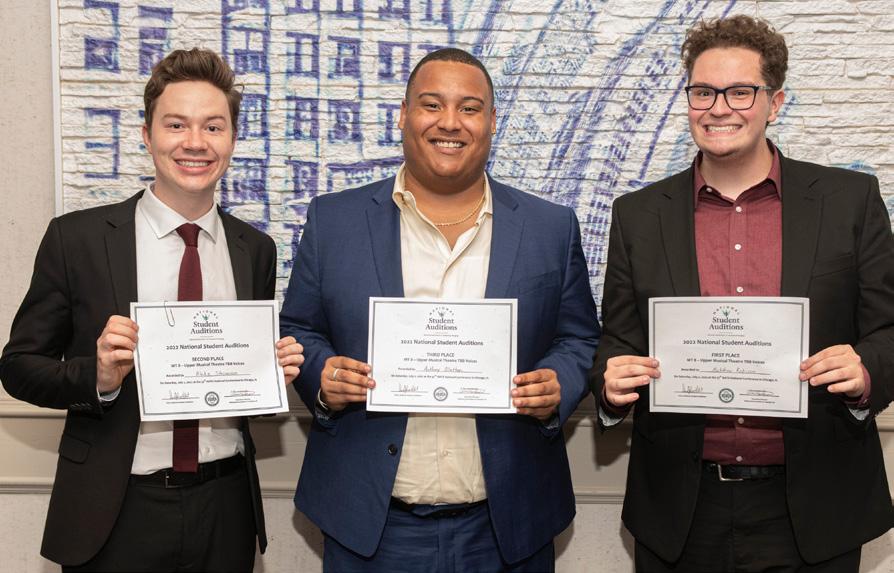
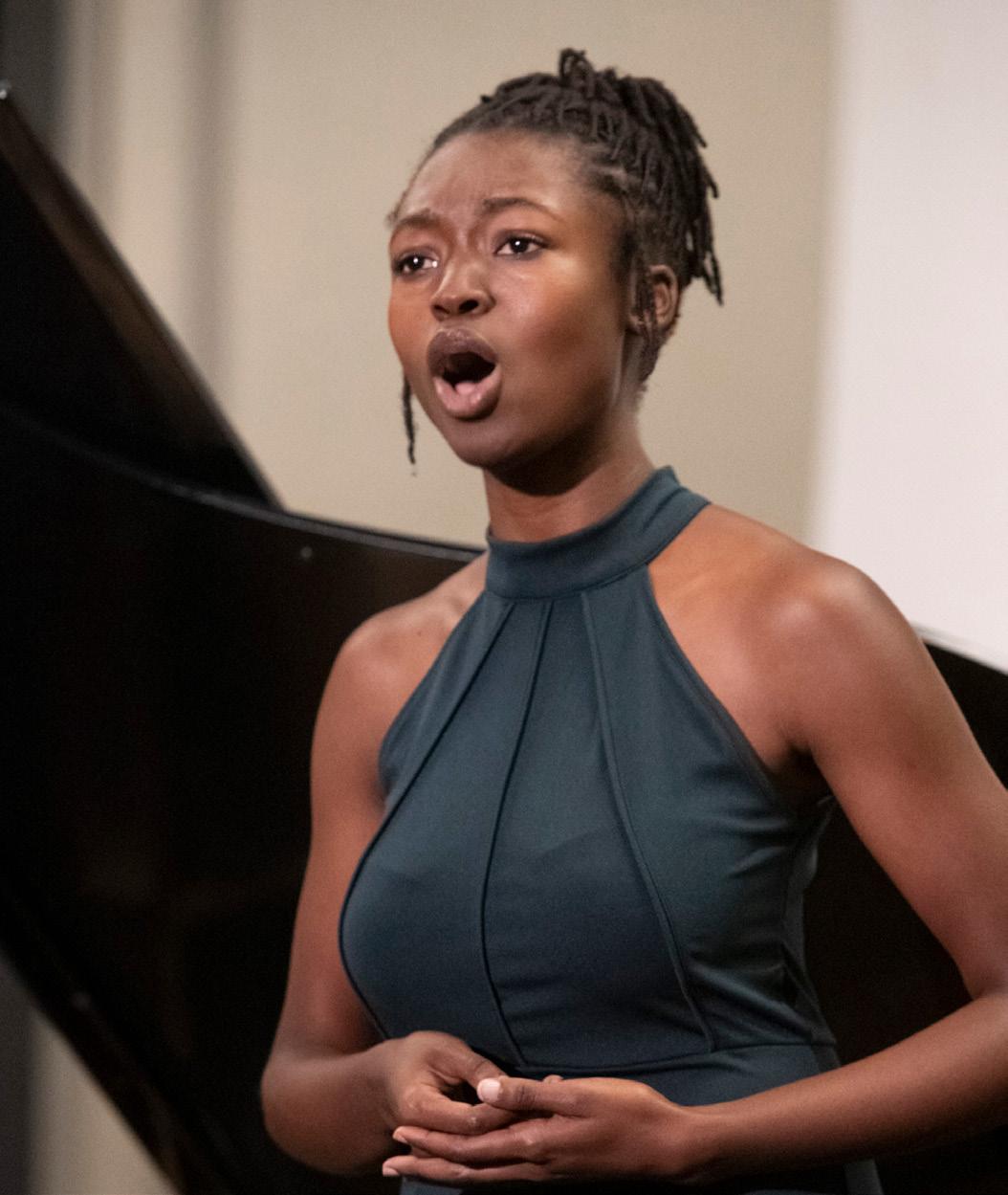
TOTAL PRIZES: MORE THAN $84,000
35
FOR 2025–2026! See NATS.org for full details.

See complete regulations and repertoire requirements at
FIRST PLACE, SECOND PLACE and THIRD PLACE prizes will be awarded in each category.
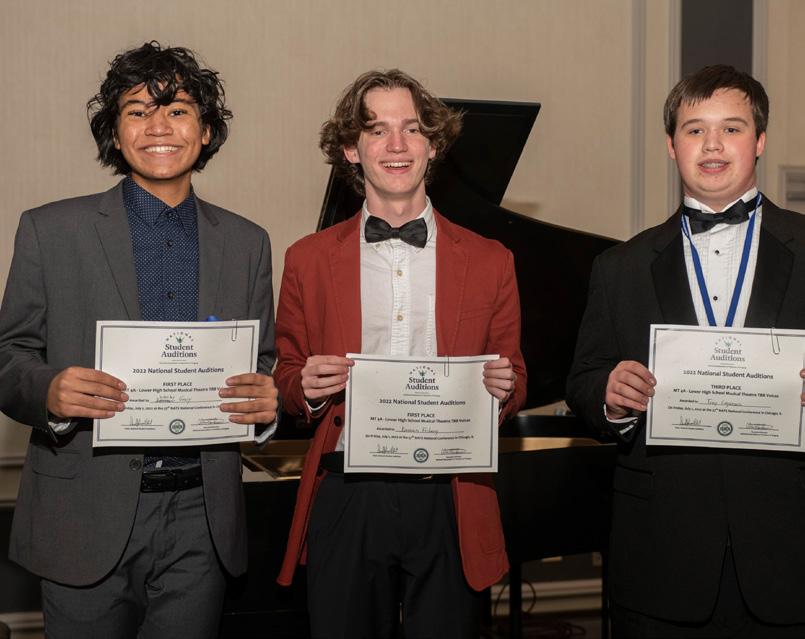
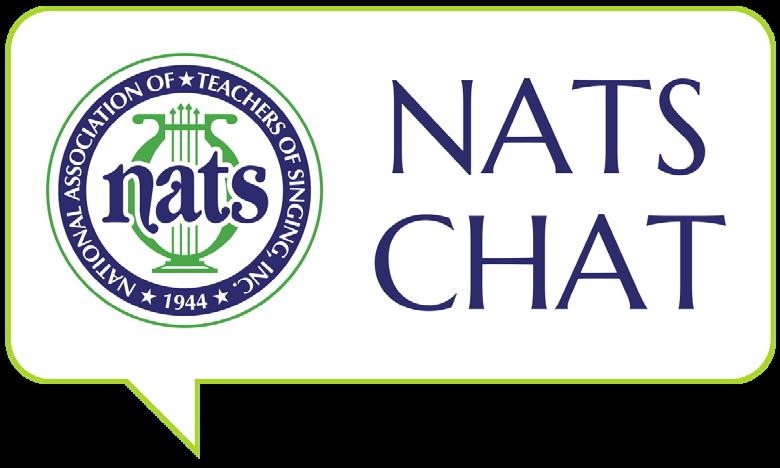

(6-7 P.M. CT; 5-6 P.M. MT; 4-5 P.M. PT)
*Unless otherwise noted
NATS Chat invites guests to discuss various topics in an online webinar. Sessions are often held the second Sunday of each month of the academic year. The host and coordinator for NATS Chat is Kari Ragan. The 2025/26 NATS Chat season is generously sponsored by Inside View Press
Branding and Business Strategies for Voice Teachers
Featuring Nick Klein and Kelly Scott
Host: Kari Ragan
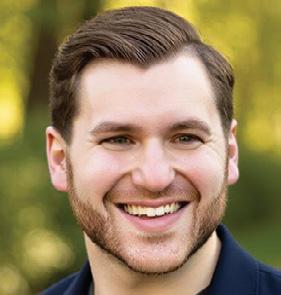
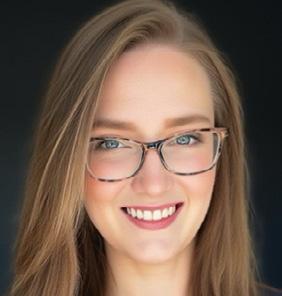
In today’s digital world, voice teachers are entrepreneurs whose personal brand reflects their values and teaching philosophy. This session will help teachers define a unique brand identity, clarify what sets them apart, and attract ideal students online. Participants will explore how to articulate their brand’s core values, mission, and messaging to ensure consistency across their website, social media, and promotional materials. Whether launching a new studio or refining an existing one, attendees will leave with actionable steps to present their brand authentically — building clarity, confidence, and connection in a competitive, fast-paced digital landscape.
Vocal Techniques of Cantorial Music and Classic Jewish Repertoire
Featuring Joshua Breitzer, Benjamin Shechter, Ethan Leifer, Yosef Shoshani, Sydney Rose Michaeli
Co-Hosts: Sharon Pesenti and Kari Ragan
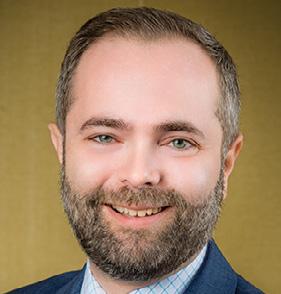
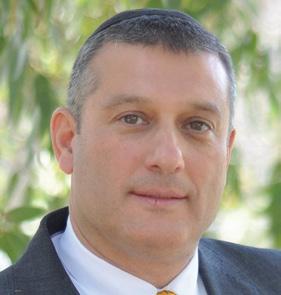

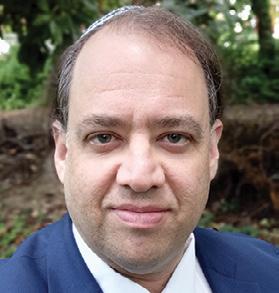
The voice of the cantor, or chazzan, draws on ancient traditions of modes, vocal agility, emotional nuance, and a resonant yet lyrical tone. Cantorial music features virtuosic embellishments, trills, portamenti, falsetto, and expressive sighs known as “krekhts” to heighten emotional intensity.
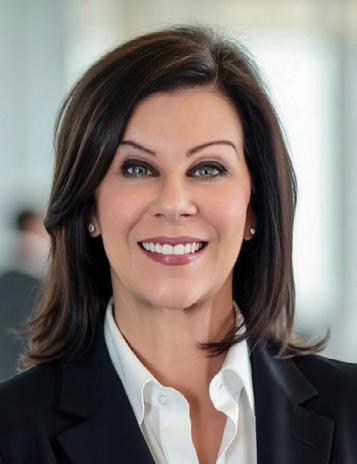
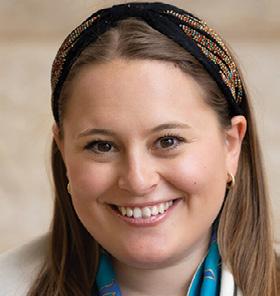
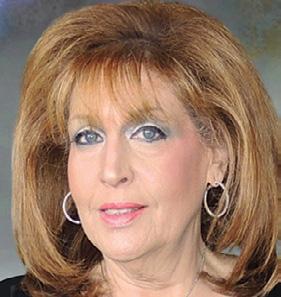
A distinguished panel of cantors from the U.S. and Israel will explore pedagogic approaches and stylistic distinctions among European, Sephardic, and modern traditions. Panelists will also share strategies for maintaining vocal health and stamina across extended services. The session will conclude with a brief look at Hebrew, Yiddish, and Ladino repertoire in classical cantorial style.
Care of the Performing Voice: Less Art, More Science Featuring Lucian Sulica, MD Host: Kari Ragan
Caring for the performing voice has long been viewed as an art — personal, nuanced, and rooted in tradition. Yet this lens can sometimes overlook the value of evidence-based practice. In this NATS Chat, we’ll explore how systematic clinical data can bring clarity to treatment, dispel persistent myths, and de-catastrophize vocal injury. We’ll examine emerging research on injury patterns, recovery, and the roles of gender and laryngeal anatomy. Whether you’re supporting injured singers or working to prevent injury, this conversation will offer practical, science-informed strategies to foster healthy, sustainable voice use in the studio and beyond.
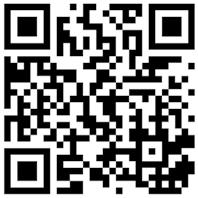

Register and view schedule at NATS.org. Watch past chats on the @OfficialNATS YouTube channel.
By Megan Durham and Christina Kent
One of my core musical memories was at a piano recital when I was 11. I was a creative young musician –eager to please my teacher yet relishing spontaneous improvisation. Feeling prepared and excited to play for an audience, I sat on the hard wooden bench in the crowded church sanctuary, confidently beginning my piece. As if from the movie, “Inside Out,” Joy was suddenly replaced with a visceral, stop-me-in-my-tracks feeling of Fear taking control. For the first time, I had the thought, people are watching me … not just looking, but listening, observing, judging. I froze. My usual polish, ease, and flair was replaced by blankness, terror, and nausea. At that moment, I could not distinguish between the statement, I make mistakes from I am a mistake The seeds of perfectionism were sown, and an inability to separate these statements invaded my musical journey. When I began intentionally unearthing my relationships with perfection, power, and agency in my teaching, I was immediately drawn to the work of Christina Kent. Christina is a mindfulness and voice instructor living in Victoria BC who has spent years chronicling her own journey with these ideas. She reflects on perfectionism’s grip on her own singing: “I realized that I had lost the capacity to hear beauty in my own voice. I felt like I wasn’t allowed to hear beauty - it was dangerous. Believing I was singing beautifully felt like letting go of high standards and not being a true musician. It didn’t feel safe. What felt safe was to constantly scan my singing for deficiencies. And yet this feeling of “safety” meant I was also disconnected from enjoyment, spontaneity, playfulness, creativity, emotional expression - basically all the things that drew me to singing in the first place.”
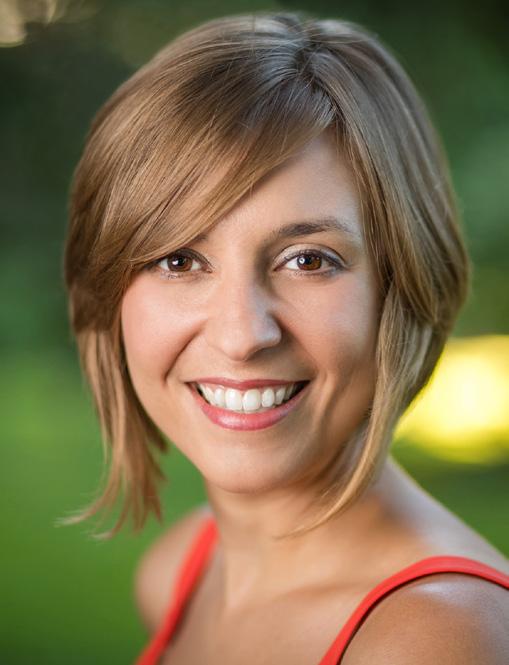
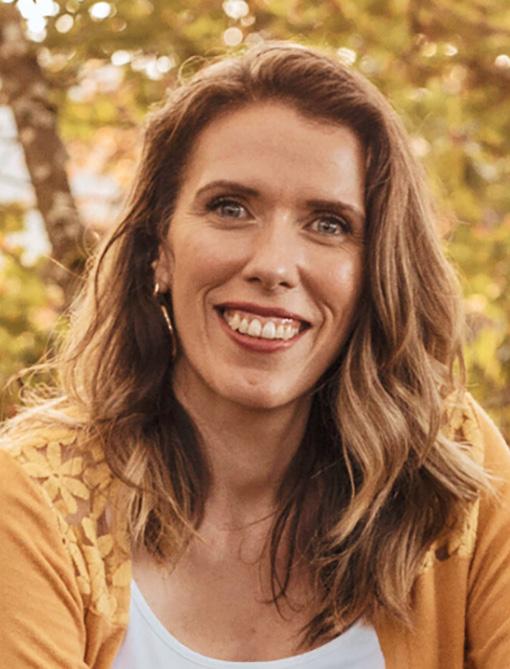
on the quality of exchange and relationship in the voice studio. We will also offer practical somatic explorations to support our individual and collective un-learning. Please take what resonates with you and leave what does not, as the invitation to say “No, thank you” is encouraged. We feel that welcoming “No” into a voice space can be a radical act of resistance! “No” need not be a stopping point, but can function as itself part of the practice–an invitation for autonomy and agency.
Perfectionism is the drive to do enough — and do it excellently enough — so that one day you might believe that you are enough. That, my friends, is a fatal sentence. There’s no coming out of that one alive, or with your identity intact. If your worth is linked to what you do and specifically to how well you do it, you will question your worth until your last breath.
—Laura Brewer, “The Practice of Perfectionism”
Perfectionism is not the same thing as striving to be your best. Perfectionism is the belief that if we live perfect, look perfect, and act perfect, we can minimize or avoid the pain of blame, judgement, and shame. It’s a shield. It’s a twentyton shield that we lug around thinking it will protect us when, in fact, it’s the thing that’s really preventing us from flight.”
—Brené Brown, “The Gifts of Imperfection”
The seeds of perfectionism are often planted early in our voice education– and can pervade not only our experience of singing, but also our lives as teachers. It can be difficult to separate a joy-filled desire for excellence and a more critical, burden-laden drive to be criticism-proof; however, perfectionism is different from high standards and can be a significant factor in teacher /singer burn-out. In this reflection, we will outline definitions of perfectionism, examine how it infiltrates voice culture, and explore its impact
Perfectionism often manifests as a chronic, nagging sense of inadequacy. For many voice teachers, years of juries, competitions, and auditions can gradually disconnect us from our original love of singing, as vocal evaluation becomes increasingly associated with shame, judgment, and rejection.
In such environments, perfectionism can emerge as a survival strategy. When the brain senses threat — emotional, social, or physical — it activates protective mechanisms to prevent further harm. Under chronic or traumatic stress, the
body prioritizes safety and clings to whatever response feels most secure. If we’re not given time or agency to process these responses, they may evolve into intractable patterns of bracing and shutdown.
One such pattern is binary thinking — categorizing people, situations, and sounds as either safe or unsafe, good or bad, right or wrong. This embodied dichotomy can become deeply ingrained, making it difficult to perceive complexity, nuance, or the possibility of multiple truths. In voice work, this kind of thinking can obscure our capacity to explore, express, and create both with ourselves and with our students. The inherent subjectivity of artistic endeavor becomes intolerable, and is instead subjugated to a rigid framework of control.
If perfectionism begins as a survival strategy, what are the conditions that necessitate its presence?
One possibility is an environment shaped by unquestioned lineage. Roots, teaching heritage, and performance practice can be invaluable components of education. When left unexamined, however, especially in a profession striving to “do better when we know better” (as Maya Angelou urged), these traditions can unintentionally perpetuate cycles of gatekeeping and power-over dynamics. Most voice teachers form their pedagogical approach based in part on what they learned and observed in their own training. There is great value in reflecting on which aspects of this lineage remain empowering, and which can benefit from interfacing with our developing cultural knowledge.
Consider the dynamics of the commonly inherited “master/ apprentice” model — a structure in which information flows from teacher to student in a one-directional, hierarchical relationship. When applied inflexibly, this model can trap both teacher and student in a cycle of disconnection. The teacher may feel pressure to pass down technical knowledge with seamless authority. Any deviation from the “correct” lineage can feel like personal failure. Students, in turn, may struggle to voice confusion or ask for alternatives, fearing an appearance of incapability or disrespect.
In highly competitive environments, it can feel impossible for a teacher to say, “I don’t know — let’s find out together,” or “Maybe a different approach is needed — let’s explore it.” With perfectionism at the helm, the student-teacher relationship becomes defensive. Both may feel they must perform a role rather than engage in open, mutual exploration.
Ironically, the space most conducive to creativity — spaciousness, slowness, and play — is lost under the pressure

to execute a tradition, a technique, a sound, an external expectation. Intrinsic satisfaction gives way to extrinsic validation. In this model, perfectionism flourishes — not because anyone intended harm, but because there was no room to fall.
Sometimes, in an attempt to protect a cherished artistic ideal, our negativity bias can unintentionally masquerade as expertise. Especially when we’ve worked hard to master a tradition, it can be deeply unsettling when something challenges the safety of that structure — whether it’s a new technical approach, musical interpretation, a student saying “No, thank you,” or an interpersonal rupture in the studio. These moments can rattle us, not because we lack care or capability, but because they shake the very strategies we’ve relied on to feel grounded and effective.
“This is not about blame. It is about recognizing that perfectionism and care often live side by side. Compassion fatigue and burnout are not signs of failure; they are signs of deep investment.”
This power dynamic can also surface through the teacheras-authority or “rescuer” role. With the best of intentions, we may position ourselves as the one who knows best — we are responsible for the student’s vocal health, beauty, and freedom. Over time, this can unintentionally limit a student’s agency, suggesting that they cannot access those things without us. Trapped in this dynamic, students can feel that they need our approval to succeed, and we may depend on that need to legitimize our sense of usefulness or worth.
Giving answers, seeing students respond flawlessly, and maintaining an uninterrupted lineage can feel like markers of success. When those things do not happen, it’s easy to fear that we have fallen short. We may feel stuck — unable to
shift our approach or question our methods. Even when we know that mistakes and misunderstandings are essential to learning, we don’t always have the resources to sit with the discomfort they bring. Pain, confusion, and defensiveness are fully human — and biologically intelligent — especially when we’re carefully holding space for others.
This is not about blame. It is about recognizing that perfectionism and care often live side by side. Our desire to do right by our students can sometimes lead into unsustainable roles. The ongoing pressure to be the expert, the guide, the fixer can quietly drain us. Compassion fatigue and burnout are not signs of failure; they are signs of deep investment. When we bring curiosity and kindness to these patterns, we begin to create space — for our students’ autonomy, and for our own wholeness as teachers. These internal patterns are often echoed in the broader voice culture, where perfectionism quietly shapes the vocabulary we use to talk about singing and teaching.
Voice culture can insidiously reinforce the safe–unsafe binary through language — especially in the way we talk about singing, breathing, technique, and performance. One way this happens is through the use of thought-terminating clichés, a term coined by Amanda Montell in Cultish: The Language of Fanaticism. These are what she calls “semantic stop signs” — tidy, familiar phrases that shut down critical thinking and discourage nuanced conversation, often under the guise of wisdom.
Consider phrases like: “Boys will be boys,” “It’s a matter of opinion,” “Stop thinking so much,” “You either have it or you don’t,” “They’re just tone deaf,” and a common favorite in the studio: “Practice makes perfect.” While often well-intentioned, these sayings oversimplify complex experiences. For instance, “Practice makes perfect” promotes a grind-culture mindset that equates constant effort with seamless outcomes — an idea that feeds directly into perfectionism while ignoring the inherent messiness of artistry.
Language in voice work can easily become coercive, often unintentionally. Take the word technique — a term used frequently but rarely defined. There is technique involved in everything we do, from singing arias to eating popcorn while typing. Yet when we say, “That soprano has bad technique” or “The tenor’s technique is excellent,” without further context, we imply a shared definition that may not actually exist. Worse, we imply a moral judgment — that good technique equates to virtue, and bad technique to failure.
This kind of linguistic ambiguity gives powerful language its weight. Words like technique feel universally understood, yet are vague enough to be used without accountability. When those in authority use these terms without clarification, it can create an atmosphere where less experienced singers fear asking questions — worried they will be seen as “not getting it,” or being wrong. Over time, this can lead to a culture of silence, internalized shame, and even gaslighting.
In academic and performance spaces, it is worth asking: Am I the one with access? If so, am I sharing it — or protecting it? Does my language invite dialogue and complexity, or does it reinforce authority? Who else has access to this space, and how does my body respond to their participation? What am I afraid might be revealed, or lost, if I relinquish control?
When students experience perfectionism, they may overevaluate, hyper-criticize, procrastinate, focus on mistakes, and burn out. With so much energy directed to safetyseeking, they may be unable to see where they are thriving, growing. Afraid of making mistakes or failing an impossibly high standard, they can doubt their own capacity for autonomous artistry and stop striving for any standard. Further, many students feel that they have to perform for their teacher rather than engage in process lest they be discounted. In this cycle, it becomes difficult for singers to sustain joy, meaning, and connection.
One of the most powerful tools for working with perfectionism is awareness. Much of what we’ve discussed illuminates how unexamined lineages, norms, methodologies, and language can entrench us in approaches that may not best serve learning or teaching. Awareness provides space for us to notice patterns of safety-seeking without assigning shame or morality.
First, we cultivate a capacity to respond rather than react. For example, we may be confronted with a student’s urgency around audition preparation. We sense their need for us to “fix” their voice just in time to wow the panel. These moments can elicit strong emotional reactions — especially when the expectation feels overwhelming or unreasonable. To skillfully stay with our student’s urgency and respond thoughtfully, it can be helpful to use a somatic or external anchor that supports present moment attunement.
Oren Jay Sofer, a mindfulness and Nonviolent Communication instructor, suggests using what he calls Methods for Presence in his book “Say What You Mean, A Mindful Approach to Non-
Violent Communication.” These include resting your attention on the sensation of the breath, gravity, touch points (hands and feet), the centerline (the spine as the central supportive structure in the body), or aspects of the environment (such as sounds, colors, and textures). Taking a moment during a charged interaction to connect with one of these anchors can help us regulate, gain clarity, and respond from our values rather than our enculturation.
“Connecting with like-minded teachers who can help us soften, stay curious, remain accountable, navigate push-back, and check in with our bodies — these are all ways to support the non-linear process of disentangling from perfectionism.”
As we’ve explored, we may have learned perfectionism as a coping strategy in musical communities where those with power demanded their version of excellence — or else. As private teachers, it can also feel isolating when we long to shift the narrative yet find ourselves continually in conflict with aspects of cultural conditioning; however, if we learned perfectionism in community, it makes sense that we might also un-learn it in community.
Connecting with like-minded teachers who can help us soften, stay curious, remain accountable, navigate pushback, and check in with our bodies — these are all ways to support the non-linear process of disentangling from perfectionism.
In our experience, this work is more about asking questions than receiving definitive answers. Notice if any of these prompts help you to reflect on your experience in a new way:
• How does my body respond when a singer is determined to be “fixed?” Do I feel urgency to provide the “right tool” immediately? How does teaching from this urgency impact me and my students?
• What stories about my perceived effective or ineffective teaching pervade my thoughts? How do they impact how I am able to be present with myself and those with whom I work?
• Do I notice myself feeling ashamed or overwhelmed by perceived gaps in my teaching knowledge, especially from the deluge of advice on social media? At what point does “professional development” become an answer-seeking protective strategy, whispering: When I learn xyz, I will be enough.
Spontaneous sound-making can help voice teachers build awareness of how perfectionism feels in the body — and how we might work with its often painful impact. As with any somatic inquiry, trust your present experience when deciding whether or not these practices feel appropriate. Becoming aware of internal sensations, sounds, and emotions may not feel safe. Take time to discern the right pace for yourself and/ or your students.
Developed by Christina Kent, this practice invites us to step outside of technical precision and reconnect with the raw, expressive impulse at the heart of singing. Sometimes our singing practice can feel like it primes us for perfectionism and hyper-criticism. Whether you’re about to begin a teaching day or preparing to sing yourself, spontaneous sound prompts can be a powerful way to disentangle from the belief that singing is only about achieving a certain tonal outcome or guarding against perceived flaws.
In this practice, the core invitation is to sing what longs to be sounded. This might be a sigh, a grunt, a yell, or a whimper. It could be speaking or singing a word, a phrase, or creating an improvised melody. All sounds are welcome. The heart of the practice is to allow your real, in-the-moment emotional experience to guide your sound-making.
To begin, take a moment to connect with the sensation of your body in space. If you’re sitting, perhaps notice the contact between your body and the chair. If you’re standing, bring your awareness to the feeling of the ground beneath your feet.
Next, turn inward and gently check in with how you’re feeling. You may notice a clear emotional tone — like exhaustion, irritation, excitement, or contentment. If so, allow a sound to emerge that expresses that feeling.
If clarity doesn’t come right away, that’s okay. See if a sound wants to emerge that gives shape to the ambiguity. It might be a hum, a grumble, or even the word “uncertain.” Let your experience be sounded.
Take pauses between your sounds to reconnect with your body — your chair, the ground beneath your feet, your breath. Then return to the question, “What longs to be sounded?” and let the next sound emerge. Continue in this way until the practice feels complete for you.
If you notice judgment arising around the sounds you’re making, know that this is completely okay — and entirely
human. When you notice judgment, see if you can gently label it as “thinking” or “evaluating,” let it go, and return to the feeling of your body and the next sound that wants to be expressed.
Stay with the practice for as long as it feels meaningful. You may find that one sound is enough, or that several vocalizations come and go. When you feel complete, take a few quiet breaths. Let yourself settle, and gently notice any shifts in your emotional state, your vocal energy, or your overall awareness. This closing moment is an opportunity to simply witness — without judgment — what has changed, or what has remained the same.
One of our favorite exercises to incorporate in sessions is something we call The Falling Practice. This is adapted from a practice we learned from Jungian Somatics creator Jane Clapp in her Movement for Trauma courses.
To begin, notice how your body responds to the word falling. Notice any signals of danger or safety. This might be particularly difficult if past experiences have involved physical harm. Is there a correlation between this relationship and perceived failure? The sensation of slipping — in our bodies, our education, our music, our business, or our teaching — is often met with immediate coursecorrection, with an emphasis on regaining balance rather than allowing space for upset. Many of us were never able to explore the inevitably human impacts of wobble, shake, instability, or spontaneous sound and movement in singing spaces. These moments were usually met with correction — sometimes accompanied by moralizing or ableist messages that equated balance with success and falling with failure, as if both could be measured on a binary scale of good versus bad. What would it feel like to decouple falling from morality in our singing practice?
In this exercise, we are intentionally throwing ourselves off balance — exploring movement possibilities and noticing the sensations that arise as we near the moment of falling. These sensations often mirror those we experience in times of stress, anxiety, urgency, anticipation, frustration, or anger. Becoming aware of how these feelings show up in the body can help us not necessarily to change them, but to be with them more consciously. To notice them with a little less surprise, a little less fear. This can be a particularly useful tool for those who struggle with performance anxiety or the inner critic of perfectionism. It helps us explore the edges of discomfort and uncertainty — often remnants of physiological and psychological responses to threat.
While seated or standing, grab something to balance — a ball on a book, or two objects you can precariously stack.
Begin by observing both the balanced object and the movement of your breath in your body. Notice especially if your breath tends to pause or “grip” anywhere — perhaps in the torso, jaw, hips, or shoulders.
Then, slowly begin to move the object. Pay attention to how your body responds as the object nears the edge or falls. Ask yourself: What cues of speed, urgency, or tightening am I receiving? Can I begin again, knowing there is no right or wrong here?
If the object falls, notice any jolt or tensing in your body. Breathe. Start again. Remind yourself that this is a playful way to explore your body’s response to falling — to “mistake.”
If you are able to continue your breath cycle as the object falls, you might raise the stakes a bit. Our brains benefit from novelty — so get creative! You might pass a ball between two books, stand on one foot, or intentionally wobble back and forth to increase the challenge.
This is a powerful activity to invite gentle discomfort — to fall within the boundary of playfulness and get back up again. So often, as musicians and teachers, it becomes difficult to fall — to feel out of control, to explore what scares us, to test the edges of what might be possible, to find new ways to connect and create.
The desire to be fixed is very different from the desire to learn and grow. The desire to be fixed holds within it the perfectionistic belief that nothing is ever good enough. Unlike a growth mindset, the feeling of never good enough strips both students and teachers of the ability to recognize when a song or aria is complete. It keeps both firmly entrenched in fault-finding and negativity bias, unable to witness artistry or celebrate when a piece is simply ready to be shared.
Everyone can benefit from asking: Is this complete? Does the idea of completeness feel dangerous? If so, why?
In reflecting on how perfectionism may be shaping your teaching, we offer these final thoughts. You might use them as a meditation — choose a few prompts that resonate, and keep them near your teaching space:
• Perfectionism is safety-seeking at all costs. It emerges slowly, as a skillful adaptation to environments that feel unsafe. Instead of asking, “What makes me come alive when I sing?” perfectionism asks, “How do I stay safe when I sing?”
• It has us scanning for danger, ruminating on what went wrong. Unlearning this reflex invites a new question: “What went right? How can I build on that?”
• It asks, “How do I gain approval from my audience?”
Unlearning asks instead: “How do I satisfy my own artistic desires?”
• It narrows our perspective, equating vocal flaws with personal failure. Unlearning disentangles perceived mistakes from our identity, goodness, and worth. Perfectionism asks, “How do I sing without flaws?”
Unlearning asks, “How can I receive my voice with compassion, even when ‘flaws’ appear?”
• Perfectionism keeps us from knowing who we really are. And to the extent we can’t show up fully, we remain limited. So we might ask: What holds me up, if not perfectionism?
There is wisdom and creative power in building a strong self-image and cultivating a deep somatic sense of Self. Perfectionism, by contrast, often masquerades as our only support — while simultaneously blocking access to our true foundation.
So, what would we say to our younger selves — the kid on the church piano bench, the undergraduate opera student? Perhaps something like this:
My self-worth does not depend on my ability to play, sing, or teach. The experience of singing is not made meaningful by
avoiding shame or scanning voices for flaws. Singing matters because it is proof that I am alive — resonance is an affirmation of vitality. It is the sound of my unique identity, story, and emotional world.
Imperfection is revolutionary. It is a counter-cultural — and at times, transgressive — act that embraces duality: I can strive for excellence and still make mistakes; claim vocal autonomy; maintain emotional boundaries; and reject non-consensual feedback, especially from those who do not honor my dignity.
What if I — showing up, just as I am — am enough?
Megan Durham, MM, SVS, PAVA-RV maintains Respire Vocal Wellness, a private studio offering trauma-informed voice care. She is a founding member of the Voice and Trauma Research and Connection Group, and co-learns with students at Bellarmine University and the University of Louisville.
Christina Kent (MMus) is a singer, voice teacher, workshop facilitator, and founder of Mindful Sound Studio. She performs across genres, teaches privately, and leads workshops that integrate mindfulness into vocal exploration. With a traumainformed, holistic approach, Christina helps singers find joyful, embodied connection to their voices and authentic expression.
Benefits include free, digital access to the Journal of Singing and more.
Dedicated to the development of lifelong learning, NATS offers a Pre-Professional membership. This is ideal for students enrolled in a secondary, undergraduate or graduate school training to be teachers of singing, singers, collaborative pianists, or other voice professionals. Available to new members only. $25 ANNUAL DUES
The NATS national nominating committee has announced the slate for election to the term of office for 2026-2028. The board approved the slate in June during the annual meeting. Each current NATS voting member will receive a ballot from the executive office on September 1 with a deadline of November 1, 2025.
All members have been sent a ballot with a voting period of September 1 to November 1, 2025.
Nominations for National Office (Term of office for 2026–2028)
• President-Elect: Sarah Holman and Nicholas Perna
• Secretary/Treasurer: Holly Bewlay (second term)
• Vice President for Auditions: Casey L. Carter and Jill Terhaar Lewis
• Vice President for Outreach: André Chiang and Caroline Schiller
• Vice President for Membership: Lily Guerrero (second term)
• Vice President for Workshops: Kevin Wilson (second term)
Report of the Nominating Committee, as Approved by the NATS Board of Directors
The NATS National Nominating Committee, chaired by Diana Allan along with Lisa Brillon, Ruth Ellis, San-ky Kim, Mark Kano, Phillip Harris, Marcía Porter, Yvonne Redman, and Rebecca Salter are submitting the names (the slate) for
■ President-Elect: Sarah Holman
Vision Statement:
I submit this vision statement in full humility and deep appreciation for the ongoing commitment that NATS has to its vision and mission. “Transforming lives through the power of singing,” the central tenet of our vision as the National Association of Teachers of Singing, realizes itself at deeper levels as we proceed through our careers. It is not just a lofty phrase but a reality for NATS, encapsulating the very heartbeat of our artistic expression as singers and teachers. It would be an immense responsibility and privilege to continue the pursuit of this vision serving as President-Elect. Robust and committed service leadership throughout the organization is constantly guiding us forward in the mission
election to the term of office for 2026-2028. The slate was approved by the NATS Board of Directors during the June 2025 board meeting.
The National Bylaws state in ARTICLE X, Section 2. Election:
1. The Association Nominating Committee shall submit a slate of candidates for Association officers to the Board for approval one year prior to the beginning of the terms of the offices up for election. The slate of candidates, the date of distribution of the ballots, and the deadline for the return of ballots for the election shall be published in Inter Nos and NATS Online in the fall following the Board’s approval of the slate. There shall be a ninety-day interval between the publishing of the slate and the deadline for the return of the ballots.
2. Election of Association officers shall be by poll of the membership. Following the close of nominations, a full roster of duly nominated candidates shall be distributed to all voting members with a non-identifiable return ballot. The ballot will state the deadline for returning the ballot to the Secretary/Treasurer. Three Members appointed by the Secretary/Treasurer will count the ballots. No candidate may serve on the counting committee. A majority of all votes cast is necessary for election and those elected shall take office effective at the end of the national conference, or another time as determined by the Board from time to time.
Each current NATS voting member received a ballot from the executive office on September 2, 2025 with a deadline of November 1, 2025.
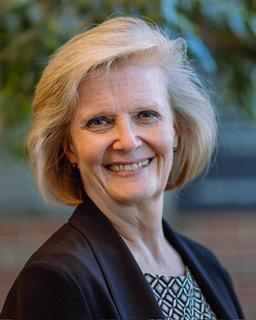
of NATS “to advance excellence in singing through teaching, performance, scholarship, and research.” Our national board has inspired us all, leading with deft responsiveness to the realities of a changing culture, strategic planning, and rigorous personal commitment. NATS has been a constant partner in my professional life, and I care deeply about this organization, its members, and our students as supported by my service. If chosen to be the next President-Elect of NATS, I will work closely with the current leadership, staff, and new Executive Director to be responsive to you, our members and the needs of your chapters and regions fully engaging our strategic plan with fiscal responsibility. Read more
■ President-Elect: Nicholas Perna
Vision Statement:
Dear Colleagues: I am honored to have the opportunity to outline my vision and priorities for a potential term as part of the NATS presidential line. I understand the commitment this service role requires, and I am excited about the possibilities ahead of us as an organization. NATS is at a complex and consequential inflection point. We are completing a 5-year strategic plan (and about to embark on a new one) while simultaneously beginning an organizational shift as we transition to a new Executive Director (ED) of NATS and Editor in Chief of Journal of Singing. With these matters, and more in mind, I believe the next few years will be influential in setting a course for the following decades. I hope to be able
It has been an honor to serve NATS during my 2024–25 term, and I am grateful for the opportunity to continue contributing to our mission.
As treasurer, I review or verify supporting documents such as invoices, contracts, purchase orders, and itemized budget plans. I am interested in improving transparency, accountability, reporting, and recordkeeping
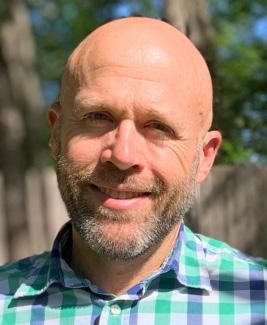
to continue to serve NATS through this critical period. Below I will outline several aspirational goals for my years of service.
Goal 1: Execute Goals of the New Strategic Plan.
As NATS develops and begins to execute its next strategic plan, I believe that we need to accomplish several outcomes central to NATS’ mission. I know that my two years as presidentelect will focus on supervision of the new strategic plan. My goals for this time include nurturing existing programs, coordinating with our new Executive Director to ensure NATS’ staff can provide efficient infrastructure and communication, and serving the needs of a continually diversifying membership. Read more
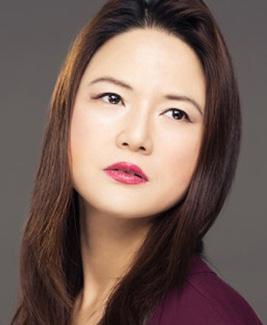
As Vice President for Membership, my first term has focused on strengthening the infrastructure, outreach, and growth strategies of NATS. I’m proud to have helped usher in a tiered membership structure that offers more flexibility and accessibility for members at all career stages. I also worked diligently with Regional Governors to fill DMD vacancies and introduced new goal-setting guides to support DMDs and Chapter Presidents in their leadership roles.
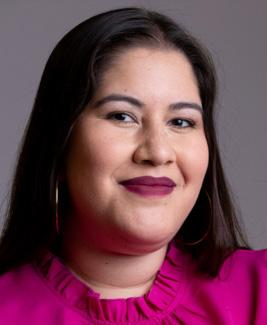
In collaboration with our President, I co-organized the NATS Leadership Summit last fall, and I’ve served as Chair of the Membership Committee, facilitating two productive meetings
to enable the board to better understand and approve all budget-related matters.
Into my second term, I would welcome the opportunity to be of assistance to those managing the NSA budget and the events and programs budgets to align processes and ensure consistency in documentation across all spending areas. This alignment would allow the treasurer to provide more accurate, up-to-date financial analysis for the board. Read more
to discuss recruitment strategies. We successfully launched a New Member Mixer (with another on the way this August), held Spring meetings with the DMDs and went over yearly reports with them, and assisted with transitioning the role of Membership Services Coordinator into a more strategically focused Membership Growth Strategist position. Personally, I’ve reached out to over 900 expired members and created a new Exit Survey to gather data and better understand non-renewals. These efforts have laid a strong foundation for our future membership initiatives. Read more
■ Vice President for Auditions: Casey L. Carter
At the heart of the National Association of Teachers of Singing lies a powerful tradition: the National Student Auditions (NSA). For decades, these auditions have offered far more than a stage—they’ve provided students a space to grow, to be seen, and to be supported. In a world often driven by individualism, the National Student Auditions stand as a beacon of collaboration, reflection, and community.
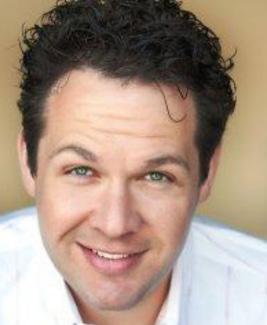
The National Student Auditions are not simply contests. They are celebrations of growth, laboratories of learning, and most importantly, gatherings of community.
■ Vice President for Auditions: Jill Terhaar Lewis
As Vice President for Auditions, my vision is to support and enhance the good work already being done within the organization, while exploring ways to further create more inclusive, accessible, and forward-thinking NATS audition programs. These programs should honor our traditions while boldly expanding into new territory. I am committed to building on the strong foundation already in place by continuing to support diverse repertoire and underrepresented composers, while also exploring innovative ways to serve a broader population of students and teachers.
Feedback here is not given to rank or separate, but to uplift and unify. This spirit of connection is the foundation of my vision.
If elected Vice President of Auditions, I will dedicate myself to building a community reflective of our diversity and cultural heritages, while promoting inclusivity across all levels of the audition process—chapter, district, region, and international. While each region serves a unique population of teachers and students, our true strength lies in our ability to function as a connected, cohesive whole. Read more
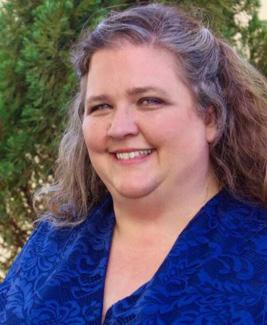
for this because they attract active participation from students and teachers and provide useful goals in the studios. If NATS aspires to reach a more diverse membership, it needs to engage communities where this diversity is present. Specialized categories in Mariachi music, folk music, contemporary commercial music including subcategories of country and western, jazz, gospel, and blues are all sample areas that could be considered. Pilot projects utilizing online auditions and workshops could help us integrate new categories into the NSA or in a newly created audition structure. Read more
I would like to see NATS move towards more opportunities for underserved communities. Auditions are a good vehicle
I am currently serving in my first term as the VP of Workshops for the NATS National board. This year is unique because we have two shared events: our first, a joint workshop with the National Opera Association last winter in Savannah, GA, and then the International Congress of Voice Teachers in Toronto this July. I worked closely this year with the marketing, planning, and selection committees, as well as the overall planning for the NOA Winter Workshop, alongside Kelly Balmaceda, Director of Events. This event was largely successful, with a higherthan-average attendance for a winter workshop.

My interactions with the International Congress of Voice Teachers mainly involved serving on selection committees to
review workshop proposals. This year alone, we received over 175 applications for workshops.
This year, we also hosted the inaugural AuditionCon alongside the joint NSA auditions held at Temple University in Philadelphia. Sixteen schools and organizations attended to recruit and connect with students. We developed a masterclass and instruction schedule that enabled 54 students to work with the participating schools. Feedback was strong and I was able to meet and interview each participating school to get video feedback for future marketing. Read more
■ Vice President for Outreach: André Chiang
I want to begin by letting the committee and membership know how humbled I am at the potential opportunity to serve NATS in this role and be a tangible part of the planning and movement of the organization into the future. It is truly a full circle moment. I have been a part of NATS basically since I started taking voice lessons at 15. I went to every state audition in Alabama while in high school and participated in two regional events. It was the first time I felt the thrill and nerves of singing in front of a large audience and the first time I met singers from around the state and region outside of
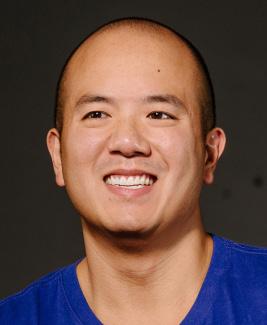
■ Vice President for Outreach: Caroline Schiller
Dear Colleagues, Thank you for this nomination. I am honoured to be nominated for a position that has reached so many young singing professionals. I am dedicated to continuing and building on the excellent work that has been done, with a view to an expansive and studentcentred future.
Vision Statement: To foster an inclusive, responsive, and forward-thinking community of young singing artists and pedagogues.
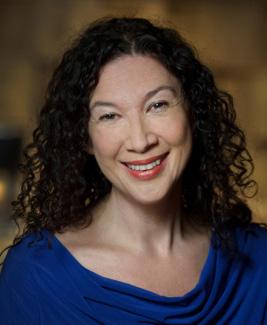
Mobile, AL. I loved hearing all the repertoire and seeing singers grow each year, and I started understanding the importance it had on my growth and general idea of where I was in my own singing. Since that time, I have brought students to the same auditions I attended, adjudicated on multiple levels, won NATSAA, been a NATS Intern, and traveled around the country meeting members throughout the nation. NATS has always been with me in my singing and teaching journey, and I want to help it grow to help all future teachers and singers. Read more
Passionately advocating for mentorship and innovative partnerships; equitable access; and celebrating diverse voices and teaching paths, I look to support the work of SNATS members and provide a bridge between training and practice. The aim, to empower the next generation of knowledgeable, creative, and compassionate teachers of singing. Read more
For Job Seekers: Discover opportunities specifically for voice professionals –completely free of charge.
For Employers: Reach more than 7,000 NATS members and other voice professionals through our targeted job postings. Listings are also featured in our weekly member email, Intermezzo
Posting Fee: $250 per listing. Questions? Contact the NATS office at 904-992-9101 or info@nats.org.
Whether you have been a NATS member for one year or more than 50, we are grateful that you have chosen NATS as your professional home. Thank you! NATS membership renewal for 2026 begins in October. Renew by Dec. 31 to ensure uninterrupted access to the benefits that keep you connected and growing.
As a member, your benefits include:
• Year-round professional development opportunities through NATS Chats, workshops, and events
• Full access to the Journal of Singing and exclusive member resources
• Networking and building community through nearly 100 NATS chapters worldwide
• Opportunities for you and your students through NSA, national competitions, and mentoring initiatives
• A global community of teachers, collaborative pianists, and voice professionals
• Reduced rates to conferences and workshops plus exclusive discounts on everything from insurance to office supplies
To renew online, log in to your NATS account at NATS.org. Your username is your email address. If you’ve forgotten your password, tap the “Forgot your login/password?” link. Once logged in, tap “Renew Now” and follow the steps to payment. Paying the optional 3% service fee helps NATS, but you may select “No” and still pay by credit card.
For assistance or questions, email membership@nats.org or call 904-992-9101, Monday–Friday, 8:30 a.m.–4:30 p.m. Eastern.
Thank you for your continued support of the National Association of Teachers of Singing!
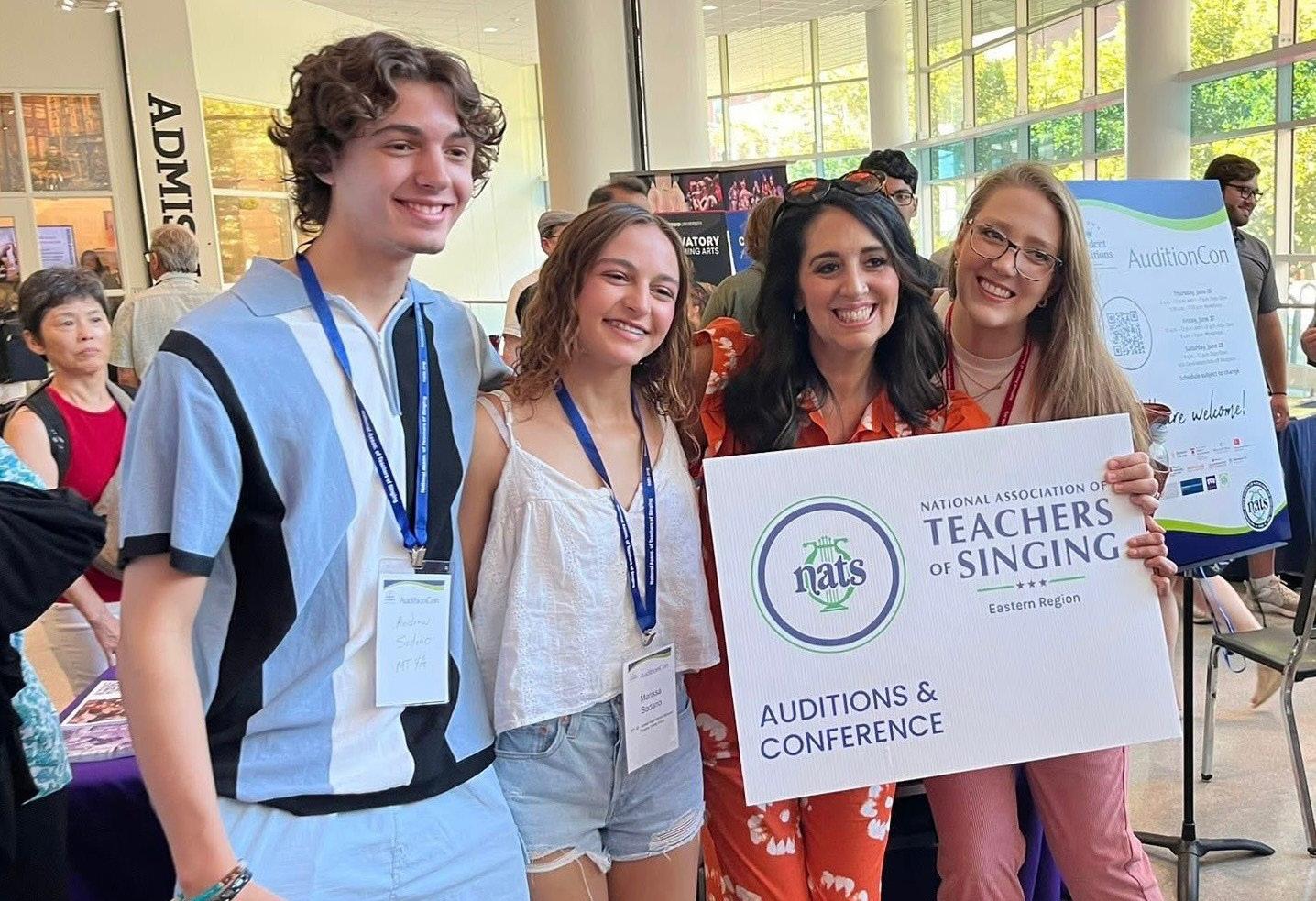
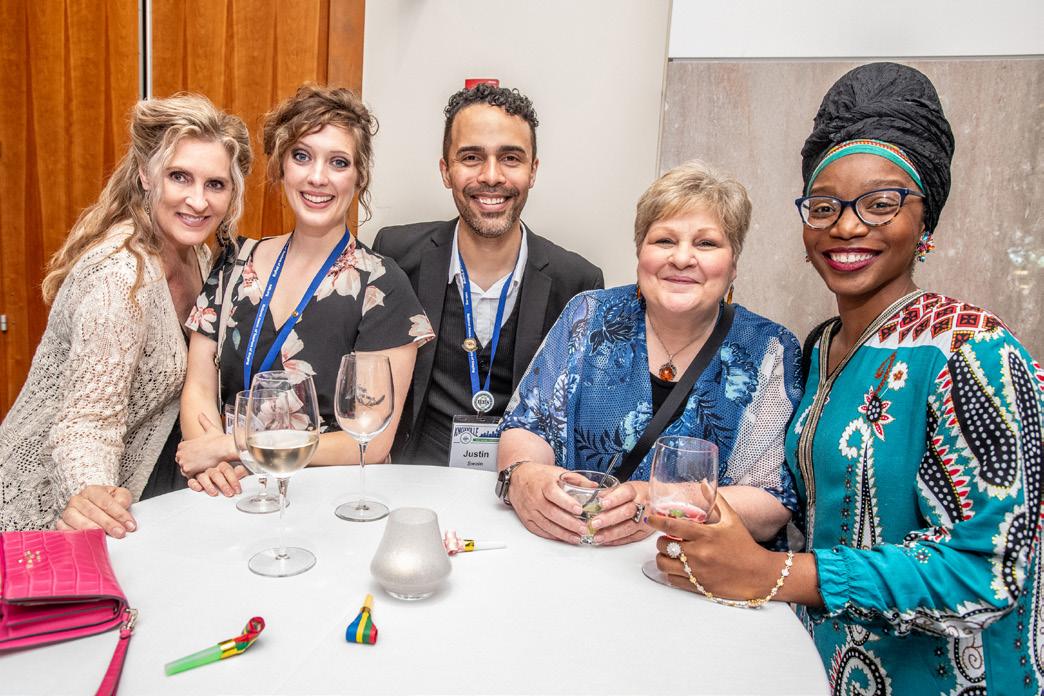
NATS is the perfect gift for anyone interested in teaching singing. Available in multiple membership level options — Professional, Affiliate, Emerging Professional or PreProfessional — a gift of membership is a wonderful way to celebrate a special singer in your life.
To purchase a Gift Membership, visit nats.org/gift.
• Professional: $129
• Affiliate: $129
• Emerging Professional: $90
• Pre-Professional $25
• Emeritus: no dues but must rejoin chapter by January 1, 2026.
Easiest way to pay: online at NATS.org. Log in with your email and password.
Need assistance?
Email membership@nats.org
By Jen Jimenez, NATS Development Director
In June of 2025, NATS launched NSA Generations, a new alumni program serving former and current NSA student auditionees, as well as their families. As members of NSA Generations, NSA alumni and their families have the opportunity to network with their musical peers, volunteer at their local and NATS National Student Auditions, and support the creative and logistical costs of producing NSA through gifts to the NSA Fund. We recognize the commitment to voice education these students and families have made by their participation in the National Student Auditions. We are pleased to honor this special group of alumni by highlighting their recent accomplishments with a new, yearly section called, Class Notes! If you have questions about NSA Generations, please contact NATS Development Director Jen Jimenez at jen@nats.org
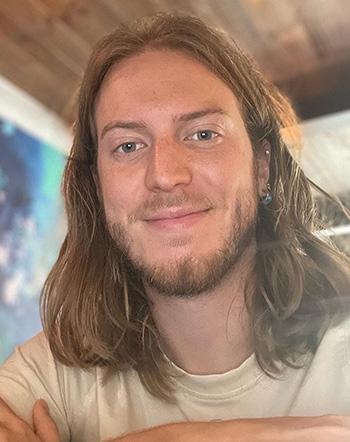
Isaac Arterburn
Sings with professional groups in Austin such as Austin Cantorum; Owns private voice studio.
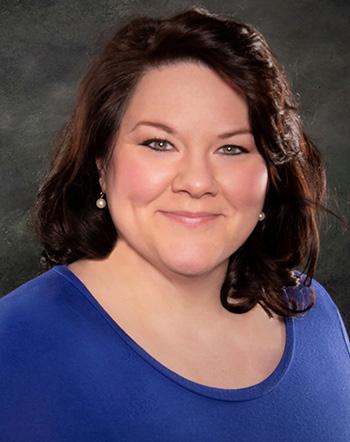
Mary Kathryn Brewer
Assistant Voice Professor at Taylor University in Indiana; Authored two books on the art songs of Giuseppe Verdi; Created Open Educational Resources on German Lieder and Lyric Diction; Soprano soloist and NATS Indiana President.

Naylah Campechano
Accepted into Grammy Camp 2025 with a full scholarship by Grammys Academy for vocal performance; National Anthem, NBA Charlotte Hornets and Savannah Bananas tour in front of 100,000 people at Clemson Memorial Stadium.
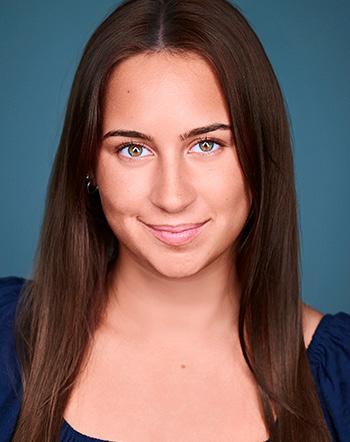
Isabella Carroll
Featured duet singer, NATS 2024 National Convention; Martha Cratchit, A Christmas Carol: North Shore Music Theater; National Anthem, “Let’s Put ALS on Ice”; 2025 First Place, Upper High School MT Regional NATS.

Robin Cotton
Co-founded and co-directing SVMPA Summer Vocal Music Program Abroad in Roseto Degli Abruzzi, Italy on the Adriatic Sea Launching Summer 2026.
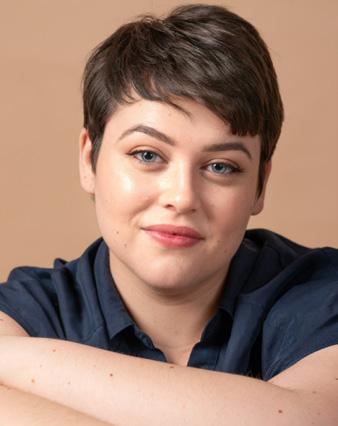
Sarah Davis
Studied voice and opera at the Boston University Opera Institute; Vocal fellow at Tanglewood; Owns private voice studio.
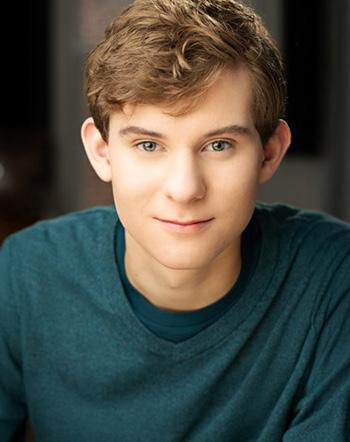
Alexander Earl
Accepted to UNC Greensboro to obtain BFA in Musical Theatre; Rapunzel’s Prince, Into the Woods: Theatre WV 2025.
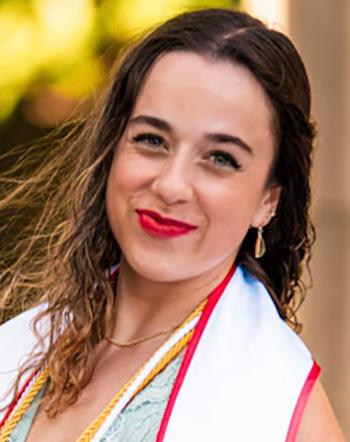
Sadie Habas
Graduated from Boston University with a B.M. in Vocal Performance, Cum Laude; Pursuing a master’s degree at UCLA Herb Alpert School of Music.
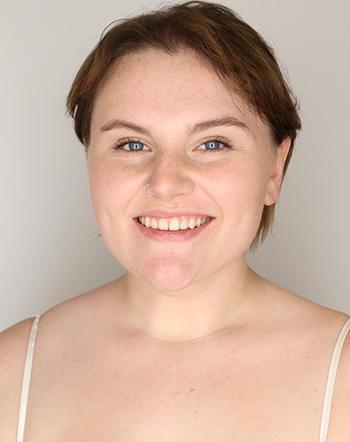
Gabriela Hinckle
Music directed Assassins at UNC Chapel Hill and Bonnie & Clyde at UNC Chapel Hill; Cinderella’s Mother/Granny, Into the Woods: Kenan Theater Company.
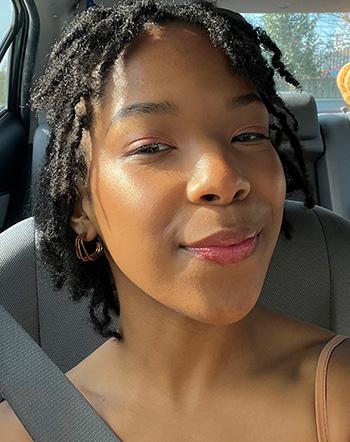
Kristiana Jones
Accepted into the MPM Summer Opera Program 2025; Suzanna, Mozart’s Le Nozze di Figaro; Completed junior recital as part of the Bachelor of Music in Voice Performance at ODU Diehn School of Music.

Jacob Kenison
Mr. Erlanson, A Little Night Music: Hawaii Performing Arts Festival; Fenton, Falstaff: Utah production; Won ODU Diehn School of Music Young Artist Competition; Sang Mein Herr Marquis by Strauss II with the ODU Symphony Orchestra.
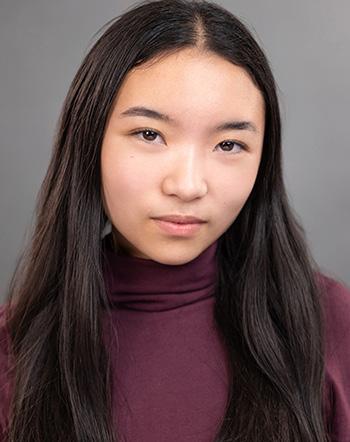
Evelyn Linchangco
Ensemble, Peter and the Starcatcher: California School of the Arts SGV; Ensemble, Mean Girls: Citrus Summer Conservatory; 1st Place, Classical Voice, 3rd Place, MT Vo-Cal Competition 2025; Singer, 10th Annual Religious Pluralism Day Los Angeles.
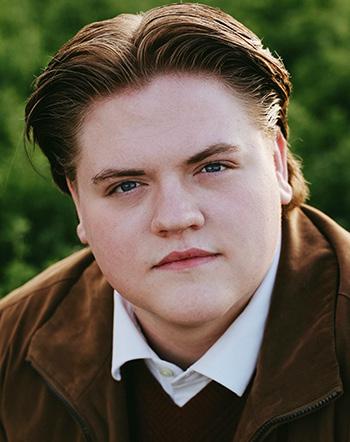
William Lovell
1st place, CL, MT, and CM categories, chapter and regional NATS student auditions; Augustus Gloop, Charlie and Chocolate Factory.
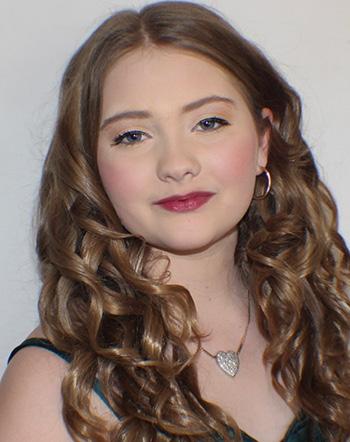
Farrah McArthur
Mary Poppins, Mary Poppins; Oliver Twist, Oliver; Mary Lennox, Secret Garden; Cinderella, Rogers and Hammerstein‘s Cinderella.
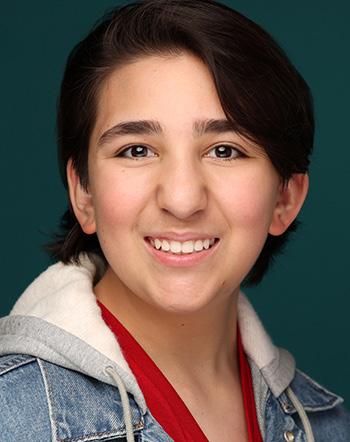
Mathew Molina
Selected for the 6-week musical theatre Interlochen program in MI; Competed in the Classical category at NATS NSA 2025; performed in Matilda at SCCT.
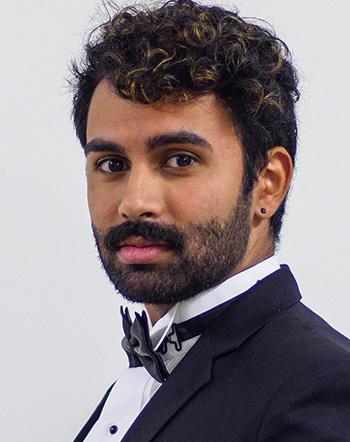
Krishna Raman BFA in Vocal Performance, Carnegie Mellon University in 2020; MM in Vocal Arts, University of Southern California in 2023; Freelance musician in Los Angeles; Singer, LA Master Chorale and LA Philharmonic.

Angel Romero
Graduate School, Yale University; Opera residency Program, Pittsburgh Opera; 2nd place, Zarzuela Placido Domingo Prize winner, Operalia 2024; Professional Opera Singer; Professor of Voice, Houston Christian University.
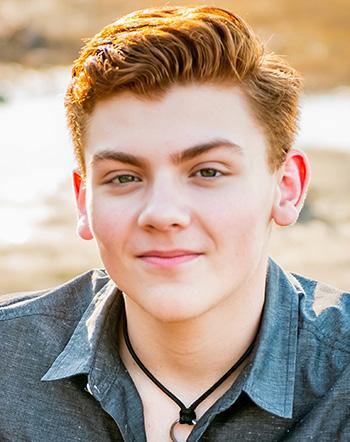
William Russell
Accepted to the Songbook Academy summer intensive in Carmel Indiana for the third year; Committed to Ball State Honors College for a BFA in music theatre
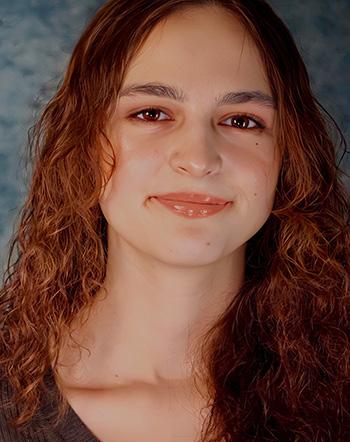
Marissa Sodano
Attending Centenary University to earn my BFA in Musical Theatre.
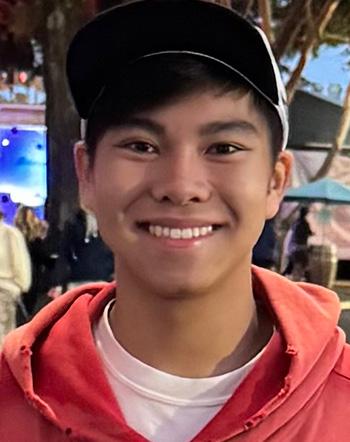
Andrew Tran
Released first album of self-written and produced songs; Works with the American Artists Project to create more opportunities for musical artists to get paid jobs.
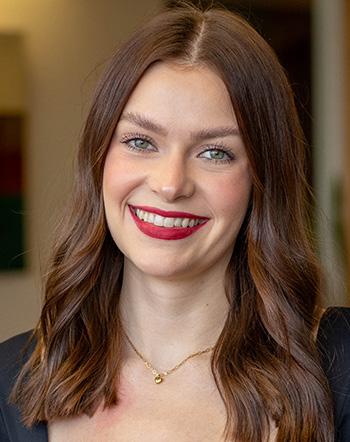
Jacquelyn vonAschwege Dance Captain, Anastasia; Betty Haynes, White Christmas; Natalie Goodman, Next to Normal.
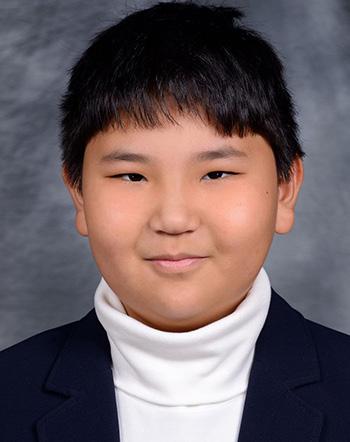
Maxwell Zheng Bilbo Baggins The Hobbit, Amahl, Amahl and the Night Visitors: Kentucky Opera.

Zoe Rose Pallas Graduate of Florida State University (Dr. Wanda Brister); MM degree, University of Alabama (Dr. Paul Houghtaling).

Jasmine Shan 1st place at OMFA (Ontario Musical Festivals Association) in MT category age 6-8; 2nd place, Songs from the Screen category.

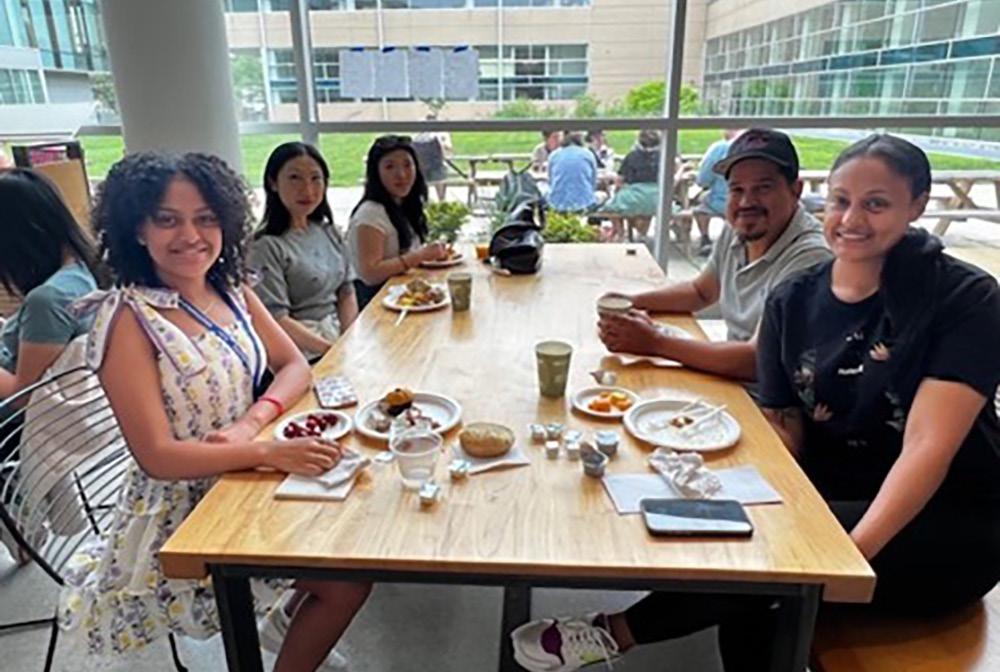

Brooks Liang 1st place, Youth Classical category: 2024 NATS NSA; 2nd place, VOCE state by MTAC California; Participated in the Summer Voice Program of the Juilliard School.

Siddhant Shanker First place, CM2 category NATS NSA; Won 3 contemporary a cappella recording (CARA) awards for “Fireflies,” Best Global Song, Best High School Song, and Best Pop Song categories.
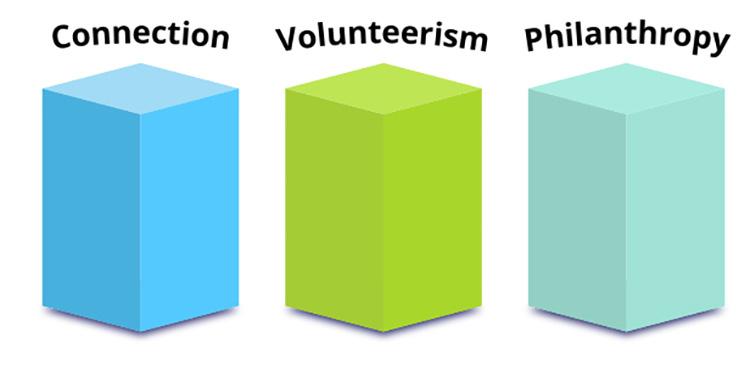
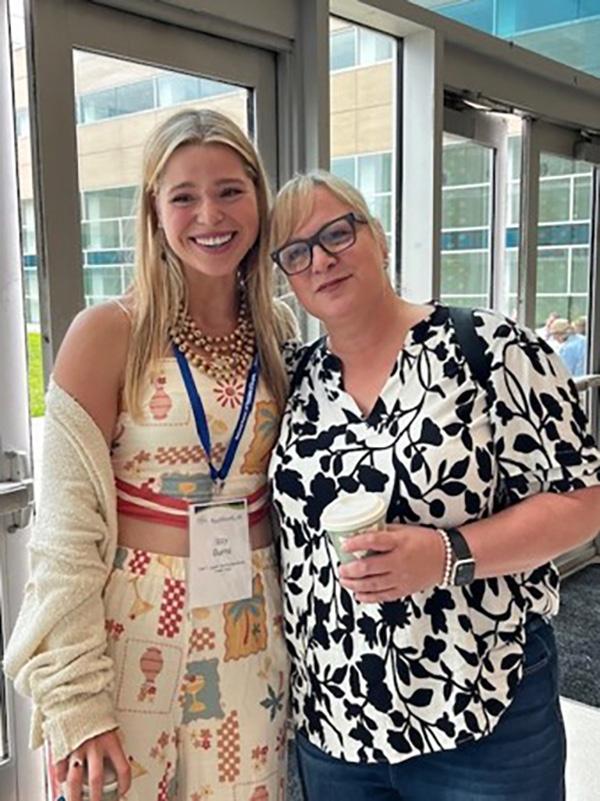
NSA Generations Alumni enjoyed a breakfast reception on June 28 to celebrate former and current student participants and their commitment to furthering their voice education.
By Jen Jimenez, NATS Development Director
We invite you to join us for the 2025 Lift Your Voices Day of Giving on Tuesday, November 18, 2025 in support of NATS Circle of Friends Annual Fund. Gifts to Circle of Friends Annual Fund are unrestricted, supporting annual budgetary needs, providing member and student scholarships, embracing diversity and inclusion efforts, and nurturing collaboration through mentoring and networking opportunities. We have chosen a stand-alone date, rather than the National Day of Giving date, in the hopes of providing an optimal opportunity for NATS members, students, family, friends, and patrons of vocal music to participate.

Our exciting Day of Giving will begin at midnight on November 18 with the launch of NATS interactive Day of Giving webpage! On this site, you will not only have the opportunity to easily
make your gift, but share a call-to-action across your social media channels, issue giving challenges to colleagues, students, family, and friends, participate in region/chapter competitions to win NATS merchandise, and create video testimonials –all in real time while viewing our live goal meter!
Please check your inboxes over the next few months for additional information from your Regional Development Liaisons and me regarding the 2025 Lift Your Voices Day of Giving. If you have questions or would like more information on how you can become an advocate for our Lift Your Voices Day of Giving, please contact me at jen@nats.org or (904) 586-3395.
Check out last year’s Campaign video. Thanks to your support, we surpassed our goal! https://youtu.be/ ZhFRdlfrBTg
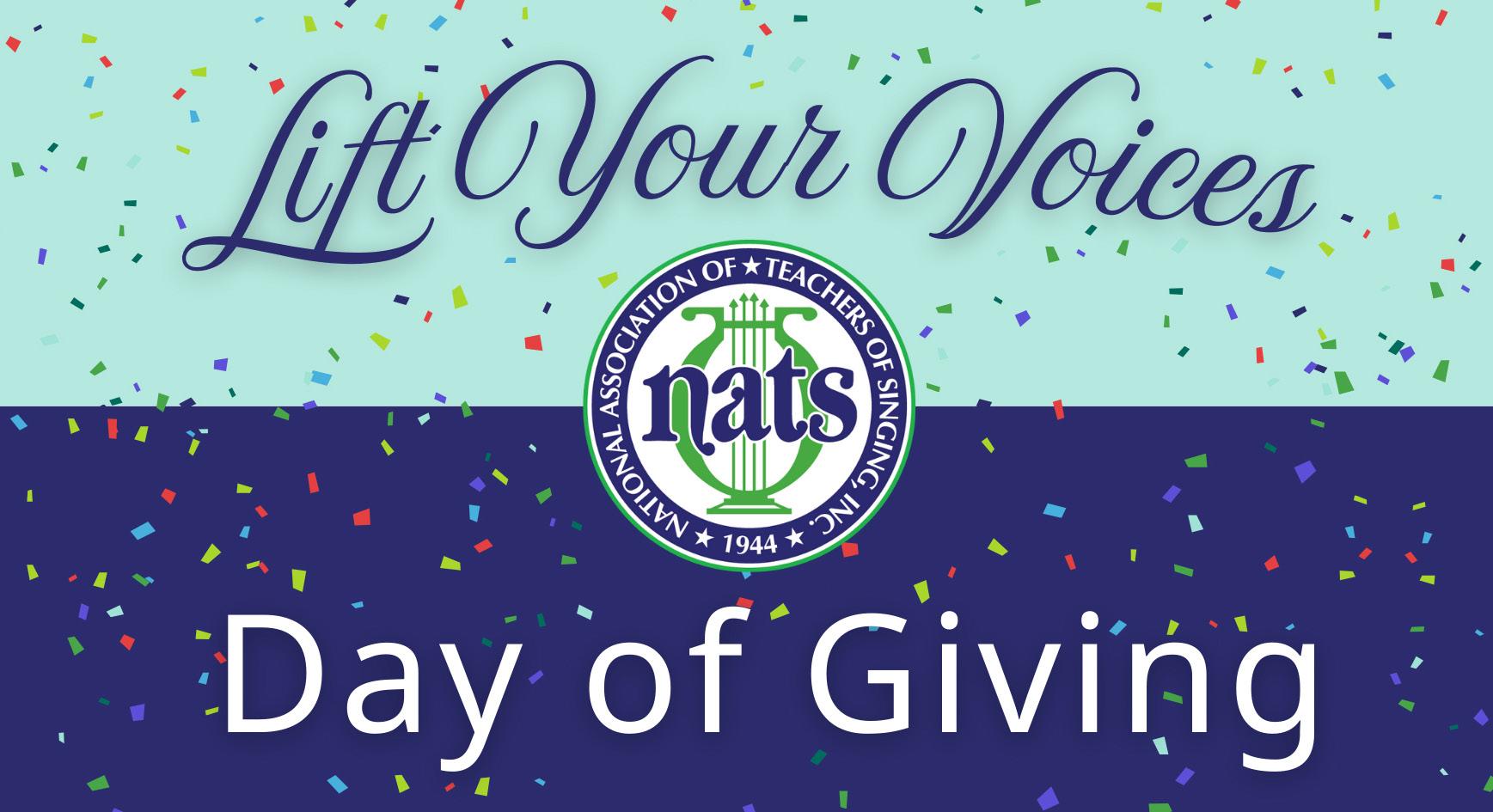
“Forever grateful for NATS giving me my first realistic experience of what it means to be an artist. Preparing to perform/audition in the unexpected circumstances of new locations, for new adjudicators, competing against new groups of talent; all things I use regularly as a working actor.”
—NATS Day of Giving Donor
“Thank you for all that NATS continuous to do to support the teachers and to encourage and challenge our students.”
—NATS Day of Giving Donor


